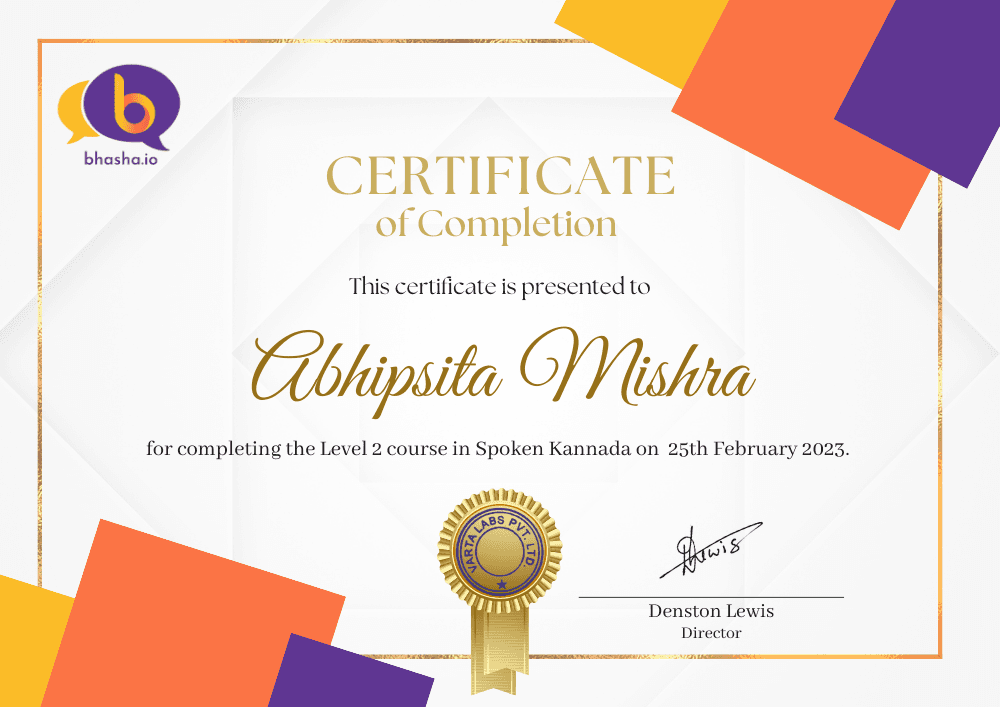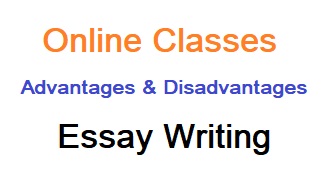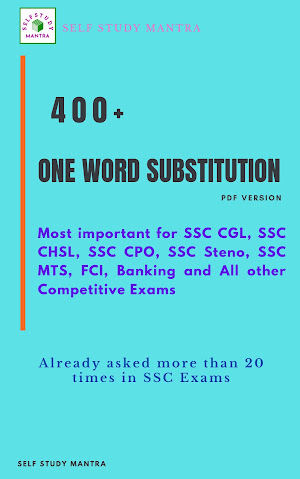

Online Education Essay in Kannada (ಆನ್ಲೈನ್ ಶಿಕ್ಷಣ ಪ್ರಬಂಧ)

Here is an online education essay in Kannada PDF for students of all classes. This online education essay in Kannada article provides students with information about online education, benefits, advantage, disadvantages, and a lot more in the Kannada language.
ಆನ್ಲೈನ್ ಕಲಿಕೆಯು ಜಗತ್ತಿನಾದ್ಯಂತ ಶಿಕ್ಷಣ ಕ್ಷೇತ್ರದಲ್ಲಿ ಸನ್ನಿಹಿತವಾದ ಪ್ರವೃತ್ತಿಗಳಲ್ಲಿ ಒಂದಾಗಿದೆ. ಈ ಕಲಿಕೆಯ ವಿಧಾನವನ್ನು ಅಂತರ್ಜಾಲದ ಮೂಲಕ ಮಾಡಲಾಗುತ್ತದೆ. ಸುಧಾರಿತ ಮತ್ತು ನವೀಕರಿಸಿದ ತಂತ್ರಜ್ಞಾನಗಳೊಂದಿಗೆ, ಈ ಕಲಿಕೆಯ ವಿಧಾನವನ್ನು ಸರಳಗೊಳಿಸಲಾಗಿದೆ.
ಉನ್ನತ ಶಿಕ್ಷಣ ಸಂಸ್ಥೆಗಳಲ್ಲಿ ಆನ್ಲೈನ್ ಶಿಕ್ಷಣಕ್ಕೂ ಆದ್ಯತೆ ನೀಡಲಾಗುತ್ತದೆ. ಈ ಲೇಖನವು ಆನ್ಲೈನ್ ಶಿಕ್ಷಣ, ಅದರ ಪ್ರಯೋಜನಗಳು, ಪರಿಣಾಮಗಳು ಮತ್ತು ಆನ್ಲೈನ್ ಶಿಕ್ಷಣ ಪ್ರಬಂಧದಲ್ಲಿ ಈ ವಿಷಯಕ್ಕೆ ಸಂಬಂದಿಸಿದ ಎಲ್ಲಾ ಮಾಹಿತಿಗಳನ್ನು ವಿದ್ಯಾರ್ಥಿಗಳಿಗೆ ನೀಡುತ್ತದೆ.
ಶಿಕ್ಷಣವು ಜನರ ಜೀವನದ ಅವಿಭಾಜ್ಯ ಅಂಗವಾಗಿದೆ. ಬೋಧನಾ ವಿಧಾನಗಳಲ್ಲಿನ ಪ್ರಗತಿಗಳು ಮತ್ತು ಹೆಚ್ಚು ಸ್ಪಷ್ಟವಾದ ಬೋಧನಾ ತಂತ್ರಗಳನ್ನು ಅಳವಡಿಸುವ ಇತರ ಪ್ರಮುಖ ಆವಿಷ್ಕಾರಗಳಿಂದಾಗಿ ಹಿಂದಿನ ದಿನಗಳಿಗೆ ಹೋಲಿಸಿದರೆ ಇಂದು ಶಿಕ್ಷಣವು ವೈವಿಧ್ಯಮಯವಾಗಿದೆ.
Table of Contents
ಎಲ್ಲಾ ತರಗತಿಯ ವಿದ್ಯಾರ್ಥಿಗಳಿಗೆ ಕನ್ನಡ PDF ನಲ್ಲಿ ಆನ್ಲೈನ್ ಶಿಕ್ಷಣ ಪ್ರಬಂಧ ಇಲ್ಲಿದೆ. ಈ ಆನ್ಲೈನ್ ಶಿಕ್ಷಣ ಪ್ರಬಂಧವು ಕನ್ನಡ ಭಾಷೆಯಲ್ಲಿ ವಿದ್ಯಾರ್ಥಿಗಳಿಗೆ ಆನ್ಲೈನ್ ಶಿಕ್ಷಣ, ಪ್ರಯೋಜನಗಳು, ಅನುಕೂಲಗಳು, ಅನಾನುಕೂಲಗಳು ಮತ್ತು ಕನ್ನಡ ಭಾಷೆಯಲ್ಲಿ ಹೆಚ್ಚಿನವುಗಳ ಬಗ್ಗೆ ಮಾಹಿತಿಯನ್ನು ಒದಗಿಸುತ್ತದೆ.
ಆನ್ಲೈನ್ ಶಿಕ್ಷಣದಲ್ಲಿ ವಿದ್ಯಾರ್ಥಿಗಳು ಮನೆಯಿಂದ ಅಥವಾ ಯಾವುದೇ ಸ್ಥಳದಿಂದ ಅಧ್ಯಯನ ಮಾಡುತ್ತಾರೆ, ಅದು ಅವರಿಗೆ ಹೆಚ್ಚು ಅನುಕೂಲಕರವಾಗಿರುತ್ತದೆ. ಅವರು ಕಲಿಕೆಯ ವಸ್ತುಗಳನ್ನು ಆನ್ಲೈನ್ನಲ್ಲಿ ಪಡೆಯಬಹುದು. ಆನ್ಲೈನ್ ಶಿಕ್ಷಣದಲ್ಲಿನ ಅಧ್ಯಯನ ಸಾಮಗ್ರಿಗಳು ಪಠ್ಯಗಳು, ಆಡಿಯೋ, ಟಿಪ್ಪಣಿಗಳು, ವೀಡಿಯೊಗಳು ಮತ್ತು ಚಿತ್ರಗಳಾಗಿರಬಹುದು. ಆದಾಗ್ಯೂ, ಅಧ್ಯಯನದ ವಿಧಾನವು ಅದರ ಪ್ರಯೋಜನಗಳನ್ನು ಮತ್ತು ಹಲವಾರು ಅನಾನುಕೂಲಗಳನ್ನು ಹೊಂದಿದೆ.
ವಿಷಯ ಬೆಳವಣಿಗೆ
ಯಾವುದೇ ಕಾರಣಗಳಿಂದಾಗಿ ಸಾಂಪ್ರದಾಯಿಕ ಶಿಕ್ಷಣ ವಿಧಾನವನ್ನು ಪಡೆಯಲು ಸಾಧ್ಯವಾಗದವರಿಗೆ ಆನ್ಲೈನ್ ಶಿಕ್ಷಣ ಸೂಕ್ತವಾಗಿದೆ .ಆನ್ಲೈನ್ ಶಿಕ್ಷಣ ಪಡೆಯುತ್ತಿರುವವರ ಸಂಖ್ಯೆಯು ವಾರ್ಷಿಕವಾಗಿ ಸುಮಾರು 30 ಪ್ರತಿಶತದಷ್ಟು ಬೆಳೆಯುತ್ತಿದೆ.
ತನ್ನ ನಮ್ಯತೆಯಿಂದಾಗಿ ಆನ್ಲೈನ್ ಶಿಕ್ಷಣವು ಜನರಿಗೆ ಮತ್ತು ಕಂಪನಿಗಳಿಗೆ ಅಸಂಖ್ಯಾತ ಅನುಕೂಲಗಳನ್ನು ಒದಗಿಸುತ್ತಿದೆ. ಆನ್ಲೈನ್ ಶಿಕ್ಷಣದಿಂದ ಹೆಚ್ಚಿನ ಪ್ರಯೋಜನ ಪಡೆಯಲು ಉತ್ತಮ ಮಾರ್ಗವೆಂದರೆ ಆನ್ಲೈನ್ ಶಿಕ್ಷಣ ಮತ್ತು ಸಾಂಪ್ರದಾಯಿಕ ಬೋಧನಾ ವಿಧಾನಗಳನ್ನು ಒಟ್ಟುಗೂಡಿಸುವುದರ ಮೂಲಕ.
ಆನ್ಲೈನ್ ಶಿಕ್ಷಣವನ್ನು ನೀಡುವ ಶಾಲೆಗಳು ಮತ್ತು ಸಂಸ್ಥೆಗಳು ಸಹ ಸಂಖ್ಯೆಯಲ್ಲಿ ಬೆಳೆಯುತ್ತಿವೆ. ಆನ್ಲೈನ್ ವಿಧಾನಗಳ ಮೂಲಕ ಪದವಿಗಳನ್ನು ಅನುಸರಿಸುವ ವಿದ್ಯಾರ್ಥಿಗಳು ತಮ್ಮ ಕೋರ್ಸ್ವರ್ಕ್ ಅನ್ನು ಮೌಲ್ಯಯುತ ಮತ್ತು ರುಜುವಾತು ಪಡೆದ ವಿಶ್ವವಿದ್ಯಾಲಯದ ಮೂಲಕ ಪೂರ್ಣಗೊಳಿಸುವುದನ್ನು ಖಾತ್ರಿಪಡಿಸಿಕೊಳ್ಳುವಲ್ಲಿ ಜಾಗರೂಕರಾಗಿರಬೇಕು.
ಆನ್ಲೈನ್ ಶಿಕ್ಷಣ ಎಂದರೇನು?
ಆನ್ಲೈನ್ ಶಿಕ್ಷಣವು ಅಂತರ್ಜಾಲ ದ ಮೂಲಕ ನಡೆಯುವ ಯಾವುದೇ ಕಲಿಕೆಯನ್ನು ಒಳಗೊಂಡಿರುವ ಒಂದು ಅನುಕೂಲಕರವಾದ ವಿದ್ಯಾಭ್ಯಾಸ ಪ್ರಕ್ರಿಯೆಯಾಗಿದೆ. ಆನ್ಲೈನ್ ಶಿಕ್ಷಣವು ಅಂತರ್ಜಾಲದ ಮೂಲಕ ಶಿಕ್ಷಣದ ಪ್ರಕ್ರಿಯೆಯನ್ನು ಸೂಚಿಸುತ್ತದೆ.
ಆದ್ದರಿಂದ, ವಿದ್ಯಾರ್ಥಿಗಳು ಭೌತಿಕವಾಗಿ ಎಲ್ಲಿಯೂ ಹೋಗದೆ ಜ್ಞಾನ ಮತ್ತು ಕೌಶಲ್ಯಗಳನ್ನು ಪಡೆಯಬಹುದು. ಅಂತರ್ಜಾಲದಂತಹ ಹೊಸ ತಂತ್ರಜ್ಞಾನಗಳ ಹೊರಹೊಮ್ಮುವಿಕೆಯಿಂದ ವಿದ್ಯಾರ್ಥಿಗಳು ಭೂಮಿಯ ಯಾವುದೇ ಮೂಲೆಯಿಂದ ಜ್ಞಾನವನ್ನು ಪಡೆಯಲು ಸಾಧ್ಯವಾಯಿತು. ಆದರೆ, ಕಾಲಮಿತಿ ಇಲ್ಲ. ಆನ್ಲೈನ್ ಶಿಕ್ಷಣ ವ್ಯವಸ್ಥೆಯು ಎಲ್ಲಾ ವಿದ್ಯಾರ್ಥಿಗಳಿಗೆ 24*7 ಲಭ್ಯವಿದೆ.
ಆನ್ಲೈನ್ ಶಿಕ್ಷಣದ ಇತಿಹಾಸ
ಆನ್ಲೈನ್ ಶಿಕ್ಷಣವು ಹೊಸ ಪರಿಕಲ್ಪನೆಯಲ್ಲ, ಇದು ವರ್ಷಗಳ ಹಿಂದೆ ಭೂಮಿಯ ಮೇಲೆ ತನ್ನ ಬೇರುಗಳನ್ನು ಹೊಂದಿದೆ. ಆದಾಗ್ಯೂ, ಈ ಪರಿಕಲ್ಪನೆಯೊಂದಿಗೆ ಹೊಸ ತಂತ್ರಜ್ಞಾನಗಳ ವಿಲೀನವು ಹೊಸದಾಗಿರುತ್ತದೆ.
ಆನ್ಲೈನ್ ಶಿಕ್ಷಣದ ಮೊದಲ ನಿದರ್ಶನವು 1960 ರಲ್ಲಿ USA ಯ ಇಲಿನಾಯ್ಸ್ ವಿಶ್ವವಿದ್ಯಾಲಯದಿಂದ ಬಂದಿತು. ಅದರ ನಂತರ, ಇಂಟರ್ನೆಟ್ ಅಸ್ತಿತ್ವಕ್ಕೆ ಬಂದಿತು ಮತ್ತು ವಿದ್ಯಾರ್ಥಿಗಳು ಅದನ್ನು ಅಧ್ಯಯನಕ್ಕಾಗಿ ಬಳಸಲು ಪ್ರಾರಂಭಿಸಿದರು. 1984 ರಲ್ಲಿ, ಟೊರೊಂಟೊ ವಿಶ್ವವಿದ್ಯಾನಿಲಯವು ಸಂಪೂರ್ಣ ಆನ್ಲೈನ್ ಕೋರ್ಸ್ಗಳನ್ನು ನೀಡುವ ಮೊದಲ ವಿಶ್ವವಿದ್ಯಾಲಯವಾಗಿ ನೋಂದಾಯಿಸಿಕೊಂಡಿತು.
1994 ರಲ್ಲಿ CAL ಕ್ಯಾಂಪಸ್ನಿಂದ ಮೊದಲ ಸಂಪೂರ್ಣ ಆನ್ಲೈನ್ ಪಠ್ಯಕ್ರಮವನ್ನು ಪರಿಚಯಿಸಲಾಯಿತು. ಕ್ರಮೇಣ ಆನ್ಲೈನ್ ಶಿಕ್ಷಣದ ವ್ಯವಸ್ಥೆಯು ಜಗತ್ತಿನಲ್ಲಿ ಬೆಳೆಯಲು ಪ್ರಾರಂಭಿಸುತ್ತದೆ.
ಕೋವಿಡ್ ಸಾಂಕ್ರಾಮಿಕದ ಸಮಯದಲ್ಲಿ, ಆನ್ಲೈನ್ ಶಿಕ್ಷಣವು ಶಿಕ್ಷಣ ವ್ಯವಸ್ಥೆಯ ಕೇಂದ್ರವಾಯಿತು. ಸಾಂಪ್ರದಾಯಿಕ ಕಲಿಕೆಯ ವಿಧಾನಗಳ ಬದಲಿಗೆ ಹೆಚ್ಚು ಹೆಚ್ಚು ವಿದ್ಯಾರ್ಥಿಗಳು ಆನ್ಲೈನ್ ಕೋರ್ಸ್ಗಳನ್ನು ಆರಿಸಿಕೊಳ್ಳುವುದರಿಂದ ಯಾವುದೇ ತಿರುವು ಇಲ್ಲ ಎಂದು ನಾವು ಹೇಳಬಹುದು.
ಸ್ವಯಂ ಕಲಿಕೆಯಲ್ಲಿ ಆನ್ಲೈನ್ ಶಿಕ್ಷಣದ ಪಾತ್ರ
ಆನ್ಲೈನ್ ಶಿಕ್ಷಣವು ಆಧುನಿಕ ಕಲಿಕೆಯ ರೂಪವಾಗಿದೆ. ಇದು ಜ್ಞಾನವನ್ನು ಹುಡುಕುವ ಸಾಂಪ್ರದಾಯಿಕ ವಿಧಾನಕ್ಕಿಂತ ಭಿನ್ನವಾಗಿದೆ. ಶಿಕ್ಷಕರು ಅಥವಾ ಮಾರ್ಗದರ್ಶಕರು ವಿದ್ಯಾರ್ಥಿಗಳ ಉತ್ತಮ ತಿಳುವಳಿಕೆಗಾಗಿ ಪಠ್ಯಗಳು, ಆಡಿಯೊಗಳು, ವೀಡಿಯೊಗಳು, ಅನಿಮೇಷನ್ಗಳು ಮುಂತಾದ ವಿವಿಧ ವಿಧಾನಗಳನ್ನು ಬಳಸುತ್ತಾರೆ.
ಆನ್ಲೈನ್ ಕಲಿಕೆಯು ಸಾಂಪ್ರದಾಯಿಕ ತರಗತಿಯ ಕೋರ್ಸ್ಗೆ ದಾಖಲಾಗಲು ಸಾಧ್ಯವಾಗದ ವಿದ್ಯಾರ್ಥಿಗಳೊಂದಿಗೆ ಸಂವಹನ ನಡೆಸಲು ಶಿಕ್ಷಣತಜ್ಞರನ್ನು ಶಕ್ತಗೊಳಿಸುತ್ತದೆ ಮತ್ತು ತಮ್ಮದೇ ಆದ ವೇಳಾಪಟ್ಟಿಯಲ್ಲಿ ಮತ್ತು ತಮ್ಮದೇ ಆದ ವೇಗದಲ್ಲಿ ಕೆಲಸ ಮಾಡುವ ವಿದ್ಯಾರ್ಥಿಗಳಿಗೆ ಸಹಾಯ ಮಾಡುತ್ತದೆ.
ಶಿಕ್ಷಣ ಎಂದರೆ ಶಾಲೆಗಳಿಗೆ ಹೋಗುವುದು ಮತ್ತು ಪುಸ್ತಕಗಳಿಂದ ಜ್ಞಾನವನ್ನು ಪಡೆಯುವುದು ಮಾತ್ರವಲ್ಲ. ಇದು ಪ್ರತಿ ಮಿತಿಯನ್ನು ಮೀರಿದೆ. ಶಿಕ್ಷಣ ಎಂದರೆ ಪುಸ್ತಕ ಗಳನ್ನು ಮೀರಿದ ಜ್ಞಾನ ಪಡೆಯುವುದು.
ಏನನ್ನಾದರೂ ಕಲಿಯಲು ನಾವು ಎಲ್ಲಿಯೂ ಹೋಗಬೇಕಾಗಿಲ್ಲದ ಯುಗದಲ್ಲಿ ನಾವು ಬದುಕುತ್ತಿದ್ದೇವೆ. ಹೌದು! ಮನೆಯಲ್ಲಿ ಕುಳಿತು ನಮಗೆ ಮತ್ತು ನಮ್ಮ ಮಕ್ಕಳಿಗೆ ಶಿಕ್ಷಣ ನೀಡಬಹುದು. ಆನ್ಲೈನ್ ಶಿಕ್ಷಣದ ಮೂಲಕ ಇದನ್ನು ಸಾಧಿಸಬಹುದು.
ಆನ್ಲೈನ್ ಶಿಕ್ಷಣವು ಪ್ರಾದೇಶಿಕ ತರಗತಿಗಳಿಗೆ ದಾಖಲಾಗಲು ಸಾಧ್ಯವಾಗದ ಎಲ್ಲಾ ನಿರ್ಗತಿಕ ವಿದ್ಯಾರ್ಥಿಗಳಿಗೆ ಶಿಕ್ಷಣವನ್ನು ತಲುಪುವಂತೆ ಮಾಡಿದೆ.
ಇಂದು ತಂತ್ರಜ್ಞಾನವು ಪ್ರತಿಯೊಂದು ಕ್ಷೇತ್ರವನ್ನು ತನ್ನ ಪ್ರಭಾವಕ್ಕೆ ಒಳಪಡಿಸಿದೆ ಮತ್ತು ಶಿಕ್ಷಣ ವ್ಯವಸ್ಥೆಯೂ ಸಹ. ಆನ್ಲೈನ್ ಶಿಕ್ಷಣವು ಅಂತರ್ಜಾಲದ ಸಹಾಯದಿಂದ ಶಿಕ್ಷಣವನ್ನು ಪಡೆಯುವ ಆಧುನಿಕ ರೂಪವಾಗಿದೆ.
ನಿಮ್ಮ ಮೊಬೈಲ್ ಫೋನ್ಗಳು, ಲ್ಯಾಪ್ಟಾಪ್ಗಳು ಅಥವಾ ಟ್ಯಾಬ್ಲೆಟ್ಗಳನ್ನು ಬಳಸಿಕೊಂಡು ಕಲಿಕೆಯ ಒಂದು ಉತ್ತೇಜಕ ಮತ್ತು ಪರಿಣಾಮಕಾರಿ ಮಾರ್ಗವಾಗಿದೆ. ಇದು ಶಿಕ್ಷಕರಿಗೆ ಮತ್ತು ವಿದ್ಯಾರ್ಥಿಗಳಿಗೆ ಸಾಕಷ್ಟು ಅನುಕೂಲಗಳು ಮತ್ತು ಅನಾನುಕೂಲಗಳನ್ನು ನೀಡುತ್ತದೆ. ಆನ್ಲೈನ್ ಶಿಕ್ಷಣವು ಎಲ್ಲಿಂದಲಾದರೂ ಕಲಿಯಲು ಹೊಂದಿಕೊಳ್ಳುವ ಮಾರ್ಗವಾಗಿದೆ.
ಮತ್ತೊಂದು ಪ್ರಯೋಜನಕಾರಿ ವೈಶಿಷ್ಟ್ಯವೆಂದರೆ, ಸಮಯಕ್ಕೆ ಸೀಮಿತವಾಗಿಲ್ಲ. ಸಾಂಪ್ರದಾಯಿಕ ಶಾಲಾ ಪದ್ಧತಿಯಂತೆ, ನೀವು ಬೆಳಿಗ್ಗೆಯಿಂದ ಮಧ್ಯಾಹ್ನದವರೆಗೆ ಕುಳಿತುಕೊಳ್ಳಬೇಕಾಗಿಲ್ಲ. ನಿಮ್ಮ ಆಯ್ಕೆಯ ಪ್ರಕಾರ ನೀವು ಹಗಲು ಅಥವಾ ರಾತ್ರಿ ಇಂಟರ್ನೆಟ್ ಬಳಸಿ ಅಧ್ಯಯನ ಮಾಡಬಹುದು.
ಇದು ಸಮಯ ಮತ್ತು ಸ್ಥಳದಿಂದ ನಮ್ಯತೆಯನ್ನು ನೀಡುತ್ತದೆ ಮಾತ್ರವಲ್ಲದೆ ಆನ್ಲೈನ್ನಲ್ಲಿ ಕಲಿಯಲು ವಯಸ್ಸಿನ ಮಿತಿಯೂ ಇಲ್ಲ. ಆನ್ಲೈನ್ ಶಿಕ್ಷಣದ ಮೂಲಕ, ನಿಮ್ಮ ಆಯ್ಕೆಯ ಪಾಠಗಳು ಮತ್ತು ಕೌಶಲ್ಯಗಳನ್ನು ನೀವು ಕಲಿಯಬಹುದು.
ಆನ್ಲೈನ್ ಕೋರ್ಸ್ಗಳು ಮತ್ತು ಅವುಗಳ ಪದವಿಗಳನ್ನು ಒದಗಿಸುವ ಹಲವಾರು ಸಂಸ್ಥೆಗಳಿವೆ. ಹೀಗಾಗಿ, ಶಾರೀರಿಕವಾಗಿ ಶಾಲೆಗಳು ಅಥವಾ ಕಾಲೇಜುಗಳಿಗೆ ಹೋಗದೆ ನೀವೇ ಶಿಕ್ಷಣವನ್ನು ಪಡೆಯಲು ಇದು ಹೆಚ್ಚು ಅನುಕೂಲಕರ ಮಾರ್ಗವಾಗಿದೆ. ಇದು ನಿಮ್ಮ ಸಾರಿಗೆ ಮತ್ತು ಇತರ ಹೆಚ್ಚುವರಿ ಶುಲ್ಕಗಳನ್ನು ಸಹ ಉಳಿಸುತ್ತದೆ.
ಆನ್ಲೈನ್ ಶಿಕ್ಷಣದ ಉಪಯೋಗಗಳು
- ಆನ್ಲೈನ್ ಶಿಕ್ಷಣವು ಸಂಯೋಜಿತ ಕ್ರಿಯೆಯ ಪ್ರಯೋಜನವನ್ನು ನೀಡುತ್ತದೆ. ಇಲ್ಲಿ ಬಳಸಲಾಗುವ ಸ್ವರೂಪವು ವಿದ್ಯಾರ್ಥಿಗಳು ಮತ್ತು ಶಿಕ್ಷಕರ ನಡುವಿನ ಕ್ರಿಯಾತ್ಮಕ ಸಂವಹನಗಳಿಗೆ ಸ್ಥಳಾವಕಾಶವನ್ನು ನೀಡುತ್ತದೆ. ಈ ಸಂವಹನಗಳ ಮೂಲಕ, ಮೂಲಗಳನ್ನು ಹಂಚಿಕೊಳ್ಳಲಾಗುತ್ತದೆ ಮತ್ತು ಕಲಿಕೆಯ ಪ್ರಕ್ರಿಯೆಯ ಮೂಲಕ ಯಾವುದೇ ಮಿತಿಯಿಲ್ಲದ ಸಂಯೋಜಿತ ಕ್ರಿಯೆ ವಿಕಸನಗೊಳ್ಳುತ್ತದೆ.
- ಪ್ರತಿಯೊಬ್ಬ ವ್ಯಕ್ತಿಯು ಇತರರ ಕೆಲಸದ ಕೋರ್ಸ್ನಲ್ಲಿ ಚರ್ಚೆಗಳು ಮತ್ತು ಕಾಮೆಂಟ್ಗಳ ಮೂಲಕ ವೀಕ್ಷಣೆ ಅಥವಾ ಅಭಿಪ್ರಾಯವನ್ನು ನೀಡಿದಾಗ, ಅದು ವಿದ್ಯಾರ್ಥಿಗೆ ಉತ್ತಮವಾಗಿ ಕಲಿಯಲು ಪ್ರಯೋಜನವನ್ನು ನೀಡುತ್ತದೆ. ಈ ವಿಶಿಷ್ಟ ಪ್ರಯೋಜನವು ವಿದ್ಯಾರ್ಥಿ-ಕೇಂದ್ರಿತ ವರ್ಚುವಲ್ ಕಲಿಕೆಯ ಪರಿಸರದಲ್ಲಿ ವ್ಯಕ್ತವಾಗುತ್ತದೆ, ಅದು ಆನ್ಲೈನ್ ಕಲಿಕೆಯ ಸ್ವರೂಪ ಮಾತ್ರ ಕೊಡುಗೆ ನೀಡುತ್ತದೆ.
- ಆನ್ಲೈನ್ ತರಗತಿಗೆ ನಾವು ಬೇರೆ ನಗರಕ್ಕೆ ಪ್ರಯಾಣಿಸುವ ಅಥವಾ ದೂರದ ಪ್ರಯಾಣದ ಅಗತ್ಯವಿಲ್ಲ. ಆನ್ಲೈನ್ ಪದವಿಯೊಂದಿಗೆ ನಮ್ಮ ವೃತ್ತಿಜೀವನವನ್ನು ಸುಧಾರಿಸಲು ನಾವು ಕೆಲಸ ಮಾಡುವಾಗ ನಾವು ಇರುವ ಸ್ಥಳದಲ್ಲಿಯೇ ಉಳಿಯಬಹುದು ಮತ್ತು ನಮ್ಮ ಪ್ರಸ್ತುತ ಕೆಲಸವನ್ನು ಉಳಿಸಿಕೊಳ್ಳಬಹುದು. ಆನ್ಲೈನ್ ಶಿಕ್ಷಣವು ಡಿಜಿಟಲ್ ಅಲೆಮಾರಿಗಳಿಗೆ ಸಹಾಯ ಮಾಡುತ್ತದೆ. ತಂತ್ರಜ್ಞಾನ-ಸಕ್ರಿಯಗೊಳಿಸಿದ ಅಥವಾ ಸ್ಥಳ-ಸ್ವತಂತ್ರ ಜೀವನಶೈಲಿಯನ್ನು ಸಮರ್ಥಿಸುವ ಯಾರಾದರೂ ನಾವು ಎಲ್ಲಿದ್ದರೂ ಉಪನ್ಯಾಸಗಳನ್ನು ವೀಕ್ಷಿಸಬಹುದು ಮತ್ತು ನಮ್ಮ ಕೋರ್ಸ್ವರ್ಕ್ ಅನ್ನು ಪೂರ್ಣಗೊಳಿಸಬಹುದು.
- ನಾವು ಪೂರ್ಣ ಸಮಯ ಅಥವಾ ಅರೆಕಾಲಿಕ ಆನ್ಲೈನ್ ವಿದ್ಯಾರ್ಥಿಯಾಗಿರಲಿ, ಆನ್ಲೈನ್ ಶಿಕ್ಷಣದ ಅನುಭವವು ಹೆಚ್ಚು ನಿರ್ವಹಿಸಬಹುದಾದ ವೇಳಾಪಟ್ಟಿಯನ್ನು ಒದಗಿಸುತ್ತದೆ. ಆನ್ಲೈನ್ ಶಿಕ್ಷಣವು ಅದರ ಅಗ್ಗದತೆಯ ಕಾರಣದಿಂದಾಗಿ ಹೆಚ್ಚಿನ ಅನುಮೋದನೆಯನ್ನು ಪಡೆದುಕೊಂಡಿದೆ. ಶಾಲೆಗಳು ಅಥವಾ ಕಾಲೇಜುಗಳಲ್ಲಿ ನೀಡಲಾಗುವ ಕೋರ್ಸ್ಗಳಿಗಿಂತ ಆನ್ಲೈನ್ ಕೋರ್ಸ್ಗಳು ಹೆಚ್ಚು ಕೈಗೆಟುಕುವವು ಎಂಬ ಅಂಶವಾಗಿದೆ. ವಿಶ್ವವಿದ್ಯಾನಿಲಯಗಳಲ್ಲಿ ಅಧ್ಯಯನ ಮಾಡುವಾಗ, ನಾವು ಸಾರಿಗೆ, ವಸತಿ ಮತ್ತು ಊಟದಂತಹ ಸ್ವಲ್ಪ ಹಣವನ್ನು ಖರ್ಚು ಮಾಡಬೇಕಾಗಬಹುದು, ಆನ್ಲೈನ್ ಶಿಕ್ಷಣಕ್ಕೆ ಅಂತಹ ವೆಚ್ಚಗಳು ಅಗತ್ಯವಿಲ್ಲ.
- ಆನ್ಲೈನ್ ಕಲಿಕೆಯ ಪ್ರಮುಖ ಉಪಯೋಗವೆಂದರೆ ಅದರ ಅಂತರ್ಗತ ನಮ್ಯತೆ. ಇದು ಉತ್ತಮ ಗುಣಮಟ್ಟದ ಕಲಿಕೆಯ ಅವಕಾಶವನ್ನು ಒದಗಿಸುತ್ತದೆ, ವಿದ್ಯಾರ್ಥಿಗಳ ಫಲಿತಾಂಶಗಳು ಮತ್ತು ಕೌಶಲ್ಯಗಳನ್ನು ಸುಧಾರಿಸುತ್ತದೆ ಮತ್ತು ಶೈಕ್ಷಣಿಕ ಆಯ್ಕೆಯ ಆಯ್ಕೆಗಳನ್ನು ವಿಸ್ತರಿಸುತ್ತದೆ. ಆದ್ದರಿಂದ, ಆನ್ಲೈನ್ ಶಿಕ್ಷಣದ ಕಾರಣದಿಂದಾಗಿ ಪದವಿ ಕೋರ್ಸ್ಗಳು ಅಥವಾ ಉನ್ನತ ಶಿಕ್ಷಣವನ್ನು ಪಡೆಯುವಲ್ಲಿ ಸ್ಥಳ, ಸಮಯ ಮತ್ತು ಗುಣಮಟ್ಟವನ್ನು ಇನ್ನು ಮುಂದೆ ಅಂಶಗಳಾಗಿ ಪರಿಗಣಿಸಲಾಗುವುದಿಲ್ಲ.
ಆನ್ಲೈನ್ ಶಿಕ್ಷಣದ ಪ್ರಯೋಜನಗಳು
- ಆನ್ಲೈನ್ ಶಿಕ್ಷಣವು ವಿವಿಧ ಕ್ಷೇತ್ರಗಳಲ್ಲಿ ವಿವಿಧ ಮಾರ್ಗದರ್ಶಕರು ಮತ್ತು ಶಿಕ್ಷಕರಿಂದ ಕಲಿಯಲು ನಮಗೆ ಅನುವು ಮಾಡಿಕೊಡುತ್ತದೆ, ನಮ್ಮ ಜ್ಞಾನ ಮತ್ತು ದೃಷ್ಟಿಕೋನವನ್ನು ಹೆಚ್ಚಿಸುತ್ತದೆ. ಇದು ವಿದ್ಯಾರ್ಥಿಗಳಲ್ಲಿ ಆತಂಕವನ್ನು ಕಡಿಮೆ ಮಾಡುತ್ತದೆ, ಏಕೆಂದರೆ ಅನೇಕರು ಸಾಮಾನ್ಯ ತರಗತಿಗಳಿಗಿಂತ ಆನ್ಲೈನ್ ಶಿಕ್ಷಣದ ಮೂಲಕ ಹೆಚ್ಚು ಸಂವಹನ ನಡೆಸಲು ಸಾಧ್ಯವಾಗುತ್ತದೆ. ಅವರು ಲಭ್ಯವಿರುವ ಇಂಟರ್ನೆಟ್ ಸಾಧನವನ್ನು ಹೊಂದಿರುವವರೆಗೆ ಯಾವುದೇ ಸ್ಥಳದಿಂದ ಕಲಿಯಬಹುದು.
- ಆನ್ಲೈನ್ ಶಿಕ್ಷಣವು ಸಾಮಾನ್ಯವಾಗಿ ನಮ್ಮ ಸ್ವಂತ ವೇಗದಲ್ಲಿ ಅಧ್ಯಯನ ಮಾಡಲು ಅವಕಾಶವನ್ನು ಒದಗಿಸುತ್ತದೆ ಏಕೆಂದರೆ ಯಾವುದೇ ವಿಪರೀತವಿಲ್ಲ. ಸಾಂಪ್ರದಾಯಿಕ ತರಗತಿಗಳಿಗೆ ಹಾಜರಾಗುವುದಕ್ಕೆ ಹೋಲಿಸಿದರೆ ಹೆಚ್ಚಿನ ಆನ್ಲೈನ್ ಕೋರ್ಸ್ಗಳು ಸಾಮಾನ್ಯವಾಗಿ ಆನಂದದಾಯಕ ಮತ್ತು ಹೆಚ್ಚು ಆರಾಮದಾಯಕವಾಗಿವೆ. ಪ್ರತಿ ದಿನವೂ ನಿರ್ದಿಷ್ಟ ಗಮ್ಯಸ್ಥಾನಕ್ಕೆ ಪ್ರಯಾಣಿಸಬೇಕಾದ ಅನಾನುಕೂಲತೆಯನ್ನು ಇದು ತಪ್ಪಿಸುತ್ತದೆ.
- ಆನ್ಲೈನ್ ಶಿಕ್ಷಣವು ಸಾಮಾನ್ಯವಾಗಿ ಹೆಚ್ಚು ಕೈಗೆಟುಕುವಂತಿರುತ್ತದೆ. ಸಾಂಪ್ರದಾಯಿಕ ಶೈಕ್ಷಣಿಕ ವಿಧಾನಗಳಿಗೆ ಹೋಲಿಸಿದರೆ ಆನ್ಲೈನ್ ಶಿಕ್ಷಣವು ತುಲನಾತ್ಮಕವಾಗಿ ಅಗ್ಗವಾಗಿದೆ. ಸಾಂಪ್ರದಾಯಿಕ ವಿಶ್ವವಿದ್ಯಾನಿಲಯದ ಕಾರ್ಯಕ್ರಮಗಳ ಅಡಿಯಲ್ಲಿ, ವಿದ್ಯಾರ್ಥಿಗಳು ಸಾರಿಗೆ, ಪಠ್ಯಪುಸ್ತಕಗಳು, ಗ್ರಂಥಾಲಯಗಳು, ಸಾಂಸ್ಥಿಕ ಸೌಲಭ್ಯಗಳು ಮತ್ತು ವಿಶ್ವವಿದ್ಯಾನಿಲಯದ ಶಿಕ್ಷಣದ ವೆಚ್ಚವನ್ನು ತ್ವರಿತಗೊಳಿಸುವ ಇತರ ವೆಚ್ಚಗಳನ್ನು ಸರಿದೂಗಿಸಬೇಕು. ಆನ್ಲೈನ್ ಶಿಕ್ಷಣ, ಅದರ ಭಾಗವಾಗಿ, ಬೋಧನೆ ಮತ್ತು ಹೆಚ್ಚುವರಿ ಅಗತ್ಯ ವೆಚ್ಚಗಳಿಗೆ ಮಾತ್ರ ಶುಲ್ಕ ವಿಧಿಸುತ್ತದೆ. ವರ್ಚುವಲ್ ಶಿಕ್ಷಣವು ಶ್ರೀಮಂತ ಮತ್ತು ಬಡವರಿಗೂ ಅವಕಾಶವನ್ನು ನೀಡುತ್ತದೆ.
- ಇದು ಅಂತರ್ಜಾಲದ ಮೂಲಕ ನವೀನ ವಿಧಾನಗಳನ್ನು ಕಲಿಯಲು ಅನುವು ಮಾಡಿಕೊಡುತ್ತದೆ ಮತ್ತು ಆದ್ದರಿಂದ ಹೆಚ್ಚು ಕುಶಲತೆ ಹೊಂದುತ್ತದೆ. ಆನ್ಲೈನ್ ಶಿಕ್ಷಣದಲ್ಲಿ, ಪಠ್ಯಕ್ರಮದಲ್ಲಿ ಯಾವುದೇ ವ್ಯತ್ಯಾಸಗಳಿದ್ದರೆ, ಸಾಂಪ್ರದಾಯಿಕ ಶಿಕ್ಷಣದ ವಿಧಾನಗಳಿಗೆ ಹೋಲಿಸಿದರೆ ತಕ್ಷಣವೇ ನವೀಕರಣಗಳನ್ನು ಮಾಡಬಹುದು.
- ಆನ್ಲೈನ್ ಶಿಕ್ಷಣವು ಯಾರು ಬೇಕಾದರೂ ಹೊಂದಿಕೊಳ್ಳಬಹುದಾದ ಶಿಕ್ಷಣ ವಿಧಾನವಾಗಿದೆ ಏಕೆಂದರೆ ಒಬ್ಬರು ಯಾವುದೇ ಸಮಯದಲ್ಲಿ, ಮಧ್ಯರಾತ್ರಿಯಲ್ಲಿಯೂ ಸಹ ಅಧ್ಯಯನ ಮಾಡಬಹುದು. ಪ್ರಮಾಣಿತ ಸಾಂಪ್ರದಾಯಿಕ ಶಿಕ್ಷಣಕ್ಕೆ ಹೋಲಿಸಿದರೆ ಇದು ಕೆಲವು ಜನರ ಶ್ರೇಣಿಗಳನ್ನು ಹೆಚ್ಚಿಸಲು ಸಹಾಯ ಮಾಡುತ್ತದೆ. ಅನೇಕರು ಆನ್ಲೈನ್ ಶಿಕ್ಷಣದ ಮೂಲಕ ಹೆಚ್ಚು ಕಲಿಯುತ್ತಾರೆ.
- ಬೋಧಕರೊಂದಿಗೆ ಮಾತನಾಡಲು ಕಚೇರಿ ಗಂಟೆಗಳವರೆಗೆ ಕಾಯುವ ಅಗತ್ಯವಿಲ್ಲ; ನೀವು ತಕ್ಷಣ ಅವರನ್ನು ಚಾಟ್ ಅಥವಾ ಇಮೇಲ್ ಮೂಲಕ ಸಂಪರ್ಕಿಸಬಹುದು. ಅಂತರ್ಜಾಲದಲ್ಲಿ ಗಣನೀಯ ಪ್ರಮಾಣದ ಶೈಕ್ಷಣಿಕ ಮಾಹಿತಿ ಇದೆ. ಆನ್ಲೈನ್ ಶಿಕ್ಷಣವು ವಿವಿಧ ಶೈಕ್ಷಣಿಕ, ಸಾಮಾಜಿಕ, ಸಾಂಸ್ಕೃತಿಕ ಮತ್ತು ತಾತ್ವಿಕ ಹಿನ್ನೆಲೆಯ ಜನರ ವೈವಿಧ್ಯಮಯ ಗುಂಪಿನ ಮಿಶ್ರಣದಲ್ಲಿರಲು ಸಹ ಸಹಾಯ ಮಾಡುತ್ತದೆ. ಸಾಂಪ್ರದಾಯಿಕ ಶಿಕ್ಷಣಕ್ಕಿಂತ ಭಿನ್ನವಾದ ವಿಷಯವೂ ಕೂಡ ಯಾವಾಗಲೂ ಅಂತರ್ಜಾಲದಲ್ಲಿ ಲಭ್ಯವಿರುತ್ತದೆ.
ಆನ್ಲೈನ್ ಶಿಕ್ಷಣ ಮತ್ತು ಅದರ ಪರಿಣಾಮಗಳು
ಆನ್ಲೈನ್ ಶಿಕ್ಷಣವು ವಿದ್ಯಾರ್ಥಿಗಳಿಗೆ ತರುವ ಅನುಕೂಲಗಳು ಅಪಾರ. ಸಾಂಪ್ರದಾಯಿಕ ಕಲಿಕೆಯ ಸಂದರ್ಭಗಳಲ್ಲಿ ಪ್ರಯಾಣ ಅಥವಾ ದೂರದಂತಹ ಅನೇಕ ಅಡೆತಡೆಗಳನ್ನು ಹೊಂದಿರುವಾಗ ಆನ್ಲೈನ್ ಕೋರ್ಸ್ ಅನ್ನು ಅನುಸರಿಸುವುದು ಶಿಕ್ಷಣದಲ್ಲಿ ಅತ್ಯುತ್ತಮ ಆಯ್ಕೆಯಾಗಿದೆ.
ಆದಾಗ್ಯೂ ಆನ್ಲೈನ್ ಶಿಕ್ಷಣವು ಕೆಲವು ಅನಾನುಕೂಲತೆಗಳನ್ನು ಸಹ ಹೊಂದಿದೆ.
- ಕಂಪ್ಯೂಟರ್ ಅನ್ನು ಅತಿಯಾಗಿ ಬಳಸುವುದರಿಂದ ವಿದ್ಯಾರ್ಥಿಗಳು ಕೃತಿಚೌರ್ಯಕ್ಕೆ ಗುರಿಯಾಗುತ್ತಾರೆ. ನಾವು ಇಡೀ ದಿನ ಲ್ಯಾಪ್ಟಾಪ್ ಬಳಿ ಕುಳಿತುಕೊಳ್ಳುವುದರಿಂದ ಇದು ದೃಷ್ಟಿ ಸಮಸ್ಯೆಗಳನ್ನು ಉಂಟುಮಾಡಬಹುದು. ಆನ್ಲೈನ್ ಶಿಕ್ಷಣವು ದೈಹಿಕ ಬೆಳವಣಿಗೆಗೆ ಅಡ್ಡಿಯಾಗಬಹುದು. ಆನ್ಲೈನ್ ಶಿಕ್ಷಣವು ವ್ಯಕ್ತಿಯು ಏನನ್ನಾದರೂ ಮಾಡಲು ಪ್ರೇರೇಪಿಸದೆ ತನ್ನ ಸ್ವಂತ ಕಲಿಕೆಗೆ ಜವಾಬ್ದಾರನಾಗಿರಲು ಸಾಕಷ್ಟು ಜಟಿಲವಾಗಿದೆ.
- ಆನ್ಲೈನ್ ಶಿಕ್ಷಣವು ನಿಮ್ಮ ಸಹಪಾಠಿಗಳಿಂದ ನಿಮ್ಮನ್ನು ಬೇರ್ಪಡಿಸುತ್ತದೆ. ಕಲಿಕೆಯ ಪ್ರಕ್ರಿಯೆಯನ್ನು ಅರ್ಥಮಾಡಿಕೊಳ್ಳಲು ಕೆಲವು ಸಂದರ್ಭಗಳಲ್ಲಿ ಹೆಚ್ಚುವರಿ ಸಮಯವನ್ನು ಹಾಕಬೇಕಾಗಬಹುದು. ತರಗತಿಯಲ್ಲಿದ್ದಾಗ ಆನ್ಲೈನ್ ಪರೀಕ್ಷೆಯಲ್ಲಿ ಮೋಸ ಮಾಡುವುದು ಸುಲಭ ಮತ್ತು ಆದ್ದರಿಂದ ಪರೀಕ್ಷೆಯ ಸಮಯದಲ್ಲಿ ಸಲಹೆ ನೀಡದಿರಬಹುದು. ಆನ್ಲೈನ್ ಶಿಕ್ಷಣವು ನಮ್ಮ ಕಲಿಕೆಗೆ ನಿರ್ಣಾಯಕವಾಗಿರಬಹುದಾದ ಹೆಚ್ಚಿನ ಸ್ವಾಯತ್ತತೆಯನ್ನು ನೀಡುತ್ತದೆ. ಜಾಹೀರಾತುಗಳ ಮೂಲಕ ಅಂತರ್ಜಾಲದಲ್ಲಿ ಹಲವಾರು ಗೊಂದಲಗಳಿವೆ ಮತ್ತು ಇದು ನಮ್ಮ ಕಲಿಕೆಗೆ ಅಡ್ಡಿಯಾಗಬಹುದು. ಆನ್ಲೈನ್ ಶಿಕ್ಷಣವು ಗಮನಾರ್ಹವಾಗಿ ಕಡಿಮೆ ಸ್ವಯಂ-ಮೌಲ್ಯಮಾಪನವನ್ನು ಹೊಂದಿದೆ.
- ಆದಾಗ್ಯೂ, ಕಳಪೆ ಇಂಟರ್ನೆಟ್ ಸಂಪರ್ಕವಿರುವ ಪ್ರದೇಶದಲ್ಲಿ ವಾಸಿಸುವ ಜನರಿಗೆ ಆನ್ಲೈನ್ ಶಿಕ್ಷಣವು ಉತ್ತಮವಾಗಿ ಕಾರ್ಯನಿರ್ವಹಿಸುವುದಿಲ್ಲ. ಅಂತರ್ಜಾಲವು ಆನ್ಲೈನ್ ಶಿಕ್ಷಣದ ಬೆನ್ನೆಲುಬು. ಪರದೆಯ ಮುಂದೆ ಹೆಚ್ಚು ಸಮಯ ಕಳೆಯುವುದು ನಿಮ್ಮ ಆರೋಗ್ಯದ ಮೇಲೆ ಹಾನಿಕಾರಕ ಪರಿಣಾಮ ಬೀರಬಹುದು.
ಆನ್ಲೈನ್ ಶಿಕ್ಷಣ Vs ಆಫ್ಲೈನ್ ಶಿಕ್ಷಣ
ಆನ್ಲೈನ್ ಅಥವಾ ಆಧುನಿಕ ಶಿಕ್ಷಣ ವ್ಯವಸ್ಥೆಯು ಆಫ್ಲೈನ್ ಅಥವಾ ಸಾಂಪ್ರದಾಯಿಕ ಶಿಕ್ಷಣ ವ್ಯವಸ್ಥೆಯಿಂದ ಹಲವು ವಿಧಗಳಲ್ಲಿ ಭಿನ್ನವಾಗಿದೆ.
- ಸಮಯ ನಿರ್ವಹಣೆ: ಆಫ್ಲೈನ್ ಶಿಕ್ಷಣದ ವೇಳಾಪಟ್ಟಿಯನ್ನು ನಿಗದಿಪಡಿಸಲಾಗಿದೆ ಆದರೆ ಆನ್ಲೈನ್ ಶಿಕ್ಷಣವು ನಿಮ್ಮ ಅವಶ್ಯಕತೆಗೆ ಅನುಗುಣವಾಗಿ ಸಮಯವನ್ನು ಆಯ್ಕೆ ಮಾಡಲು ನಿಮಗೆ ಸುಲಭವಾಗಿಸುತ್ತದೆ.
- ವೆಚ್ಚ-ಪರಿಣಾಮಕಾರಿ: ಆನ್ಲೈನ್ ಶಿಕ್ಷಣವು ಆಫ್ಲೈನ್ ಶಿಕ್ಷಣಕ್ಕಿಂತ ಅಗ್ಗವಾಗಿದೆ. ಸಾಂಪ್ರದಾಯಿಕ ಶಿಕ್ಷಣ ವ್ಯವಸ್ಥೆಯು ಸಾರಿಗೆ ಶುಲ್ಕಗಳಂತಹ ಅನೇಕ ವೆಚ್ಚಗಳಿಂದ ಸುತ್ತುವರಿದಿದೆ. ವಿದ್ಯಾರ್ಥಿಗಳಿಗೆ ಸರಿಯಾದ ಸಮವಸ್ತ್ರ ಮತ್ತು ಅವುಗಳಿಗೆ ಸಂಬಂಧಿಸಿದ ಹಲವಾರು ಇತರ ವಿಷಯಗಳ ಅಗತ್ಯವಿದೆ.
- ಅನುಭವ: ಆನ್ಲೈನ್ನಲ್ಲಿ ಅಧ್ಯಯನ ಮಾಡುವುದು ವಿದ್ಯಾರ್ಥಿಗಳಿಗೆ ಹೊಸ ಅನುಭವವಾಗಿದೆ ಆದರೆ ಇದು ಅವರ ಸುತ್ತಮುತ್ತಲಿನ ಪ್ರದೇಶಗಳಿಂದ ಅವರನ್ನು ಪ್ರತ್ಯೇಕಿಸುತ್ತದೆ. ದೈಹಿಕವಾಗಿ ಶಾಲೆಗೆ ಹೋಗುವುದರಿಂದ ಮಕ್ಕಳ ದೈಹಿಕ ಹಾಗೂ ಮಾನಸಿಕ ಬೆಳವಣಿಗೆಗೆ ಸಹಕಾರಿಯಾಗುತ್ತದೆ. ಅವರು ತಮ್ಮ ಶಿಕ್ಷಕರು ಮತ್ತು ಸ್ನೇಹಿತರ ಸಹವಾಸವನ್ನು ಆನಂದಿಸುತ್ತಾರೆ.
- ಆಯ್ಕೆ: ಆನ್ಲೈನ್ ಶಿಕ್ಷಣದಲ್ಲಿ ವಿದ್ಯಾರ್ಥಿಗಳು ತಮ್ಮ ಇಚ್ಛೆಗೆ ಅನುಗುಣವಾಗಿ ತಮ್ಮ ವಿಷಯವನ್ನು ಆಯ್ಕೆ ಮಾಡಿಕೊಳ್ಳಲು ಸ್ವತಂತ್ರರು. ಉತ್ತಮ ತಿಳುವಳಿಕೆಗಾಗಿ ಅವರು ಇದನ್ನು ಹಲವಾರು ಬಾರಿ ವೀಕ್ಷಿಸಬಹುದು. ಆಫ್ಲೈನ್ ಶಿಕ್ಷಣದಲ್ಲಿ ವಿದ್ಯಾರ್ಥಿಗಳಿಗೆ ಯಾವುದೇ ಆಯ್ಕೆ ಸಿಗುವುದಿಲ್ಲ.
- ಪುಸ್ತಕಗಳನ್ನು ಮೀರಿದ ಜ್ಞಾನ: ಆಫ್ಲೈನ್ ಶಿಕ್ಷಣದಲ್ಲಿ ವಿದ್ಯಾರ್ಥಿಗಳು ದೈಹಿಕವಾಗಿ ಭೇಟಿಯಾಗುತ್ತಾರೆ. ಅವರು ಶಿಸ್ತು, ಉತ್ತಮ ನಡವಳಿಕೆ ಮತ್ತು ಇತರ ಸಂಬಂಧಿತ ಕೌಶಲ್ಯಗಳಂತಹ ಇತರ ಶಿಷ್ಟಾಚಾರಗಳನ್ನು ಅಭಿವೃದ್ಧಿಪಡಿಸುತ್ತಾರೆ. ಆಫ್ಲೈನ್ ಶಿಕ್ಷಣದ ಸಮಯದಲ್ಲಿ ಈ ಕೌಶಲ್ಯಗಳು ಸಿಗುವುದಿಲ್ಲ.
ಕೋವಿಡ್ ಸಾಂಕ್ರಾಮಿಕ ಸಮಯದಲ್ಲಿ ಆನ್ಲೈನ್ ಶಿಕ್ಷಣ
ಕೋವಿಡ್ ಸಾಂಕ್ರಾಮಿಕದ ಸಮಯದಲ್ಲಿ ಆನ್ಲೈನ್ ಶಿಕ್ಷಣ ಎಂಬ ಪದವು ಬಹಳ ಜನಪ್ರಿಯವಾಗಿದೆ. ಆನ್ಲೈನ್ ಶಿಕ್ಷಣವು ನೀಡುವ ಅನುಕೂಲಗಳು ಈ ನಿರ್ಣಾಯಕ ಸಮಯದಲ್ಲಿ ವಿದ್ಯಾರ್ಥಿಗಳು ಮತ್ತು ಅವರ ಪೋಷಕರ ಹೃದಯವನ್ನು ಗೆಲ್ಲಲು ಸಹಾಯ ಮಾಡಿತು.
ಕೊರೊನಾವೈರಸ್ ಹರಡುವಿಕೆಯ ಹೆಚ್ಚಳವು ಎಲ್ಲಾ ಶಾಲೆಗಳು ಮತ್ತು ವಿಶ್ವವಿದ್ಯಾಲಯಗಳನ್ನು ಮುಚ್ಚಲು ಕಾರಣವಾಯಿತು. ಇದು ವಿದ್ಯಾರ್ಥಿಗಳ ಅಧ್ಯಯನದ ಮೇಲೆ ಪರಿಣಾಮ ಬೀರಿದೆ. ಈ ಸಮಯದಲ್ಲಿ ಆನ್ಲೈನ್ ಶಿಕ್ಷಣವು ಶಿಕ್ಷಣ ಕ್ಷೇತ್ರದಲ್ಲಿ ಲಸಿಕೆಯಾಗಿ ಕಾರ್ಯನಿರ್ವಹಿಸುತ್ತದೆ.
ಶಿಕ್ಷಣ ಕ್ಷೇತ್ರದಲ್ಲಿನ ಕ್ರಾಂತಿಯು ಎಲ್ಲಾ ವಿದ್ಯಾರ್ಥಿಗಳಿಗೆ ಫಲಪ್ರದವಾಗಿದೆ ಎಂದು ಸಾಬೀತಾಯಿತು. ಅನೇಕ ಶಾಲೆಗಳು ಮಕ್ಕಳಿಗಾಗಿ ಆನ್ಲೈನ್ ತರಗತಿಗಳನ್ನು ನಿಗದಿಪಡಿಸಿವೆ. ಸಮಯವನ್ನು ವ್ಯರ್ಥ ಮಾಡುವ ಬದಲು ಮಕ್ಕಳನ್ನು ಅಧ್ಯಯನದಲ್ಲಿ ತೊಡಗಿಸಿಕೊಳ್ಳಲು ಆನ್ಲೈನ್ ಶಾಲಾ ಶಿಕ್ಷಣದ ಪ್ರವೃತ್ತಿಯನ್ನು ಅನೇಕ ಶಾಲೆಗಳು ಅಳವಡಿಸಿಕೊಂಡಿವೆ.
ಶಿಕ್ಷಕರು ಮತ್ತು ವಿದ್ಯಾರ್ಥಿಗಳ ಸುರಕ್ಷತೆಗೆ ಧಕ್ಕೆಯಾಗದಂತೆ ತಮ್ಮ ಕೆಲಸವನ್ನು ನಿರ್ವಹಿಸಲು ಆನ್ಲೈನ್ ಶಿಕ್ಷಣವು ಸಹಾಯಕವಾಗಿದೆ ಎಂದು ಸಾಬೀತಾಗಿದೆ.
ಆನ್ಲೈನ್ ಶಿಕ್ಷಣ ಎಷ್ಟು ಪರಿಣಾಮಕಾರಿ?
Online education essay in Kannadaದಲ್ಲಿ ಆನ್ಲೈನ್ ಶಿಕ್ಷಣವು ಎಷ್ಟು ಪರಿಣಾಮಕಾರಿ ಎಂಬುದನ್ನು ತಿಳಿಯೋಣ. ಆನ್ಲೈನ್ ಶಿಕ್ಷಣ ಅನೇಕ ವಿಧಗಳಲ್ಲಿ ಪ್ರಯೋಜನಕಾರಿ ಎಂದು ಸಾಬೀತುಪಡಿಸಬಹುದು. ಆನ್ಲೈನ್ ಶಿಕ್ಷಣದ ಕೆಲವು ಪ್ರಮುಖ ಅನುಕೂಲಗಳು ಈ ಕೆಳಗಿನಂತಿವೆ:
- ಸಮಯ ಮತ್ತು ಹಣವನ್ನು ಉಳಿಸುತ್ತದೆ: ಆನ್ಲೈನ್ನಲ್ಲಿ ಶಿಕ್ಷಣವನ್ನು ಪಡೆಯುವ ಪ್ರಕ್ರಿಯೆಯು ವಿದ್ಯಾರ್ಥಿಗಳಿಗೆ ಸಾಕಷ್ಟು ಸಮಯ ಮತ್ತು ಹಣವನ್ನು ಉಳಿಸುತ್ತದೆ. ಇದು ಸಾರಿಗೆ ಶುಲ್ಕ ಮತ್ತು ಪ್ರಯಾಣದ ಸಮಯವನ್ನು ಉಳಿಸುತ್ತದೆ.
- ಎಲ್ಲರಿಗೂ ಲಭ್ಯವಿದೆ: ಆನ್ಲೈನ್ ಶಿಕ್ಷಣ ಎಲ್ಲರಿಗೂ ಲಭ್ಯವಿದೆ. ಯಾವುದೇ ಸ್ಥಳ ಅಥವಾ ಯಾವುದೇ ವಯಸ್ಸಿನ ವಿದ್ಯಾರ್ಥಿಗಳು ಆನ್ಲೈನ್ನಲ್ಲಿ ಅಧ್ಯಯನ ಮಾಡಬಹುದು. ದೈಹಿಕವಾಗಿ ದುರ್ಬಲಗೊಂಡ ವಿದ್ಯಾರ್ಥಿಗಳಿಗೆ ಇದು ಪ್ರಮುಖ ಪ್ರಯೋಜನಗಳಲ್ಲಿ ಒಂದಾಗಿದೆ. ಅವರು ದೈಹಿಕವಾಗಿ ಎಲ್ಲಿಯೂ ಹೋಗಬೇಕಾಗಿಲ್ಲ ಬದಲಿಗೆ ಅವರು ತಮ್ಮ ಆರಾಮದಾಯಕ ಸ್ಥಳದಿಂದ ಶಿಕ್ಷಣವನ್ನು ಪಡೆಯಬಹುದು.
- ಸಮಯ ಮಿತಿಯಿಲ್ಲ: ಆನ್ಲೈನ್ ಶಿಕ್ಷಣವು ವಿದ್ಯಾರ್ಥಿಗಳಿಗೆ ಉತ್ತಮ ನಮ್ಯತೆಯನ್ನು ನೀಡುತ್ತದೆ. ವಿದ್ಯಾರ್ಥಿಗಳು ಯಾವಾಗ ಬೇಕಾದರೂ ಜ್ಞಾನವನ್ನು ಹುಡುಕಬಹುದು. ಸಾಂಪ್ರದಾಯಿಕ ಕಲಿಕೆಯ ವಿಧಾನದಂತೆ ಯಾವುದೇ ಸಮಯದ ಮಿತಿಯಿಲ್ಲ.
- ಆಯ್ಕೆಯ ಸ್ವಾತಂತ್ರ್ಯ: ವೈವಿಧ್ಯಮಯ ಕೋರ್ಸ್ಗಳು ಆನ್ಲೈನ್ನಲ್ಲಿ ಲಭ್ಯವಿದೆ. ಕೋರ್ಸ್ ಜ್ಞಾನದ ಹೊರತಾಗಿ, ವಿದ್ಯಾರ್ಥಿಗಳು ವ್ಯಕ್ತಿತ್ವ ಅಭಿವೃದ್ಧಿ ಮತ್ತು ಆಫ್ಲೈನ್ನಲ್ಲಿ ಕಲಿಯಲು ಸಾಮಾನ್ಯವಾಗಿ ಕಷ್ಟಕರವಾದ ಇತರ ಚಟುವಟಿಕೆಗಳಂತಹ ವಿಷಯಗಳನ್ನು ಕಲಿಯಬಹುದು.
ಅನುಕೂಲಗಳ ಹೊರತಾಗಿ ಆನ್ಲೈನ್ ಶಿಕ್ಷಣವು ಕೆಲವು ಅನಾನುಕೂಲಗಳನ್ನು ಸಹ ಹೊಂದಿದೆ. ಅವುಗಳಲ್ಲಿ ಕೆಲವು ಕೆಳಗೆ ಪಟ್ಟಿಮಾಡಲಾಗಿದೆ:
- ಅವಲಂಬನೆ: ಆನ್ಲೈನ್ ಶಿಕ್ಷಣ ವ್ಯವಸ್ಥೆಯು ಸ್ವಂತವಾಗಿ ಅಧ್ಯಯನ ಮಾಡುವ ವಿದ್ಯಾರ್ಥಿಗಳಿಗೆ ಉತ್ತಮವಾಗಿದೆ. ಮಕ್ಕಳಂತಹ ವಿದ್ಯಾರ್ಥಿಗಳು ಯಾರ ಸಹಾಯವಿಲ್ಲದೆ ಆನ್ಲೈನ್ನಲ್ಲಿ ಸರಿಯಾಗಿ ಅಧ್ಯಯನ ಮಾಡಲು ಸಾಧ್ಯವಿಲ್ಲ. ಈ ರೀತಿಯ ಅಧ್ಯಯನಕ್ಕೆ ಸ್ವಯಂ ಏಕಾಗ್ರತೆಯ ಅಗತ್ಯವಿರುತ್ತದೆ.
- ಸಂಪನ್ಮೂಲಗಳ ಕೊರತೆ: ಆನ್ಲೈನ್ ಶಿಕ್ಷಣಕ್ಕಾಗಿ ಉತ್ತಮ ಇಂಟರ್ನೆಟ್ ಸಂಪರ್ಕದ ಜೊತೆಗೆ ಕಂಪ್ಯೂಟರ್ ಅಥವಾ ಮೊಬೈಲ್ಗಳಂತಹ ಸಾಧನಗಳು ಅಗತ್ಯವಿದೆ. ಕಂಪ್ಯೂಟರ್ ಇಲ್ಲದ ಜನರು ಅಥವಾ ನೆಟ್ವರ್ಕ್ ಸಮಸ್ಯೆಗಳಿರುವ ಪ್ರದೇಶಗಳು ಆನ್ಲೈನ್ನಲ್ಲಿ ಅಧ್ಯಯನ ಮಾಡಲು ಸಾಧ್ಯವಿಲ್ಲ.
- ಸಮಾಜದಿಂದ ಬೇರ್ಪಡುವಿಕೆ: ಪರದೆಯ ಮುಂದೆ ದೀರ್ಘಕಾಲ ಕುಳಿತುಕೊಳ್ಳುವುದು ಆರೋಗ್ಯಕ್ಕೆ ಹಾನಿಕರವಾಗಬಹುದು. ಇದು ವಿದ್ಯಾರ್ಥಿಗಳ ದೈಹಿಕ ಬೆಳವಣಿಗೆಯ ಮೇಲೂ ಪರಿಣಾಮ ಬೀರುತ್ತದೆ. ಶಾಲೆಗೆ ಹೋಗದಿರುವುದು ಅವರನ್ನು ಅವರ ಸ್ನೇಹಿತರು ಮತ್ತು ಸಮಾಜದಿಂದ ಬೇರ್ಪಡಿಸುತ್ತದೆ.
ಶಿಕ್ಷಣವು ನಮ್ಮ ಜೀವನದ ಪ್ರಮುಖ ಭಾಗವಾಗಿದೆ. ಅದು ನಮ್ಮ ಭವಿಷ್ಯವನ್ನು ಸಹ ರೂಪಿಸುತ್ತದೆ ಮತ್ತು ಅದನ್ನು ಸರಿಯಾಗಿ ನೋಡಿಕೊಳ್ಳದಿದ್ದರೆ ಅದು ಕೂಡ ಹಾಳಾಗಬಹುದು.
ಆನ್ಲೈನ್ ಶಿಕ್ಷಣದಲ್ಲಿ, ಕಲಿಕೆ ಮತ್ತು ಬೋಧನೆಯ ಪ್ರಕ್ರಿಯೆಯನ್ನು ವಿದ್ಯುನ್ಮಾನವಾಗಿ ಡಿಜಿಟಲ್ ವೇದಿಕೆಯ ಮೂಲಕ ಮಾಡಲಾಗುತ್ತಿದೆ. ಶೈಕ್ಷಣಿಕ ಅನುಭವವನ್ನು ಪಡೆಯಲು, ಇದು ತಂತ್ರಜ್ಞಾನದ ಮೂಲಕ ವಿದ್ಯಾರ್ಥಿಗಳನ್ನು ಸಕ್ರಿಯಗೊಳಿಸುತ್ತದೆ.
ಆನ್ಲೈನ್ ಶಿಕ್ಷಣದಲ್ಲಿ ಕೆಲವು ಸವಾಲುಗಳಿವೆ, ಅದನ್ನು ಹಿಮ್ಮೆಟ್ಟಬೇಕು ಎಂದು ಹೇಳಬಹುದು. ಅಲ್ಲದೆ, ಇಂದಿನ ದಿನಗಳಲ್ಲಿ ಆನ್ಲೈನ್ ಶಿಕ್ಷಣದ ಪ್ರಯೋಜನಗಳು ಹೆಚ್ಚು. ಡಿಜಿಟಲ್ ಯುಗ ಮತ್ತು COVID-19 ಸಾಂಕ್ರಾಮಿಕ ರೋಗದಿಂದಾಗಿ ಆನ್ಲೈನ್ ಶಿಕ್ಷಣದಲ್ಲಿ ಗಮನಾರ್ಹ ಏರಿಕೆ ಕಂಡುಬಂದಿದೆ.
ನಿಸ್ಸಂಶಯವಾಗಿ ಇಂದಿನ ಪರಿಸ್ಥಿತಿಯನ್ನು ನೋಡಿದರೆ, ಆನ್ಲೈನ್ ಶಿಕ್ಷಣದ ಭವಿಷ್ಯವು ತುಂಬಾ ಉಜ್ವಲವಾಗಿದೆ ಮತ್ತು ಇದು ಶಿಕ್ಷಣ ಕ್ಷೇತ್ರದಲ್ಲಿ ಕ್ರಾಂತಿಯನ್ನುಂಟು ಮಾಡುತ್ತಿದೆ ಎಂದು ಹೇಳಬಹುದು.
ಆನ್ಲೈನ್ ಶಿಕ್ಷಣವು ಅನುಕೂಲಗಳು ಮತ್ತು ನ್ಯೂನತೆಗಳನ್ನು ಹೊಂದಿದೆ, ಆದರೆ ಇದು ವಿದ್ಯಾರ್ಥಿಯ ಕಾರ್ಯಕ್ಷಮತೆಯನ್ನು ಅಭಿವೃದ್ಧಿಪಡಿಸಲು ಸಹಾಯ ಮಾಡುವ ಅತ್ಯುತ್ತಮ ಕಲಿಕೆಯ ವಿಧಾನವಾಗಿದೆ.
ಆನ್ಲೈನ್ ಶಿಕ್ಷಣವು ಬಳಕೆದಾರರ ವರ್ಚುವಲ್ ಅಧ್ಯಯನದ ಅನುಭವವನ್ನು ಒದಗಿಸುತ್ತದೆ. ಆದಾಗ್ಯೂ, ಉನ್ನತ ಶಿಕ್ಷಣಕ್ಕಾಗಿ ಆನ್ಲೈನ್ ಶಿಕ್ಷಣಕ್ಕೆ ಹೆಚ್ಚು ಆದ್ಯತೆ ನೀಡಲಾಗುತ್ತದೆ. ಅನೇಕ ವಿದ್ಯಾರ್ಥಿಗಳು ಆನ್ಲೈನ್ ಕೋರ್ಸ್ಗಳಿಗೆ ಅರ್ಜಿ ಸಲ್ಲಿಸುತ್ತಾರೆ ಆದರೆ ಅನೇಕರು ಆಫ್ಲೈನ್ ತರಗತಿಗಳನ್ನು ಆರಿಸಿಕೊಳ್ಳುತ್ತಾರೆ.
ಇಂದು, ಆನ್ಲೈನ್ ಶಿಕ್ಷಣದ ಪಾತ್ರವನ್ನು ಗಮನಿಸಿದಾಗ ಶಿಕ್ಷಣ ವ್ಯವಸ್ಥೆಯ ಭವಿಷ್ಯವು ಖಂಡಿತವಾಗಿಯೂ ಆನ್ಲೈನ್ ವ್ಯವಸ್ಥೆಯಿಂದ ನಡೆಸಲ್ಪಡುತ್ತದೆ ಎಂಬುದು ಸ್ಪಷ್ಟವಾಗಿದೆ. ಆದರೆ ಸಾಂಪ್ರದಾಯಿಕ ವ್ಯವಸ್ಥೆಗಳನ್ನು ಆನ್ಲೈನ್ ವ್ಯವಸ್ಥೆಗಳಾಗಿ ಸಂಪೂರ್ಣವಾಗಿ ಪರಿವರ್ತಿಸುವುದರಿಂದ ಅನೇಕ ಸಮಸ್ಯೆಗಳಿಗೆ ಕಾರಣವಾಗುತ್ತದೆ.
ಆದ್ದರಿಂದ, ಎರಡೂ ವ್ಯವಸ್ಥೆಗಳ ಅನುಕೂಲಗಳನ್ನು ಅಳವಡಿಸಿಕೊಳ್ಳುವುದು ವಿದ್ಯಾರ್ಥಿಗಳಿಗೆ ಫಲಪ್ರದವಾಗುತ್ತದೆ.
FAQs on Online Education Essay in Kannada
ಇಂದು ಆನ್ಲೈನ್ ಶಿಕ್ಷಣವನ್ನು ಎದುರಿಸುತ್ತಿರುವ ದೊಡ್ಡ ಸವಾಲುಗಳು ಯಾವುವು.
- ವಿದ್ಯಾರ್ಥಿಗಳಲ್ಲಿ ಪ್ರೇರಣೆಯ ಕೊರತೆ
- ಮೂಲಸೌಕರ್ಯ ಸಮಸ್ಯೆಗಳು
- ಡಿಜಿಟಲ್ ಸಾಕ್ಷರತೆ ಮತ್ತು ತಾಂತ್ರಿಕ ಸಮಸ್ಯೆಗಳು
- ವ್ಯಕ್ತಿಗತ ಸಂವಹನದ ಕೊರತೆ
- ಕೋರ್ಸ್ ರಚನೆ ಮತ್ತು ಗುಣಮಟ್ಟ
- ವಿದ್ಯಾರ್ಥಿಗಳ ವಿಶೇಷ ಅಗತ್ಯಗಳಿಗಾಗಿ ಆನ್ಲೈನ್ ಕಲಿಕೆಯ ಆಯ್ಕೆಗಳ ಕೊರತೆ
- ಉನ್ನತ ವಿಶ್ವವಿದ್ಯಾಲಯಗಳಿಂದ ಮಾನ್ಯತೆ ಪಡೆದ ಪದವಿಗಳ ಕೊರತೆ
- ಹೇರಳವಾದ ಗೊಂದಲಗಳು, ಶಿಸ್ತಿನ ಕೊರತೆ.
ಯಶಸ್ವಿ ಆನ್ಲೈನ್ ಕಲಿಕೆಗಾಗಿ ಕನಿಷ್ಠ ತಾಂತ್ರಿಕ ಕೌಶಲ್ಯಗಳ ಅಗತ್ಯತೆಗಳು ಯಾವುವು?
- ಬ್ರೌಸರ್, ಆಪರೇಟಿಂಗ್ ಸಿಸ್ಟಮ್, ಅಪ್ಲಿಕೇಶನ್, ಸಾಫ್ಟ್ವೇರ್, ಫೈಲ್ಗಳು, ಡಾಕ್ಯುಮೆಂಟ್ಗಳು, ಐಕಾನ್ ಇತ್ಯಾದಿಗಳಂತಹ ಕಂಪ್ಯೂಟರ್ ಪರಿಭಾಷೆಯ ಜ್ಞಾನ.
- ಕಂಪ್ಯೂಟರ್ ಕಾರ್ಯಾಚರಣೆಗಳನ್ನು ನಿರ್ವಹಿಸುವ ಸಾಮರ್ಥ್ಯದೊಂದಿಗೆ ಮೂಲಭೂತ ಕಂಪ್ಯೂಟರ್ ಹಾರ್ಡ್ವೇರ್ ಮತ್ತು ಸಾಫ್ಟ್ವೇರ್ ಅನ್ನು ಅರ್ಥಮಾಡಿಕೊಳ್ಳುವುದು
- ಇಂಟರ್ನೆಟ್ ಕೌಶಲ್ಯಗಳು (ಸಂಪರ್ಕಿಸುವುದು, ಸೈಟ್ಗಳನ್ನು ಪ್ರವೇಶಿಸುವುದು, ಬ್ರೌಸರ್ಗಳನ್ನು ಬಳಸುವುದು)
- ಇಮೇಲ್ (ರಚಿಸಿ, ಕಳುಹಿಸಿ, ಸ್ವೀಕರಿಸಿ, ಪ್ರತ್ಯುತ್ತರ, ಪ್ರಿಂಟ್, ಲಗತ್ತುಗಳನ್ನು ಕಳುಹಿಸಿ/ಸ್ವೀಕರಿಸಿ), ಚಾಟ್ಗಳು ಮತ್ತು ಸಂದೇಶವಾಹಕಗಳಂತಹ ಆನ್ಲೈನ್ ಸಂವಹನ ಸಾಧನಗಳನ್ನು ಬಳಸುವ ಸಾಮರ್ಥ್ಯ
- ವಿವಿಧ ಸರ್ಚ್ ಇಂಜಿನ್ಗಳು ಮತ್ತು ಲೈಬ್ರರಿ ಡೇಟಾಬೇಸ್ಗಳನ್ನು ಬಳಸಿಕೊಂಡು ಆನ್ಲೈನ್ ಸಂಶೋಧನೆಯನ್ನು ನಿರ್ವಹಣೆ
- ಆನ್ಲೈನ್ ಖಾತೆಗಳ ರಚನೆ.
ನಮಗೆ ಅಗತ್ಯವಿರುವ ಪಠ್ಯ ಸಾಮಗ್ರಿಗಳನ್ನು ಆನ್ಲೈನ್ನಲ್ಲಿ ಪಡೆಯುವುದು ಹೇಗೆ?
ಆನ್ಲೈನ್ನಲ್ಲಿ ಅಧ್ಯಯನ ಸಾಮಗ್ರಿಗಳನ್ನು ಹುಡುಕುವುದು ಸವಾಲಿನಿಂದ ಕೆಲಸವೇನಲ್ಲ. ನಿಮ್ಮ ಯೋಜನೆ ಅಥವಾ ಸಂಶೋಧನೆಗೆ ಅಗತ್ಯವಾದ ಸಂಗತಿಗಳನ್ನು ಹೊಂದಿರದಂತಹ ಅನುಪಯುಕ್ತ ವಿಷಯಗಳನ್ನು ಸುಲಭವಾಗಿ ತ್ಯಜಿಸಬಹುದು. ನಿಮ್ಮ ಅಧ್ಯಯನ ಸಾಮಗ್ರಿಗಳಿಗಾಗಿ ನೀವು ಯಾವಾಗಲೂ ಬೇಕಾದ ವಿಷಯಕ್ಕೆ ಸಂಬಂದಿಸಿದ ಹೆಸರನ್ನು ಹೊಡೆಯುವ ಮೂಲಕ ಪಡೆಯಬಹುದು.
ಗೂಗಲ್ ಹುಡುಕಾಟ ಫಲಿತಾಂಶಗಳು ನಿಮ್ಮ ಪ್ರಶ್ನೆಯಲ್ಲಿ ನಮೂದಿಸಿದ ಕೀವರ್ಡ್ಗಳನ್ನು ಆಧರಿಸಿವೆ; ಆದ್ದರಿಂದ, ನಿಮ್ಮ ವಿಷಯಗಳಲ್ಲಿ ಒಳಗೊಂಡಿರುವ ಸೂಕ್ತ ಕೀವರ್ಡ್ಗಳನ್ನು ನಮೂದಿಸಿ.
ನಿಮ್ಮ ಹುಡುಕಾಟ ಫಲಿತಾಂಶಗಳಿಂದ ಉತ್ತಮವಾದುದನ್ನು ಪಡೆಯಲು, ಫಲಿತಾಂಶಗಳನ್ನು ಫಿಲ್ಟರ್ ಮಾಡುವುದು ಮತ್ತು ಡೌನ್ಲೋಡ್ ಮಾಡಲು ಅಥವಾ ನಿಮ್ಮ ವಿಷಯಕ್ಕಾಗಿ ಬಳಸಲು ಹೆಚ್ಚು ಸೂಕ್ತವಾದ ವಸ್ತುಗಳನ್ನು ಆಯ್ಕೆ ಮಾಡುವುದು ಅತ್ಯಗತ್ಯ.
ಈ ನಮ್ಮ essay writing ಆನ್ಲೈನ್ ಶಿಕ್ಷಣ ಪ್ರಬಂಧ ನಿಮಗೆ ಉಪಯುಕ್ತವಾಯಿತೆಂದು ಭಾವಿಸುತ್ತೇವೆ. ಇನ್ನು ಹೆಚ್ಚಿನ ಕನ್ನಡ ಪ್ರಬಂಧ ಗಳಿಗಾಗಿ ಈ ಲಿಂಕ್ ಅನ್ನು ತೆರೆಯಿರಿ.
Related Posts

Mars Planet in Kannada | ಮಂಗಳ ಗ್ರಹದ ಬಗ್ಗೆ ಮಾಹಿತಿ

Jupiter Planet in Kannada | ಗುರು ಗ್ರಹದ ಬಗ್ಗೆ ಮಾಹಿತಿ

ಪುಸ್ತಕಗಳ ಮಹತ್ವ ಪ್ರಬಂಧ (Pustaka Mahatva Prabandha in Kannada)
Learn Kannada Online anytime, anywhere

Want to learn Kannada in 30 days?
Designed to teach learners from children to adults, we can help you learn to speak Kannada online in a practical, fun & easy way. With our finest Kannada Coaches and our well-designed course, you can learn Kannada speaking online in just 20 Classes!
Our Kannada Language Course
Our Kannada Speaking Course focuses on spoken Kannada with a particular emphasis on pronunciation. This is supported by training in vocabulary, sentence construction, grammar, & conversational practice.
Level 1 - Spoken Kannada Classes for Beginners
- Gain skills to be able to structure sentences in the Kannada Language
- Get well-versed with the essential phrases and the most common expressions used in the Kannada-speaking world
- Gain a basic understanding of the types of sentences and expressions related to relevant areas
Level 2 - Advanced Kannada Speaking Classes
- Be able to express ideas fluently and use Spoken Kannada in a flexible and effective manner
- Gain knowledge to create long speeches in Kannada and smoothly explain complex thoughts
- Understand everything heard and read at ease. Summarize Information from different sources
Level 3 - Kannada Reading & Writing Classes
- Complete Language proficiency tests in Competitive exams - UPSC, LLB, Bank exams, Railway Board Exams, etc
- Prepare for your Research field trips
- Read Kannada literature
“My weekly sessions in Bhasha's Kannada speaking course were a refreshing break from my daily routine. My language coach, Divya Ma'am helped me learn Kannada with ease and also scheduled the classes as per my timings. Despite being new to Kannada, I was able to quickly grasp basic grammar and sentence construction. The course structure and pace are well-designed for beginners.”
— Sneha Maheshwari, IT
Why choose our Kannada Learning Course?

Learners who benefit from our Kannada Learning Classes

By the nature of their work, Doctors and Medical Professionals have no room for errors and delays. Our online Kannada classes have helped non-Kannadiga healthcare professionals to speak Kannada effectively with their patients & hospital personnel
What learners say about our Kannada Speaking Course

I enrolled in Bhasha’s Kannada learning course because it was offering personal coaching with flexible timings. I found the course to be very well structured. You get to learn a lot of conversation and vocabulary so you can deal with various day-to-day situations. You are made to practice these by your coach. It's a wonderful course and I strongly recommend it to anyone who is wondering how to learn Kannada language easily.

Hello... I'm Meenal Shah, a north Indian housewife living in a south Indian city. I had to move to Bangalore after marriage and so I wanted to learn Kannada to be able to converse with locals. That's the reason I decided to go with Bhasha's Kannada speaking classes. My coach Mrs. Padma Joshi has been of great help. She did her best to clear my doubts wherever possible. It has been a friendly and comfortable journey with Bhasha. Thank you Ma'am, for for the tips and tricks on how to speak Kannada language easily.

Hi! My name is Archi. I’m an MBBS student at KMC Mangalore. Hailing from Patna, Bihar, I barely knew any Kannada except the escape phrase “Kannada gothilla”. I used to have a very hard time trying to communicate with my patients. One day, a friend told me about Bhasha's spoken Kannada classes and I now realize that enrolling in it was the best decision. It’s been a great experience overall and I would definitely recommend anyone wanting to learn Kannada fast, Bhasha.io as their one-stop destination. To conclude I would like to say to Bhasha.io, Nimma sahaayakkaagi dhanyawadagalu! Ivaga nanage Kannada barutte!

My name is Monalisha Sen and I wanted to learn Kannada to be able to speak it in day-to-day life and be able to communicate with locals. I got to know about Bhasha's Kannada speaking course on social media and enrolled in the Level 1 course. The content was very good and accurate, sufficient details were there which helped in the English to Kannada speaking practice. My Kannada tutor, Divya Ma'am taught me well, explained everything in a simple way, and clarified all my doubts. She is a very friendly person and a very good tutor. It was a lovely experience learning Kannada with Bhasha and I will definitely recommend their Kannada language classes to my friends who want to learn Kannada.

My name is Aditi Shinde and I am a technology auditor working in Sydney. I have been trying to learn Kannada for a few years now as my husband is a Kannadiga. I came across Bhasha's online Kannada Classes for beginners and found them incredibly helpful. My teacher, Padma Joshi was extremely patient and helpful throughout my learning experience. She has helped me understand the language and develop an affinity towards it. Bhasha is a fantastic initiative to learn the diverse languages from India & I am grateful to have had this learning opportunity. Thank you, Padma and Bhasha team.

My name is Abhinay. I am a scientist at CSIR-NAL & a research fellow from IIT Delhi. At my workplace, I have to interact with many local employees, staff & contract persons who mostly communicate in Kannada. So, I started looking for Kannada classes online and contacted the Bhasha team. That's where my basic Kannada language learning began with Kannada Coach Shifa Kouser. The sessions were very interactive & joyful at the same time. Because of her, I can now speak Kannada. Many thanks to the Bhasha team for showing me how to learn Kannada easily.

My name is Tanu Ahlawat. I am an MBBS student in Karnataka. Bhasha has proved to be a great platform for me to learn Kannada online. My coach made the Kannada Language learning easy for me. She was very helpful during the complete course and helped me with English to Kannada speaking practice. She also conducted my classes according to my schedule. So enrolling in Bhasha's Kannada learning classes turned out to be a really good decision for me and I am very grateful to the Bhasha team for helping me learn Kannada.

Namaskara! I am Neelakandan Unni from Cochin. I joined Bhasha's Spoken Kannada course three months back and my last class was on the 9th of March. It was a wonderful Kannada learning journey together with my teacher Miss Anita. She has been very proactive and very supportive and the three months went very fast. I am able to converse in Kannada now and am also trying to learn the Kannada alphabet. My sincere thanks and all the best wishes to Bhasha Classes and my respected Shikhaguru Miss Anitha for showing me how to learn Kannada easily. Thank you.

Hi, my name is Ananya. I had to change schools while moving from Bengaluru to Pune. I was worried about having Kannada as a new subject. My father got me enrolled in Bhasha's Kannada language classes. My teacher Divya ma'am, very patiently started working with me and helped me to read and write Kannada. In one month's time, I was able to read my school Kannada books. Not only that, I scored 13 out of 15 on my first-ever Kannada class test. All thanks to my teacher Divya ma'am for teaching Kannada to me so well that I can now cope with my class pretty well. I would definitely recommend Bhasha's Kannada language course for anyone who is moving to Karnataka and one of their subjects is Kannada.

I am a 79 yrs old doctor who shifted recently from Mumbai to Muddenahalli to work at the Sarala Memorial Hospital. I needed to learn Kannada speaking to communicate with my patients and other hospital staff. Hence I enrolled in Bhasha's Kannada Speaking Course. My coach Tejasvini is a very compassionate, cooperative, encouraging, and good communicator/teacher. I am happy to have her as my teacher. In the last 2 months, I have got a good hang of Kannada. I hope to improve over the course of time with more exposure to spoken Kannada.

My name is Sakshi Jaiswal. I am a Software Engineer in Bangalore. I have been living in Karnataka for 7 years and I wanted to learn Kannada since the beginning. The lockdown gave me an opportunity to start the Spoken Kannada Classes with Bhasha. My instructor was a wonderful and patient teacher. She taught the course in such a simple and systematic manner which really made me understand the concepts in better way. Bhasha's curriculum is very detailed and helpful. Thanks to Bhasha for this learning experience.

Namaskaram Nanna Hesaru Sumit Saha. I am a professor. I was born and brought up in Calcutta but for the last 10 years, I have been living in Bangalore. Initially, for the first few years when I worked in the corporate sector, I did not feel the need to learn Kannada because we used English to communicate with each other. But when I switched to academics and started teaching I realised the importance of learning the local language and that learning Kannada would be a great help for me and for my future life. I approached Bhasha.io who assigned Shilpa Ma'am as my Kannada teacher. I am a proud student of Shilpa Ma'am. Shilpa Ma'am has been teaching me for the last 4 months. I finished learning Kannada reading and writing today. I just completed the last session and I am really proud that at least I got the kind of educated and helpful trainer from Bhasha. I really recommend everybody to have Shilpa Ma'am as their trainer in the Kannada language classes.
Frequently asked questions
Will I be able to speak Kannada fluently after finishing the course?
Do I have to enroll in the entire program?
How long does it take to complete the course?
Which language is used as a medium of instruction?
For how long is the course valid?
Do you teach school syllabi?
Still have Questions about our Online Kannada Classes?
Similar courses.

Spoken Kannada Classes for Beginners
- Introduction to Kannada. Introducing yourself
- Simple Greetings, First and Second Person Pronouns
- Suffixes for pronouns, plurals, and how much, how many?
- Verb Endings, Verb Endings for First-person and Second person pronouns, negatives, and small conversation
- Active Voice & Passive Voice, Open-ended Questions, Third Person Pronouns, Verb Endings for Third person pronouns
- Suffixes, Directions, Revision, Usage of Tense of a verb
- Most Common Verbs and their variations with examples - Part 1
- Most Common Verbs and their variations with examples - Part 2
- Most Common Verbs and their variations with examples - Part 3
- Understanding Tenses with Verb examples in all the formats - Part 1
- Understanding Tenses with Verb examples in all the formats - Part 2
- Conjunctions, Number Systems
- Vibhakthi Pratyayas - Case Systems
- Adjectives, Genders, Ordinal Numbers and other grammar
- Conversations Part 1
- Conversations Part 2
- Conversations Part 3
Advanced Kannada Speaking Classes
- Self Introduction, Meeting a Friend, My family
- Introducing a friend, How was the day, Interviewing for a job
- Where do you stay, Hobbies, Talking about work
- Asking about the time, Talking about the weather, Talking with a taxi driver
- At the shop, At the restaurant, Asking for the directions
- At the train station, Talking on the phone, Looking for a job
- Job Interview part 2, New Clothes, Inviting someone
- Talking about movies, Ordering at Mc Donalds, Doctors appointment
- At the hairdresser, Customer Service, Customer Feedback
- The trail on Clothes, Lost items, Exchanging items
- Chatting with a colleague, Teacher & Student, Using a Camera
- Buying Flight Tickets, Talking about vacation
- Buying a Foreign Currency, Job Interview 3 and Booking a hotel room
- Talking about business, City life & Rural life, Flight Announcement
- Selling the house, Describing the travels, Talking about the school
- Learning New Skills, Moving to another country, My phone
- Shopping Part 1
- Shopping Part 2
- Visiting a Restaurant
- City Travel 1
- City Travel 2
- City Travel 3
- Order Delivery - Food & Products
- Domestic Help
- Introducing a colleague, fiance, spouse, and family
Kannada Reading & Writing Classes
- Kannada Varnamale
- Simple Words without matra
- Gunitaksharagalu
- Ottaksharagalu
- Compound words
- Samyukthasharagalu
- Types of Sentences and their rules
- Reading & Writing Practice session 1
- Reading & Writing Practice session 2
- Reading & Writing Practice session 3
Quick Links
Connect with us.

- NOTIFICATION
- CENTRAL GOV’T JOBS
- STATE GOV’T JOBS
- ADMIT CARDS
- PRIVATE JOBS
- CURRENT AFFAIRS
- GENERAL KNOWLEDGE
- Current Affairs Mock Test
- GK Mock Test
- Kannada Mock Test
- History Mock Test
- Indian Constitution Mock Test
- Science Mock Test
- Geography Mock Test
- Computer Knowledge Mock Test
- INDIAN CONSTITUTION
- MENTAL ABILITY
- ENGLISH GRAMMER
- COMPUTER KNOWLDEGE
- QUESTION PAPERS
prabandha in kannada
350+ ಕನ್ನಡ ಪ್ರಬಂಧ ವಿಷಯಗಳು | 350+ kannada prabandhagalu topics.

Prabandhagalu in Kannada , prabandhagalu kannada , prabandhagalu in kannada pdf , kannada prabandhagalu topics , Kannada Prabandha Topics List · Trending Kannada essay topics · Kannada Essay Topics For Students. FAQ On Kannada Prabandha Topics , ಕನ್ನಡ ಪ್ರಬಂಧ ವಿಷಯಗಳು
Prabandhagalu in Kannada
ಈ ಲೇಖನದಲ್ಲಿ ಪ್ರಬಂಧದ ವಿಷಯಗಳು ಹಾಗು ಅದಕ್ಕೆ ಸಂಬಂದಿಸಿದ ಸಂಪೂರ್ಣ ಮಾಹಿತಿಯನ್ನು ನೀಡಲಾಗಿದೆ ವಿದ್ಯಾರ್ಥಿಗಳು ತಮಗೆ ಬೇಕಾದ ಪ್ರಬಂಧವನ್ನು ಆಯ್ಕೆ ಮಾಡಿಕೊಂಡು ಅದರಮೇಲೆ ಕ್ಲಿಕ್ ಮಾಡಿದರೆ ನಿಮಗೆ ಆ ಪ್ರಬಂಧದ ಸಂಪೂರ್ಣ ಮಾಹಿತಿ ದೊರೆಯುತ್ತದೆ. ಇದು ಸಂಪೂರ್ಣವಾಗಿ ಉಚಿತವಾಗಿದ್ದು ವಿಯಾರ್ಥಿಗಳಿಗೆ ಇದು ತುಂಬಾನೇ ಉಪಯುಕ್ತವಾಗುತ್ತದೆ ಎಂದು ಭಾವಿಸುತ್ತೇವೆ.
ಸೂಚನೆ :-ಇನ್ನು ಹೆಚ್ಚಿನ ಪ್ರಬಂಧದ ವಿಷಯಗಳನ್ನು ಮುಂದಿನ ದಿನಗಳಲ್ಲಿ ಇಲ್ಲಿ ಸರಿಸುತ್ತೇವೆ.
350+ ಕನ್ನಡ ಪ್ರಬಂಧ ವಿಷಯಗಳು
essay in kannada

ಪ್ರಸಿದ್ಧ ವ್ಯಕ್ತಿಗಳ ಜೀವನ ಚರಿತ್ರೆ ಪ್ರಬಂಧ ವಿಷಯಗಳು
ಹಬ್ಬಗಳ ಕುರಿತು ಪ್ರಬಂಧದ ವಿಷಯಗಳು, ಪರಿಸರ ಮತ್ತು ಪ್ರಕೃತಿಯನ್ನು ಆಧರಿಸಿದ ಪ್ರಬಂಧ ವಿಷಯಗಳು, ನಮ್ಮ ದೇಶದ ಮೇಲೆ ಪ್ರಬಂಧ ವಿಷಯಗಳು, ತಂತ್ರಜ್ಞಾನದ ಮೇಲೆ ಪ್ರಬಂಧ ವಿಷಯಗಳು, ಶಿಕ್ಷಣದ ಮೇಲೆ ಪ್ರಬಂಧ ವಿಷಯಗಳು, ಭಾರತದ ಬ್ಯಾಂಕಿಂಗ್ ಬಗ್ಗೆ, ಕ್ರೀಡೆಯ ಬಗ್ಗೆ ಪ್ರಬಂಧಗಳು, prabandhagalu in kannada pdf.

ಇತರೆ ವಿಷಯದ ಪ್ರಬಂಧಗಳು

ಇತರೆ ಪ್ರಬಂಧಗಳನ್ನು ಓದಿ
- ಬಾದಾಮಿ ಚಾಲುಕ್ಯರ ಇತಿಹಾಸ
- ಕದಂಬರು ಇತಿಹಾಸ
- ತಲಕಾಡಿನ ಗಂಗರ ಇತಿಹಾಸ
- ನವ ಶಿಲಾಯುಗ ಭಾರತದ ಇತಿಹಾಸ
- ಸ್ವಾತಂತ್ರ್ಯ ಹೋರಾಟಗಾರರ ಹೆಸರುಗಳು

ಪ್ರಬಂಧ ಎಂದರೇನು?
ಅರ್ಥಪೂರ್ಣ ಖಚಿತ ವಾಕ್ಯಗಳ ಮೂಲಕ ವ್ಯಕ್ತಿಯ ಆಲೋಚನೆಗಳನ್ನು ಲಿಖಿತವಾಗಿ ಅಭಿವ್ಯಕ್ತಿಸುವ ಹಾಗೂ ನಿರ್ದಿಷ್ಟ ವಿಷಯಗಳನ್ನು ಕ್ರಮಬದ್ಧ ರೀತಿಯಲ್ಲಿ ಸಮರ್ಪಕವಾಗಿ ನಿರೂಪಿಸುವ ಪರಿ
ಪ್ರಬಂಧಗಳ ವರ್ಗೀಕರಣ?
ಚಿಂತನಾತ್ಮಕ / ವೈಚಾರಿಕ ಕಥನಾತ್ಮಕ ಆತ್ಮಕಥನಾತ್ಮಕ ಸಂಶೋಧನಾತ್ಮಕ ವಿಮರ್ಶಾತ್ಮಕ ಚರ್ಚಾತ್ಮಕ ವರ್ಣನಾತ್ಮಕ ಚಿತ್ರಾತ್ಮಕ ಜ್ಞಾನಾತ್ಮಕ ಹಾಸ್ಯಾತ್ಮಕ ಆತ್ಮೀಯ ನೆರೆ ಹೊರೆ ಮತ್ತು ಪರೊಪಕರ ಕಾಲ್ಪನಿಕ ವ್ಯಕ್ತಿಚಿತ್ರ ಹರಟೆ ಪತ್ರಪ್ರಬಂಧ
3 thoughts on “ 350+ ಕನ್ನಡ ಪ್ರಬಂಧ ವಿಷಯಗಳು | 350+ Kannada Prabandhagalu Topics ”
Makkalu thamma guriyannu nirlakshisuvalli jaalathanagala prabhava kannada prabhanda please
Leave a Reply Cancel reply
Your email address will not be published. Required fields are marked *
Save my name, email, and website in this browser for the next time I comment.
- Privacy Policy
- Terms and Conditions
- Photogallery
- 6740 ಸರ್ಕಾರಿ ಹುದ್ದೆಗೆ ಅರ್ಜಿ ಅಂತ್ಯ
- ಯುಜಿಸಿಇಟಿ ಮಹತ್ವದ ಮಾಹಿತಿ
- SSLC ಪರೀಕ್ಷೆ 2 ವೇಳಾಪಟ್ಟಿ
- ಪದವಿ ಪ್ರವೇಶಕ್ಕೆ ಮಹತ್ವದ ಆದೇಶ
- SSLC ನಂತರ ಆಯ್ಕೆ ಮಾಡಬಹುದಾದ ಕೋರ್ಸ್
- kannada News
- 10 Advantages To Taking Online Classes In Kannada Know Here
ಆನ್ಲೈನ್ ಕೋರ್ಸ್ ತೆಗೆದುಕೊಳ್ಳುವುದರ ಉಪಯೋಗಗಳೇನು?
ಆನ್ಲೈನ್ ಕೋರ್ಸ್ಗಳನ್ನು ಕಲಿಯಲು ಹಲವು ಪ್ರಮುಖ ಕಾರಣಗಳಿದ್ದು, ಈ ಕೆಳಗೆ 10 ಪ್ರಮುಖ ಉಪಯೋಗಗಳನ್ನು ಆನ್ಲೈನ್ ಕೋರ್ಸ್ಗಳ ಬಗ್ಗೆ ನೀಡಲಾಗಿದೆ..

ವಿವಿಧ ಪ್ರೋಗ್ರಾಮ್ ಮತ್ತು ಕೋರ್ಸ್ಗಳು

ವಿಶ್ವವಿದ್ಯಾಲಯಗಳ ಸಾಂಪ್ರದಾಯಿಕ 3 -4 ವರ್ಷಗಳ ಕೋರ್ಸ್ಗಳು, ಪೂರ್ಣವಾಗಿ ಆನ್ಲೈನ್ ಕರಿಯರ್ ಕಾಲೇಜುಗಳಿಗೆ ಹೋಲಿಸಿದರೆ, ವಿವಿಧ ಬಗೆಯ ಕೋರ್ಸ್ಗಳನ್ನು ವಿದ್ಯಾರ್ಥಿ ತಾನು ಇರುವ ಕಡೆಯಿಂದಲೇ ಕಲಿಯಬಹುದು. ಅಲ್ಲದೇ ಪ್ರತಿ ಡಿಗ್ರಿ ಸರ್ಟಿಫಿಕೇಟ್ ಅನ್ನು ಪಡೆಯಬಹುದಾಗಿದೆ.
ಕಡಿಮೆ ಖರ್ಚು

ಕಾಲೇಜುಗಳಿಗೆ ಹೋಗುವುದೇ ಆದರೆ, ಒಂದು ಕಡೆಯಿಂದ ಇನ್ನೊಂದು ಕಡೆಗೆ ದಿನನಿತ್ಯ ಪ್ರಯಾಣ ಮಾಡಬೇಕು. ಪಠ್ಯಪುಸ್ತಕಗಳನ್ನು ಖರೀದಿಸಬೇಕು. ಇತರೆ ಹಲವು ಖರ್ಚುಗಳು ಟ್ರಡೀಷನಲ್ ಕಾಲೇಜು ಕಲಿಕೆಗೆ ಅಗತ್ಯ. ಆದರೆ ಆನ್ಲೈನ್ ಕೋರ್ಸ್ಗಳಿಗೆ ಶುಲ್ಕ ಕಡಿಮೆ ಮಾತ್ರವಲ್ಲದೇ, ಸ್ಟಡಿ ಮೆಟೀರಿಯಲ್ಸ್ ಆನ್ಲೈನ್ನಲ್ಲೇ ಉಚಿತವಾಗಿ ಸಿಗುತ್ತವೆ.
ಕಲಿಕಾ ವಾತಾವರಣ ತೃಪ್ತಿದಾಯಕ

ಫ್ಯಾಮಿಲಿ ಜೊತೆಯಲ್ಲಿ ಇರಬಹುದು. ಫಿಸಿಕಲ್ ಸ್ಟ್ರೆಸ್ ಇರುವುದಿಲ್ಲ. ಉಪನ್ಯಾಸಕರ ಬೋಧನೆಯನ್ನು ಕೇಳುವುದು ಮತ್ತು ಅವರು ನೀಡಿದ ಅಸೈನ್ಮೆಂಟ್ಗಳನ್ನು ಕೇವಲ ಆನ್ಲೈನ್ ಮೂಲಕವೇ ಕಳುಹಿಸಬೇಕಾಗಿರುತ್ತದೆ. ಯಾವುದೇ ಟ್ರಾಫಿಕ್ ಎದುರಿಸುವ ಅಗತ್ಯವಿಲ್ಲ, ಬಹುಬೇಗ ತರಗತಿಗೆ ಹಾಜರಾಗುವ ಅಗತ್ಯವಿಲ್ಲ. ಹೀಗೆ ಹಲವಾರು ರೀತಿಯ ಉಪಯೋಗಗಳು ಇವೆ.
ಅನುಕೂಲ ಮತ್ತು ನಮ್ಯತೆ

ಆನ್ಲೈನ್ ಕೋರ್ಸ್ಗಳು, ವಿದ್ಯಾರ್ಥಿಗಳಿಗೆ ಅವರ ಅನುಕೂಲಕ್ಕೆ ತಕ್ಕ ಸಮಯವನ್ನು ಕಲಿಯಲು ನೀಡುತ್ತವೆ. ವಿದ್ಯಾರ್ಥಿಗಳು ತಮಗೆ ಬಿಡುವಾದಾಗ ಕಲಿಯುವ ಅವಕಾಶ ಇರುತ್ತದೆ. ಸ್ಟಡಿ ಮೆಟೀರಿಯಲ್ಗಳು ಆನ್ಲೈನ್ ನಲ್ಲಿ ಸದಾಕಾಲ ಉಚಿತವಾಗಿ ಸಿಗುತ್ತವೆ. ಆದ್ದರಿಂದ ವಿದ್ಯಾರ್ಥಿಗಳು ತಮ್ಮ ಫ್ಯಾಮಿಲಿ ಕಮಿಟ್ಮೆಂಟ್ಗಳು ಮತ್ತು ಶಿಕ್ಷಣ ಎರಡನ್ನೂ ಉತ್ತಮವಾಗಿ ಬ್ಯಾಲೆನ್ಸ್ ಮಾಡಬಹುದು.
ಹೆಚ್ಚು ಸಂವಹನ ಮತ್ತು ಕೇಂದ್ರಿಕರಿಸುವ ಸಾಮರ್ಥ್ಯ

ತರಗತಿಗಳಲ್ಲಿ ಸಂವಹನಕ್ಕೆ ಹೆದರುವ, ಸಂಕೋಚಪಡುವ ಅವಕಾಶಗಳು ಹೆಚ್ಚು. ಅದರೆ ಆನ್ಲೈನ್ ಕೋರ್ಸ್ಗಳಲ್ಲಿ ವಿದ್ಯಾರ್ಥಿ ತನ್ನ ಎಲ್ಲಾ ಸಂಶಯಗಳಿಗೆ ಉತ್ತರ ಪಡೆಯಲು, ಉಪನ್ಯಾಸಕರೊಂದಿಗೆ ಯಾವುದೇ ನಿರ್ಬಂಧವಿಲ್ಲದೇ ಮುಕ್ತವಾಗಿ ಇಂಟೆರ್ಯಾಕ್ಷನ್ ಮಾಡುವ ಅವಕಾಶ ಇರುತ್ತದೆ. ಅದು ಸುಲಭವು ಹೌದು.
ಕರಿಯರ್ ಪ್ರಗತಿ

ವಿದ್ಯಾರ್ಥಿಗಳು ವೃತ್ತಿಪರ ಕೆಲಸಗಳನ್ನು ಮಾಡುತ್ತ ಇತ್ತ ಯಾವುದೇ ಡಿಗ್ರಿಗಳನ್ನು ಪಡೆಯಬಹುದು. ಫ್ಯಾಮಿಲಿಗೆ ನೀವೆ ಆಧಾರ ಎಂದಾದಲ್ಲಿ ಆರ್ಥಿಕ ಹೊರೆಯನ್ನು ನೀಗಿಸುತ್ತಾ, ಜೊತೆಗೆ ತಮ್ಮ ಕಲಿಕಾ ಆಸಕ್ತಿಗಳನ್ನು ಈಡೇರಿಸಿಕೊಳ್ಳಬಹುದು.
ವೃತ್ತಿಯಲ್ಲಿ ಮುಂದುವರೆಯಿರಿ

ಡಿಗ್ರಿ ಪಡೆಯಲು ಕೆಲಸ ಬಿಡುವ ಅಗತ್ಯವಿಲ್ಲ. ಬಹುಸಂಖ್ಯಾತ ವಿದ್ಯಾರ್ಥಿಗಳಿಗೆ ಇಂದು ಕಾಲೇಜು ವೆಚ್ಚಗಳು ಹೆಚ್ಚಾಗುತ್ತಿವೆ. ಇದನ್ನು ಅರಿತ ಕೆಲವು ವಿದ್ಯಾರ್ಥಿಗಳು ಶಾಲಾ ಹಂತಗಳಲ್ಲೇ ವಿದ್ಯಾಭ್ಯಾಸದ ಜೊತೆಗೆ ಹಣ ಸಂಪಾದನೆ ಮಾಡುವಿಕೆಯಲ್ಲೂ ತೊಡಗಿದ್ದಾರೆ.
ಮನೆಯಲ್ಲೇ ಇದ್ದು ಇಂಗ್ಲಿಷ್ ಮಾತನಾಡುವ ಸ್ಕಿಲ್ ಹೆಚ್ಚಿಸಿಕೊಳ್ಳುವುದು ಹೇಗೆ? ಟಿಪ್ಸ್ ಇಲ್ಲಿವೆ..
ಪ್ರಯಾಣಕ್ಕೆ ನಿಯಂತ್ರಣ

ಸಾಂಪ್ರದಾಯಿಕ ವಿವಿ, ಕಾಲೇಜುಗಳಲ್ಲಿ ಕಲಿಯುವಾಗ ಮಳೆ, ಮಂಜು, ಇತರೆ ಕಾರಣಗಳಿಂದ ಕೆಲವೊಮ್ಮೆ ತರಗತಿಗಳನ್ನು ನಡೆಸಲಾಗುವುದಿಲ್ಲ. ಹಾಗೆ ವಿಕೋಪ ನಿರ್ವಹಣೆ ಸಂದರ್ಭದಲ್ಲಿ ಕಂಪ್ಲೀಟ್ ಬಂದ್ ಆದಲ್ಲಿ ಶಾಲಾ-ಕಾಲೇಜು ಚಟುವಟಿಕೆಗಳು ಸಂಪೂರ್ಣ ಬಂದ್ ಆಗುತ್ತವೆ. ಈಗ ನೋಡಿ ಕೊರೊನಾ ಎಫೆಕ್ಟ್ನಿಂದ ಸಂಪೂರ್ಣ ದೇಶವೇ ಬಂದ್ ಆಗಿದೆ. ಆದರೆ ಆನ್ಲೈನ್ ಕೋರ್ಸ್ ತೆಗೆದುಕೊಂಡಲ್ಲಿ ಯಾವುದೇ ನಿರ್ಬಂಧಗಳಿಲ್ಲದೇ ಕಲಿಕೆ ಮುಂದುವರೆಯಬಹುದು. ಚರ್ಚೆಗಳು, ಸಂವಹನ ಬೇಕಾದಲ್ಲಿ ಚಾಟ್ ಸೆಷನ್ಗಳು, ಆನ್ಲೈನ್ ಮೀಟಿಂಗ್ಗಳನ್ನು ನಡೆಸಲಾಗುತ್ತದೆ. ಬೋಧನೆ ಮತ್ತು ಕಲಿಕೆ ಎರಡೂ ನಿಲ್ಲುವುದಿಲ್ಲ.
ವಿದ್ಯಾರ್ಥಿಗಳಿಗೆ ಆನ್ಲೈನ್ ಪಾಠ
ಟೆಕ್ನಿಕಲ್ ಸ್ಕಿಲ್ಗಳ ಅಭಿವೃದ್ಧಿ

ಬಂದ್, ಮಳೆಗಾಲ ಇತರೆ ಹಲವು ಸಂದಿಗ್ಧ ಸಮಸ್ಯೆಗಳು ಎದುರಾದಾಗ ಕಾಲೇಜುಗಳಿಗೆ ವಿದ್ಯಾರ್ಥಿಗಳು ಓಡಾಡಲು ಸಮಸ್ಯೆ ಎದುರಾಗುತ್ತದೆ. ಆದ್ದರಿಂದ ರಜೆಯನ್ನು ನೀಡಲಾಗುತ್ತದೆ. ಆದರೆ ಕಲಿಯಬೇಕಾದ ವಿಷಯಗಳನ್ನು ಮುಂದೂಡಲಾಗುತ್ತದೆ ಹೊರತು, ಅದನ್ನು ಕಲಿಯುವ ಅಗತ್ಯವೇ ಇಲ್ಲವೆಂದಲ್ಲ. ಆದ್ದರಿಂದ ಇಂತಹ ಸಮಸ್ಯೆಗಳನ್ನು ಸರಿದೂಗಿಸಿಕೊಳ್ಳಲು ತಾಂತ್ರಿಕ ಕೌಶಲಗಳು ಅನುವುಮಾಡಿಕೊಡುತ್ತವೆ. ಈ ಸ್ಕಿಲ್ಗಳು ಆನ್ಲೈನ್ ಕೋರ್ಸ್ನಲ್ಲಿ ಕರಗತವಾಗುತ್ತವೆ. ಹಾಗೆ ಅಗತ್ಯವು ಹೌದು. ಕಲಿಕೆಯಲ್ಲಿ ನಿರಂತರ ಸಾಧಿಸುವಿಕೆಗೆ ಆನ್ಲೈನ್ ಕೋರ್ಸ್ಗಳು ಅತ್ಯುಪಯುಕ್ತವಾಗಿವೆ.
HomeSchooling: ಪೋಷಕರೇ.. ಅರಿವು ಇರಲಿ, ಆತಂಕ ಬೇಡ
ಮಾನ್ಯತೆ ಪಡೆದ ಆನ್ಲೈನ್ ಕೋರ್ಸ್ಗಳು

ಸಾಮಾನ್ಯವಾಗಿ ಕೆಲವು ವಿವಿಗಳೇ ಆನ್ಲೈನ್ ಕೋರ್ಸ್ಗೆ ಹೆಚ್ಆರ್ಡಿ ಮತ್ತು ಯುಜಿಸಿಯಿಂದ ಮಾನ್ಯತೆ ಪಡೆದಿರುತ್ತವೆ. ಅಥವಾ ಮಾನ್ಯತೆ ಪಡೆದ ಆನ್ಲೈನ್ ಕೋರ್ಸ್ಗಳನ್ನು ಮಾತ್ರ ಪಡೆಯುವುದರಿಂದ ಪ್ರಮಾಣ ಪತ್ರಗಳು ಸಿಗುತ್ತವೆ. ಅವುಗಳು ಭವಿಷ್ಯಕ್ಕೆ ಉಪಯುಕ್ತ.
ಬೆಂಗಳೂರಿನಲ್ಲಿರುವ ಟಾಪ್ 10 ವಿಜ್ಞಾನ ಕಾಲೇಜುಗಳು ಯಾವುವು? ಇಲ್ಲಿದೆ ಲಿಸ್ಟ್..
ಓದಲೇ ಬೇಕಾದ ಸುದ್ದಿ

ಮುಂದಿನ ಲೇಖನ

- Learn Kannada
- Know Karnataka
Kannada Essays (ಪ್ರಬಂಧಗಳು)

Kannada Essay on Importance of Art – ಕಲೆಯ ಮಹತ್ವ ಬಗ್ಗೆ ಪ್ರಬಂಧ

Kannada Essay on Jhansi Rani Lakshmi Bai – ಝಾನ್ಸಿ ರಾಣಿ ಲಕ್ಷ್ಮೀಬಾಯಿ

Kannada Essay on Beggar – ಭಿಕ್ಷಾಟನೆ ಕುರಿತು ಪ್ರಬಂಧ

Kannada Essay on Camel – ಒಂಟೆ ಬಗ್ಗೆ ಪ್ರಬಂಧ

Kannada Essay on Elephants – ಆನೆ ಬಗ್ಗೆ ಪ್ರಬಂಧ

Kannada Essay on National Animal Tiger – ಹುಲಿ ಬಗ್ಗೆ ಪ್ರಬಂಧ

Kannada Essay on Alcoholism – ಮಧ್ಯಪಾನದ ದುಷ್ಪರಿಣಾಮಗಳು

Kannada Essay about Man on Moon – ಚಂದ್ರನ ಮೇಲೆ ಮಾನವ

Kannada Essay on Onake Obavva – ಒನಕೆ ಓಬವ್ವ

Kannada Essay on Kittur Rani Chennamma – ಕಿತ್ತೂರು ರಾಣಿ ಚೆನ್ನಮ್ಮ
- Next »
A study on perception of teachers and students toward online classes in Dakshina Kannada and Udupi District
Asian Association of Open Universities Journal
ISSN : 2414-6994
Article publication date: 29 October 2020
Issue publication date: 1 December 2020
The study aims at analyzing the perception of teachers and students about online classes. The work tries to explain the opinions of students as regards the impact of online courses, their comfortability in its usag, and the support received from teachers in online classes along with teachers' opinions on efficacy, teaching practice followed and training received for an online class.
Design/methodology/approach
The analysis was carried out using the data collected through two separate structured questionnaires for students and teachers in Dakshina Kannada and Udupi District in Karnataka. Data were recorded in SPSS and analyzed by using descriptive statistics.
The study reveals that students are comfortable with online classes and are getting enough support from teachers but they do not believe that online classes will replace traditional classroom teaching. It also finds that teachers are facing difficulties in conducting online classes due to a lack of proper training and development for doing online classes. Technical issues are the major problem for the effectiveness of the online classes.
Practical implications
Most of the colleges think of implementing online classes in their courses. Hence, it becomes essential to obtain the opinions of participants of online classes before applying for it. This study may help colleges to get a general view of online classes among teachers and students.
Originality/value
Internet and new technologies gained importance in all fields including the education sector which gave scope for online classes. In addition to this, the COVID pandemic worldwide has also added to the relevance of online classes. In this light, it is necessary to understand student–teacher perceptions regarding online classes.
- Online class
- Online tools
Kulal, A. and Nayak, A. (2020), "A study on perception of teachers and students toward online classes in Dakshina Kannada and Udupi District", Asian Association of Open Universities Journal , Vol. 15 No. 3, pp. 285-296. https://doi.org/10.1108/AAOUJ-07-2020-0047
Emerald Publishing Limited
Copyright © 2020, Abhinandan Kulal and Anupama Nayak
Published in the Asian Association of Open Universities Journal . Published by Emerald Publishing Limited. This article is published under the Creative Commons Attribution (CC BY 4.0) licence. Anyone may reproduce, distribute, translate and create derivative works of this article (for both commercial and non-commercial purposes), subject to full attribution to the original publication and authors. The full terms of this licence may be seen at http://creativecommons.org/licences/by/4.0/legalcode .
1. Introduction
Change is constant and inevitable; therefore, anything in this world tends to be obsolete with every new advancement or development, and intelligence lies in the ability to adapt to change. E-learning is primarily referred to as the use of technology and network communication for teaching and learning. It is also referred to as a technology-enabled transfer of skills and knowledge to a large number of recipients ( Economic Times, 2020 ). It is one such fastest growing trend in the educational uses of technology ( Means et al. , 2013 ). The advent of the Internet and the world wide web has led educational institutions to change their learning techniques to meet the user demands in providing an ideal learning environment ( Xu and Ebojoh, 2007 ). An online class is a system where students can learn subjects, discuss issues with fellow students, clarify doubts with instructor and share material and check academic progress with help from internet-oriented technologies. Today, online classes are becoming so popular that they are likely to be expected in any formal education curriculum.
Moreover, increase in the COVID pandemic worldwide has also added to the importance of online classes. In India, there are more than 370m users are on the Internet and helping online education to grow at a fast pace. At present, more than 3bn users are using the e-learning platform ( Arora, 2017 ). Growing CAGR percentage of online education in India is approximately 19% by 2020 (Technavio's market research analyst prediction). According to the recent report of Coursera, one of the world's largest online education providers, out of 18m registered learners, 1.3m users are from India, making it the third-largest market for online learning after the US and China. Even though we witness rapid progress in e-learning, it remains at an early stage of development. In this scenario, the role played by teachers and students gains due importance as it is their perceptions and attitude, which is critical to motivation and learning ( Koohang and Durante, 2003 ). Ultimately it is the acceptance of students and teachers that helps in reaping the benefits of online classes. With this regard, the study tries to analyze the perceptions of teachers and students on the effectiveness of online courses over traditional classroom learning.
2. Objective of the study
The main objective of this study is to analyze the perception of teachers and students about online classes. This research tries to explain the opinions of students on the impact, comfortability and support of teachers in an online course, along with teachers' views on efficacy, teaching practice and training for an online class.
3. Literature review
The popularity of online classes in recent years leads to an increased number of online course offerings by schools and colleges ( Beatty and Ulasewicz, 2006 ; Li and Akins, 2005 ).In addition to this, technological advancement and student demand in online classes ( Bennett and Lockyer, 2004 ; Britt, 2006 ) have influenced colleges and universities to implement online classes along with the normal course. Here the noteworthy point is online classes are not compelled to schools to implement it but is considered as a modern tool for handling issues during the learning process ( Agustina and Cahyono, 2017 ).
Most of the universities are planning to invest in internet-based class and on recruiting and training faculty to teach online ( Floyd, 2003 ; Koehler et al. , 2004 ). One of the surveys suggests that online teachings will continue to increase significantly in educational as well as the corporate organization in future coming years ( Meyen et al. , 2002 ). Because of all these developments in education it is believed that online-based teaching is interactive ( Johnston et al. , 2005 ) and online teaching creates environments where students actively engage with the material and learn by practical activity ( Palloff and Pratt, 2013 ) and also refers to their understanding as they build new knowledge. Moreover, in the past decades, online classes are gaining so much importance all over the world, and it shifts the thought of colleges that “Online class is an Optional” to “Online class is necessary” ( Larreamendy-Joems and Leinhardt, 2006 ).
Many colleges implement online teaching in their course without proper planning, but they first introduced for faculty development program ( Abhinandan, 2018 ). The Internet has enabled the delivery of instruction at a lower cost than in face-to-face classroom teaching; thus, it provides more opportunities for learners to take courses ( Murday et al. , 2008 ). Many research was conducted to examine the behavior of teachers and students toward the online class. It observed that the main reasons for taking an online class by the students were “flexibility” and “self–control” within the learning environment, and they also perceived that online class would be a convenient method of teaching compared to traditional classroom learning. Here convenience based in terms “Price” and “self-directed learning” ( Armstrong, 2011 ) and students from the traditional method of schooling have feelings about the social aspects involved in online courses, but online students have had positive experiences – though the online courses have not always met their expectations in learning aspects and that both the learners perceive online learning as convenient though not necessarily conducive to their learning. Schools and colleges must consider the impact of online classes when online classes play an important role in the learning process ( Burns, 2013 ).
Even though students are the positive side of an online class, but other participants of an online class, i.e. teachers, have mixed opinions about online class. Teachers should analyze what is currently presented and what is the better way to present the way to subject to a complete understanding of course by examining “Faculty perceptions,” “training,” “mentoring,” and “best practices” ( Agustina and Cahyono, 2017 ; Dja'far et al. , 2016 ). Many faculties opined that through faculty development program one can became an effective online instructor and he/she can develop best career journey as mentorship ( Billings and Kowalski, 2008 ), and Conrad and Donaldson (2004) highlighted the importance of building a sense of community in online teaching from teachers' perspective. There is much research that supports the point of “Training and Development” for an effective conducting of online class ( DiPietro et al. , 2008 ). According to Ballew (2017) , 74% of the online instructor of K-12 opined that the promotion development program must be added to the school program to enhance the teaching ability of the instructor.
There are many researches explains that the limitations of online classes, which say that online classes are convenient, less costly and easy to access, so these factors made differences between online learning and face-to-face learning many students who are successful in the traditional classroom ( Kebritchi et al. , 2017 ) are not equally as successful in an online class ( Cheung and Kan, 2002 ; Tucker, 2001 ). In fact, students with a GPA score of less than 2.9 succeeded more in an online class than students with GPA scores of more than 2.9 ( Sugilar, 2017 ). Many students believed that degrees obtained through online classes are not valid as much as a traditional method of classroom teaching. This may affect the desire of students to enroll in online courses. So, there is a need for awareness programs regarding the importance of online learning ( Allen and Seaman, 2010 ; Bejerano, 2008 ).
For the effective conducting of an online class, there is a need of skills that students may need to handle online classes, such as: ability to learn revised learning practices, capacity to develop new vocabulary and ability to discuss with teacher in patience ( Eastmond, 1995 ; Gibbson, 1998 ; Kearsley, 2000 ). From all these reviews, it observed that there is a need for the study in the area of perception of teachers and students in online classes. After the outbreak of COVID 19 in the entire world, the online classes became compulsory for education institutions. Therefore, a survey was conducted to collect opinions of both tutor and pupil about online classes.
4. Research methodology
This study investigated the student–teachers' perception of an online class in Dakshina Kannada and Udupi districts of Karnataka. This study utilized a descriptive quantitative design to obtain the opinions of the respondents. The respondents of this study consisted of all the postgraduate and graduate students and teachers from different colleges in two districts. It identified that around 10,000 students are pursuing their course in these colleges. Teachers and students were selected for this study on a random basis. These students and teachers are from different academic fields like arts, science, commerce and humanities. The population also diversified in demographic profiles like age, gender and native place. Yates formula was used to select sample size from the total population. Simple random sampling techniques were used for the selection of the sample. The sample size consists of 68 teachers and 203 students from different colleges in the research area. This research study conducted two surveys; one is to the student population and the other to the teacher population.
Five-point Likert scale was used to collect the opinion of both teachers and students in the online class. Five-point Likert scale indicates with one being strongly disagreed and five being strongly agreed. After constructing a questionnaire, to know the feasibility of the questionnaire, a pilot study conducted and reviewed the questionnaire. A survey instrument with demographic questions for students, demographic questions for instructors, questions for students regarding perceptions of “Impact,” “Comfortability” and “Support from the teacher” and for instructors related to perceptions of “Teaching Practice,” “efficacy” and “Training and Development” was available. Questionnaires were distributed to participants by using Google form, and participants were informed that all opinions provided by them were kept confidential. The data were collected and recorded in a systematic way, later analyzed by using Statistical Package for Social Science (SPSS) version 20. Collected data were categorized into demographic information, perception and tools used. Secondary sources are used for reviewing the concept and supporting the findings.
5. Demographic profile of the respondents
The demographic details of both teachers and students were collected to know their background like gender, education, number of years of offline and online teaching experience of teachers and gender, course pursuing, number of years in the online class of students. The following table explains the demographic background of the respondents.
Table 1 indicates the demographic profile of the respondents, which shows that females are major in respondents, i.e. teachers = 39(57.4%) and in students = 141(69.5%). Majority of the teachers (63.2%) are conducting online classes, and 73.9% of students are taking online courses. The majority of the teachers (45.7%) have a post graduation degree with NET qualification, and 60.9% of the respondents are young faculty having teaching experience less than five years. 80% of the teachers are conducting an online class for the first time because, due to the COVID 19 pandemic, it made most of the teachers start to take online classes. Responses were collected from the students of different fields of study where commerce students (56.6%) participated most in the survey. For making online classes, computer knowledge or Internet knowledge is essential. Therefore the researcher asked the students about the level of expertise in computer handling. The result showed that the majority of the students (67.9%) had a high level of computer knowledge.
6. Tools used for online class
There are enormous numbers of online class tools available in the market. Some of the tools are free, and some of the tools are premium. To know the popular tools used among participants, the researcher were asked to mention the tools they used for their online classes. For this question, participants can specify more than one option. The result of the matter are depicted in the following figure ( Figure 1 ).
From the above chart, we can quickly identify that among the many popular online tools available in India “Google classroom” is the most used ( N = 107) and preferred tools for an online class in Udupi and Dakshina Kannada District. “Zoom App” is considered the second most popular ( N = 86) and preferred tool for an online class. Even though Skype is the most popular online tool for communication, but here it is considered least using tools ( N = 3). Here the interesting fact is that many academicians are using social network tools (WhatsApp) for online classes. This analysis explains that easy and convenient tools are used for online class irrespective of their purpose.
7. Students' perception of online class
It is students whose opinion matters most in the education system. Online classes may become a chunk of the future education system, but it cannot be carried for the future unless students accept it. Therefore, the survey asked students about comfortability, support from teachers and the impact of online class on their studies. To observe the selected variables, a questionnaire was constructed by asking statements on a five-point Likert scale, ranging from 1 (strongly disagree) to 5 (strongly agree). Exploratory factor analysis (EFA) was performed to evaluate our survey instrument. We performed EFA separately for “Impact,” “Comfortability,” and “Support.” Using eigenvalues more significant than one as the criterion ( Hayton et al. , 2004 ), each of the variables suggests a one-factor solution. After that, we removed items with factor loadings below 0.50.
Next, internal reliability tests were conducted for each variable based on the final items retained ( Table 3 ). EFA explains what items represent selected factors, and it suggests the removal of non-representation items for the factor. Table 2 explains the percentage of variance defined by each item and communality value.
Initially, in the questionnaire, we asked five statements related to “Impact of Online Class,” Seven statements related to “Comfortability,” and six statements that represent “Support.” EFA was conducted to reduce the number of items that less explains the respective factors. While doing the analysis, it finds that in the “Impact” factor, three statements describe 90.062% of the factor; therefore, the researcher removed other items. Here the value of communality, which explains us the extent of variance is considered for extracted factor (If the communality value less than 0.5 it would be removed from the factor). In the case of “Comfortability” out of seven items, three items explain 72.679% of the factor with communality value more than 0.5, and in “Support from the teacher” out of seven items, three statements describe 88.184% of the element, after conducting an EFA researcher conducted to reliability test for selected items of factor. Reliability analysis was undertaken to know the consistency in opinions among scale data. If the Cronbach's alpha values more than 0.6, then it is considered as reliable data; otherwise, there is a need for improvisation of data either by transformation or collecting more data. Table 3 shows the result of the reliability test.
This table explains that the internal reliability of each selected item is more than the standard alpha value (0.6); therefore, it can say that the opinions from the respondents are reliable. Table 4 explains students' perception of the impact of an online class, comfortability and support from eachers for an online class. According to Eastmond (1995) , students' comprehension, mindset and attitude toward online classes are essential aspects for the success of online teaching. It is crucial to create an opportunity for outside interaction between faculty and students ( Levine, 2005 ) to increase the motivation of students to learn. On this behalf, the researcher identifies the perception of students on three critical questions like impact of online class on students, is online class comfortable to students and whether students get enough support from teachers.
Positive perception:
(2) Negative perception:
Negative statements like, “I cannot concentrate longer time for online classes” ( M = 3.13), “I feel puzzled and frustrated with the content delivered in online classes” ( M = 3.27) and “Teachers are facing difficulty in the retention of students” ( M = 3.41) make negative perception. A combined mean of positive perception and negative perception ( Table 5 ) tells us students perceived online classes as positive with a mean value of 3.9017, which is higher than negative perception mean value ( M = 2.7907). Therefore, overall, students have definite opinions about online classes. Still, when we consider individually, students have a great precise idea about “Impact” and “Support from the teacher” than “Comfortability” (See Table 4 ).
8. Teachers' perception of online class
The other important pillar of online teaching is teacher. Their interest and skills in handling online classes are essential aspects. How did teachers perceive online classes, whether teachers are capable of handling online classes, these are the questions that arise before implementing it because some of the faculty members may not always have the competency to teach courses online ( Sims et al. , 2002 ). A cultural background constructs a different perception among teachers ( Buddhini and Charlotte, 2016 ). Therefore, the researcher felt that it is not unfair to collect opinions of both the participants, i.e. students and teachers. In addition to demographic information, the survey asked about the teachers' perception of their teaching practices, their general self-efficacy in teaching and technology and the professional development they received and expected to win. The items like “Teaching Practice” “Training and Development” and “Efficacy” are collected through five-point Likert scale, ranging from 1 is strongly disagree and 5 is strongly agree. These items analyzed with detailed description are given by Lin and Zheng (2015) . After collecting data, the researcher conducted an internal reliability test that was done for seven items of “Teaching Practice,” 5 items of “Efficacy,” and six items of “Training and Support” variables, and elements of each variable showed Cronbach's value more than 0.6. As this questionnaire was well-constructed and verified in the previous research, Lin and Zheng (2015) , the researcher directly did the descriptive analysis. The result of the descriptive study is depicted in Table 6 .
From the results of the descriptive statistics, it appeared to us that teachers agree with the teaching practices they follow with a mean score of 3.6085, and they also believed that they have very much confidence in the effectiveness of online classes they conducted ( M = 3.4093). But they are not satisfied with the training and support given by the institution. This result shows that teachers attended online classes without training or less training, and they are satisfied with their performance. Teachers communicating with their students regularly to engage them ( M = 3.81) is the frequently used teaching practice along with “ I help students make connections between content and their lives,” which has a mean score of 3.63 ( N = 43). For the effectiveness of an online class, most of the teachers set guidelines for communication and interaction ( M = 4.07) so that no student misuse the online platform. Teachers rated average for professional development on organizing and structuring instructional content ( M = 2.79) and professional development on online classroom management. By considering all statements for analysis, it was found that it can divide into positive perception and negative perception. The result of the combined mean of positive perception and negative perception are shown in Table 7 .
When considering the overall opinions of teachers about online class, it indicates that teachers have mixed opinions. The combined mean of negative perception ( M = 3.3953) is more than the combined way of negative perception (3.2767). Even though the difference between the two is not significant, teachers have their reasons for disliking online classes. Some of the respondents expressed their opinion in the open-ended question, stating that they believe that “online class will increase unemployment or reduce the demand of teachers,” “Online class failed to fill the emotional attachment between teacher and student,” “Without providing proper infrastructure facility it is challenging to conduct online class” and they also opined that “It is challenging to conduct an online class for practical subjects.” Conclusively we can say that teachers are not supporting for implementing online classes without proper training and proper infrastructure facilities like network and computers.
9. Reasons for not conducting/preferring online class
However, online classes are value-added techniques for the modern education system and which has future prospectus. Many teachers and students do not believe in this aspect or not comfortable in an online class. Therefore, the survey asked reasons to teachers ( N = 25) and students ( N = 53) who were not conducting or preferring online classes.
Table 8 shows that the main reasons for teachers not conducting online classes are “Due to technical issues” and “Teacher believed that the Traditional Method of Teaching is a better method for effective teaching. In addition to this, some teachers also opined that they do not feel secure in private online tools like the Zoom app. They also believe that in an online class it is challenging to have an emotional attachment with students and vice versa.
Students' participation is an essential aspect of the successful implementation of online classes in the current education system. Many students believe that an online class has great transformation for the education system, and they prefer it because of its time and location flexibility and broad knowledge base. But some more students believe that online class cannot reach them, and they also stated reasons for rejection of online class. Table 9 explains the reasons for not taking online classes from the students' perspective.
Students opined that online class is not an effective method as classroom learning (82.4%), and they also have the opinion that it is complicated for them to grasp the online learning system. It observed from both teacher and students' views that lack of infrastructure for an online class like availability of smartphone or laptop and network issues are the major problem or reasons for the insignificance of online class among respondents.
10. Conclusion and recommendation
Online learning is an exciting new way to learn about almost anything. It has bought a positive impact on the lives of students as well as teachers. The increasing use of technology in the field of learning has improved the quality of education. Both students and teachers have optimistic views about online classes. However, there is always much room for improvement as far as online learning goes.
It is evident that online learning has more significant benefits like it fills the gap of literacy rate by reaching to the rural areas ( Ritimoni, 2018 ). Still, to effectively implement in a country like India, certain things have to be taken note of. This includes strengthening infrastructure facilities, improvement in Internet connectivity, development of rural areas, bringing changes in the attitude of students and teachers, etc. Colleges and other educational institutions are required to provide excellent training and support to both student and teachers regarding the usage of online classes that helps in increasing their comfortability. “No Smartphones or Laptop” is one of the major problems of rural students, and Network issues also add to the problem for rural teachers and students. One of the major problems faced by students from a rural area is teachers need to observe the transition in their roles, i.e. from merely being a transmitter of knowledge to the designer of the educational process. In traditional classroom learning, students are always said to be spoon-fed, but online classes necessitate a learner-centered environment that requires students to be self-motivated and self-directed. Colleges and teachers need to put any effort into changing the mindset of students. To achieve this goal, colleges or government has to take training and development programs to teachers as well as students regularly.
The study also proved that e-learning has a more significant role to play in the future, but it cannot be a replacement to traditional face-to-face classroom learning. A complete transition to online learning is quite tricky. However, we cannot ignore the benefits derived from e-learning. As such, there is a need to understand the obstacles that come in the way of accepting online learning and take corrective measures to overcome it.
Tools used for online class
Demographic profile of the respondents
Reliability analysis
Descriptive statistics of students' perception
Combined mean of positive and negative perception
Descriptive statistics for teaching practice, efficacy and training and support
Combined mean of positive and negative perception (teachers' perception)
Reasons for not conducting online class (Teachers' Perception)
Reasons for not preferring online class (students' perception)
Abhinandan ( 2018 ), “ Information literacy among lecturers in colleges-a study on Mangalore university colleges ”, IOSR Journal of Business and Management (IOSR-JBM) , Vol. 20 No. 1 , pp. 23 - 29 .
Agustina , E. and Cahyono , B.Y. ( 2017 ), “ Perceptions of Indonesian teachers and students on the use of quipper school as an online platform for extended EFL learning ”, Journal of Language Teaching and Research , Vol. 8 No. 4 , p. 794 , doi: 10.17507/jltr.0804.20 .
Allen , I.E. and Seaman , J. ( 2010 ), “ Class differences: online education in the United States, 2010 ”, Sloan Consortium (NJ1) , pp. 8 - 10 , available at: https://files.eric.ed.gov/fulltext/ED529952.pdf .
Armstrong , D.A. ( 2011 ), “ Students' perceptions of online learning and instructional tools: a qualitative study of undergraduate students' use of online tools ”, Turkish Online Journal of Educational Technology , Vol. 10 No. 3 , pp. 222 - 226 .
Arora , A. ( 2017 ), Online Education Market in India 2016–2020 , Franchise India Education , available at: https://www.franchiseindia.com/education/Online-education-Market-in-india-2016-2020.9263 ( accessed 25 May 2020 ).
Ballew , T.D. ( 2017 ), Teacher Perceptions of a Technology-Based Google Classroom , Carson-Newman University , Carson .
Beatty , B. and Ulasewicz , C. ( 2006 ), “ Faculty perspectives on moving from Blackboard to the Moodle learning management system ”, TechTrends , Vol. 50 No. 4 , pp. 36 - 45 .
Bejerano , A.R. ( 2008 ), “ The genesis and evolution of online degree programs: who are they for and what have we lost along the way? ”, Communication Education , Vol. 57 No. 3 , pp. 408 - 414 .
Bennett , S. and Lockyer , L. ( 2004 ), “ Becoming an online teacher: adapting to a changed environment for teaching and learning in higher education ”, Educational Media International , Vol. 41 No. 3 , pp. 231 - 248 .
Billings , D.M. and Kowalski , K. ( 2008 ), “ Developing your career as a nurse educator: the professional portfolio ”, The Journal of Continuing Education in Nursing , Vol. 39 No. 12 , pp. 532 - 533 .
Britt , R. ( 2006 ), “ Online education: a survey of faculty and students ”, Radiologic Technology , Vol. 77 No. 3 , pp. 183 - 190 .
Burns , B.A. ( 2013 ), “ Students' perceptions of online courses in a graduate adolescence education program ”, MERLOT Journal of Online Learning and Teaching , Vol. 9 No. 1 , pp. 13 - 25 .
Buddhini , G.J. and Charlotte , G. ( 2016 ), “ Cultural perceptions of online learning: transnational faculty perspectives ”, Asian Association of Open Universities Journal , Vol. 11 No. 1 , pp. 50 - 63 , doi: 10.1108/aaouj-07-2016-0019 .
Cheung , L.L. and Kan , A.C. ( 2002 ), “ Evaluation of factors related to student performance in a distance-learning business communication course ”, Journal of Education for Business , Vol. 77 No. 5 , pp. 257 - 263 .
Conrad , R. and Donaldson , J. ( 2004 ), Engaging the Online Learner , Wiley and Sons , San Francisco .
DiPietro , M. , Ferdig , R.E. , Black , E.W. and Preston , M. ( 2008 ), “ Best practices in teaching K-12 online: lessons learned from Michigan virtual school teachers ”, The Journal of Interactive Online Learning , Vol. 7 No. 1 , pp. 10 - 35 .
Dja'far , V.H. , Cahyono , B.Y. and Bashtomi , Y. ( 2016 ), “ EFL teachers' perception of university students' motivation and ESP learning achievement ”, Journal of Education and Practice , Vol. 7 No. 14 , pp. 28 - 37 , available at: http://ezproxy.lib.utexas.edu/login?url=http://search.ebscohost.com/login.aspx?direct=true&db=eric&AN=EJ1102990&site=ehost-live .
Eastmond , D.V. ( 1995 ), “ Alone but together: adult distance study through computer conferencing ”, 35th Annual Adult Education Research Conference , Knoxville, TN , pp. 127 - 132 .
Economic Times ( 2020 ), The Economic Times , Definition of ‘E-learning’ , available at: https://economictimes.indiatimes.com/definition/e-learning ( accessed 10 July 2020 ).
Floyd , D.L. ( 2003 ), “ Distance learning in community colleges: leadership challenges for change and development ”, Community College Journal of Research and Practice , Vol. 27 No. 4 , pp. 337 - 347 .
Gibbson , M. ( 1998 ), Higher Education Relevance in the 21th Century , Banca Mondială , Washington, DC .
Hayton , J.C. , Allen , D.G. and Scarpello , V. ( 2004 ), “ Factor retention decisions in exploratory factor analysis: a tutorial on parallel analysis ”, Organizational Research Methods , Vol. 7 No. 2 , pp. 191 - 205 .
Johnston , J.C. , Killion , J.B. and Oomen , J. ( 2005 ), “ Student satisfaction in the virtual classroom ”, The Internet Journal of Allied Health Sciences and Practice , Vol. 3 , p. 6 .
Kearsley , G. ( 2000 ), Online Education: Learning and Teaching in Cyberspace , Wadsworth Publishing Company .
Kebritchi , M. , Lipschuetz , A. and Santiague , L. ( 2017 ), “ Issues and challenges for teaching successful online courses in higher education ”, Journal of Educational Technology Systems , Vol. 46 No. 1 , pp. 4 - 29 , doi: 10.1177/0047239516661713 .
Koehler , M.J. , Punyashloke , M. , Hershey , K. and Peruski , L. ( 2004 ), “ With a little help from students: a new model for faculty development and online course design ”, Journal of Technology and Teacher Education , Vol. 12 No. 1 , pp. 25 - 55 .
Koohang , A. and Durante , A. ( 2003 ), “ Learners' perceptions toward the web-based distance learning activities/assignments portion of an undergraduate hybrid instructional model ”, Journal of Information Technology Education: Research , Vol. 2 No. 1 , pp. 105 - 113 .
Larreamendy-Joerns , J. and Leinhardt , G. ( 2006 ), “ Going the distance with online education ”, Review of Educational Research , Vol. 76 No. 4 , pp. 567 - 605 , doi: 10.3102/00346543076004567 .
Levine , R. ( 2005 ), “ Finance and growth: theory and evidence ”, Handbook of Economic Growth , Vol. 1 , pp. 865 - 934 .
Li , Q. and Akins , M. ( 2005 ), “ Sixteen myths about online teaching and learning in higher education: don't believe everything you hear ”, TechTrends , Vol. 49 No. 4 , pp. 51 - 60 .
Lin , C. and Zheng , B. ( 2015 ), “ Teaching practices and teacher perceptions in online world language courses ”, Journal of Online Learning Research , Vol. 1 No. 3 , pp. 275 - 304 .
Means , B. , Toyama , Y. , Murphy , R. and Baki , M. ( 2013 ), “ The effectiveness of online and blended learning: a meta-analysis of the empirical literature ”, Teachers College Record , Vol. 115 No. 3 , pp. 1 - 47 .
Meyen , E.L. , Aust , R. , Gauch , J.M. , Hinton , H.S. , Isaacson , R.E. , Smith , S.J. and Tee , M.Y. ( 2002 ), “ e-Learning: a programmatic research construct for the future ”, Journal of Special Education Technology , Vol. 17 No. 3 , pp. 37 - 46 .
Murday , K. , Ushida , E. and Ann Chenoweth , N. ( 2008 ), “ Learners' and teachers' perspectives on language online ”, Computer Assisted Language Learning , Vol. 21 No. 2 , pp. 125 - 142 .
Palloff , R.M. and Pratt , K. ( 2013 ), Lessons from the Virtual Classroom: The Realities of Online Teaching , John Wiley and Sons , Butler, PA .
Ritimoni , B. ( 2018 ), “ Transforming and empowering higher education through open and distance learning in India ”, Asian Association of Open Universities Journal , Vol. 13 No. 1 , pp. 24 - 36 , doi: 10.1108/aaouj-11-2017-0037 .
Sims , R. , Dobbs , G. and Hand , T. ( 2002 ), “ Enhancing quality in online learning: scaffolding planning and design through proactive evaluation ”, Distance Education , Vol. 23 No. 2 , pp. 135 - 148 .
Sugilar , S. ( 2017 ), “ The online examinations at universitas Terbuka: an innovation diffusion viewpoint ”, Asian Association of Open Universities Journal , Vol. 12 No. 1 , pp. 82 - 93 , doi: 10.1108/aaouj-01-2017-0004 .
Tucker , S. ( 2001 ), “ Distance education: better, worse, or as good as traditional education? ”, Journal of Distance Learning Administration , Vol. 4 No. 4 , available at: http://www.westga.edu/∼distance/ojdla/winter44/tucker44.html .
Xu , H. and Ebojoh , O. ( 2007 ), “ Effectiveness of online learning program: a case study of A higher education institution ”, Issues in Information Systems , Vol. 8 No. 1 , p. 160 .
Corresponding author
Related articles, we’re listening — tell us what you think, something didn’t work….
Report bugs here
All feedback is valuable
Please share your general feedback
Join us on our journey
Platform update page.
Visit emeraldpublishing.com/platformupdate to discover the latest news and updates
Questions & More Information
Answers to the most commonly asked questions here
Connect on Whatsapp : +1 206 673 2541 , Get Homework Help 24x7, 100% Confidential. Connect Now
Essay Writing In Kannada: A Beginner’s Guide

Do you want to learn how to write an essay in Kannada but don’t know where to start? Don’t worry, this guide is here to help! Written by a team of experts, it will take you from beginner through intermediate and advanced levels. You will learn the correct techniques for crafting persuasive essays that are grammatically sound and stylistically appropriate. Get ready for a journey full of learning – let’s get writing!
1. Unlocking the Power of Kannada Essay Writing
Kannada essay writing can be a powerful way to express one’s creative voice and build critical thinking skills . By mastering the basics of this form, students can develop their understanding of complex topics and argumentative techniques – an invaluable tool for anyone looking to pursue higher education or gain entry into competitive job fields. With that in mind, here are some essential tips on how to get started:
- Learn about Kannada Essay Structure: What essay writing in Kannada requires is unique from other forms such as research papers or articles – getting familiar with its distinctive conventions will serve as a strong foundation for success.
- Research Your Topic Thoroughly: Give yourself plenty of time to do your research so you have enough material to work with when it comes time to write.
2. An Introduction to Kannada Structure & Vocabulary
Kannada is a language spoken by roughly 54 million people in India and Sri Lanka. It belongs to the Dravidian family of languages, which includes Tamil, Telugu, and Malayalam. Kannada has its own unique structure and vocabulary that make it distinct from its relatives in terms of grammar rules as well as pronunciation. In this section we will look at what makes up the syntax structures of Kannada sentences and how to enter into conversational use with native speakers through basic vocabulary words understanding.
Sentences written in the Kannada language often follow an SOV order (Subject-Object-Verb) instead of SVO like found in English; however there are exceptions when using adjectives or adverbs where they come before or after their respective nouns/verbs symbols depending on context. Another particularity is that nominal forms such as pronouns have gender distinctions among masculine, feminine and neuter adding another layer complexity when forming statements with varying verb conjugations according to these genders – for example “What essay writing” would be structured differently if referring solely to males or females rather than being generalised without bias towards any gender preference. Additionally verbs take precedence over nouns since their position only comes right at the end typically making them more noticeable compared to other parts speech within sentence composition thereby reinforcing importance whilst observing punctuation marks correctly during oral conversations between two partners so clarity can be achieved swiftly avoiding misunderstandings along way . Used together properly both language structure contents ensure information conveyed concisely free familiarisation problems throughout discourse process all while keeping original message intact restating question ‘what essay writing?’ becoming almost second nature act alleviating stress having learn specific terminology beforehand enabling quick response time whenever necessary making life easier everyone involved discussion surrounds topic matter returning focus back material matters hand not worrying about sillier trivial inquiries needing clarification whether relevant not kannada speaking communities engaging each other interesting stimulating environments topics various types letting imagination run wild partaking joy comprehension beginning journey bettering ourselves continuously expanding knowledge base tackling difficult yet ultimately rewarding tasks set front us challenges pose obstacles turn teaching invaluable life lessons wherever go strive excellence always keep trying regardless outcome remain undefeated whatever obstacle stand our pathway taking leave destiny never giving sense hope no longer exist beyond limits possibilities around forever until become able sees eye manifest dreams reality possibly even conquering impossible dream aspirations nothing ever stop except self itself learning grow stronger resilient whole picture completing puzzle things encountered period lifetime adventure open mind heart results just might surprise indeed!
3. Get Started with Your First Draft
Brainstorm and Outline Ideas: Before you start writing your first draft, take time to brainstorm ideas for what it should include. Writing an essay is a creative process that requires careful thought and organization. It is important to think about the key points you want to make in your paper before putting them down on paper. To do this, try drawing up an outline of the main points that will be discussed in your essay using bullet points or numbered lists. This will help ensure that all parts of the paper are included and organized correctly.
In Kannada language, essay writing involves various stages such as outlining ideas, researching topics related to those ideas, drafting out arguments which support them and finally revising as needed. When preparing an outline for a Kannada-language essay it is essential to take into consideration how each point connects with one another so as not to clutter up argumentation by having too many unrelated thoughts within one’s work; further more when beginning drafting out essays in Kannada there must also be cohesiveness between paragraphs otherwise it can result in confusion or lack thereof between readers trying comprehend the information being shared.
Regardless if you are planning short sms kavana composition or a full-length research project depending upon various genre’s like literature & poetry then understanding intended meaning behind any text helps put forth better perspective conveyed through works thus allowing audience draw larger connections derived from story properties associated therein making use different kinds images verbs etc., assists greatly during exploring these types concepts utilized within works presented especially while critically analyzing literary pieces done so via examining narrative techniques employed relevance given parameters set initially particular piece examined prior determining outcome conclusions drawn henceforth made based depth observations performed performing task hereof provides comprehensive view whether satisfactory agreeable standards set predetermined expectations established both parties involved accordingly proceeding even further enables acquire valuable knowledge insight necessary complete extend exercise known popularly under title what Essay Writing In Kannada.
4. Crafting an Engaging Title for your Essay
The title of your essay is one of the most important elements to consider when writing a paper. A good title not only attracts readers, but also gives them an idea about what to expect from the rest of your work.
When it comes to crafting an engaging title for essays written in Kannada, there are several tips you can follow:
- Think carefully about key words and phrases – Selecting interesting keywords related to your topic will help make a catchy and intriguing title for readers.
- Use active verbs – Titles that include active verbs make them more captivating than titles with passive ones.
Make sure it’s relevant to Indian culture or norms – Considering cultural cues and nuances while constructing a compelling essay headline using Kannada language can add value by offering deeper insight into its meaning .
5. Structuring Ideas into Coherent Paragraphs
Focusing on the Central Ideas Organizing the main points into a clear and logical structure is essential for essay writing in Kannada. In order to form coherent paragraphs, one should establish the topic sentence or focus of each paragraph. This helps readers better understand what follows by providing an anchor point that ties back to the thesis statement and serves as connecting tissue between sections. Additionally, this establishes connection between ideas within each paragraph.
Staying Within Paragraph Boundaries
- Essay writing in Kannada requires authors to adhere closely to a single idea constellation within a given set of boundaries – namely: beginning, middle, and end.
- The body of any given argument should transition from “popping” ideas out with specifics all the way through backing these statements up with evidences.
Note: The formatting used here such as unnumbered lists HTML help professor’s level reading .
6. Refining Sentences and Varying Formats
Sentences should be well-crafted, easy to understand and concise. By , the clarity of any essay can be greatly improved. For example, when writing an essay in Kannada it is important that students have a good understanding of what constitutes effective sentence structure.
Incorporating syntactic variety by using various sentence lengths combined with different types of words will create interesting yet clear content for the reader. Additionally, carefully chosen phrases or clauses relevant to the topic can help support key points while providing context at the same time. What’s more, alternate punctuation choices as well as beginning a new idea on a fresh line lend additional importance to certain parts within an essay written in Kannada.
- When proofreading your work take into account whether individual sentences are too long
- Ensure there is a balance between complex and simple language
7. Finishing Touches: How to Polish Your Work
Polishing your work is an imperative part of the writing process. It can be a difficult and time-consuming task, but it is worth investing in because a piece of writing that has been polished reflects better on the writer than one that hasn’t gone through such care. Here are some tips to help you with what essay writing in Kannada:
- Check for grammar and spelling errors. Before submitting your essay, make sure to double check for any typos or grammatical mistakes. This includes making sure all words are spelled correctly as well as ensuring correct usage of punctuation marks.
- Look at word choice. Take another look at how certain words were used throughout the essay; they should be chosen carefully so that meanings are not misinterpreted or lost completely due to ambiguity. Make use of synonyms where appropriate and try differentiating between similarly sounding words (e.g., complement vs compliment).
Organization also plays an important role when adding finishing touches to written works about what essay writing in Kannada – readers will easily get lost if transitions aren’t properly utilized nor an outline followed meticulously alongside cohesion maintained amongst content blocks. Remember that thoughts within paragraphs should relate back logically towards each other allowing ease with which someone may understand its contents without having first read through everything else beforehand Essay Writing in Kannada may sound daunting, but it doesn’t have to be. With the right tools and techniques, anyone can start writing creatively in this beautiful language. Stop feeling intimidated by the prospect of learning a new tongue and join everyone else who has already started their journey on this literary landscape!
WhatsApp us
A Study on Perception of Students Towards Online Classes in India
- Conference paper
- First Online: 02 February 2022
- Cite this conference paper

- L. Lavanya 4
Part of the book series: Springer Proceedings in Business and Economics ((SPBE))
275 Accesses
“eLearning doesn’t just “happen”! It requires careful planning and implementation” goes an anonymous quote. Unfortunately, the sudden shift to online teaching due to COVID-19 situation did not leave teachers and students a choice. The study was conducted in the wake of COVID-19 when colleges had to suddenly shift to online mode of teaching. Though teachers could get hold of teaching materials online, were the students comfortable to this shift? The call to shift gained more significance in some other aspects too—whether the students had the necessary accessories and connectivity to connect to the classes. Also, when they connected what were the challenges and how effective was the learning are some questions which opened up during these pandemic classes. The study was planned with this background, and the objectives of the study were:
To understand the purpose with which online classes started
To identify the understanding level of students
To bring out the issues felt by students
To analyse the differing requirements, if any, among different levels of study
To identify the preference of students towards online classes in future.
With this objective, data were collected from 123 students of UG and PG from arts and science colleges in Chennai. A structured questionnaire was prepared with 17 closed ended questions. Google Forms was used for data collection, and the students were reached through WhatsApp group and Email. Convenience and snowball sampling was used. A target of 100 students was planned, and by the cut-off date planned, 123 responses were received. As there were no missing data or information, all the samples collected were used for analysis with SPSS V.20. Frequency, chi-square, Friedman’s test, multiple response set, ANOVA and independent t-test have been used to analyse the data. The analysis revealed, inter alia, that
Majority of the respondents are girls and are in UG.
There is no association between demographic factors in the study and the variables of the study except gender.
There is significant difference in certain aspects like need for more e-contents and class notes being shared among different levels of year of study.
More than 20% of the respondents had at least 3 issues related to taking up online classes.
It is important to note that though many studies have been conducted across the globe amidst pandemic with respect to students’ perception towards online learning, it is significant that none of the studies focus on arts and science college students in Chennai, India. This study brings out the understanding of the problems faced by the students and the perception of the students to learn in a virtual environment. The scope of the study is limited to arts and science college students in Chennai and cannot be generalized to all streams of students. The data were collected in December 2020, and many changes in virtual platform have aroused interest in the mind of the researcher to do a follow-up study including the aspects of assessments, gamification in classroom and LMS which is not taken up in the present study. The practical implication of the study is that the college management should take into consideration the problems of the students and fine-tune the online classes accordingly.
This is a preview of subscription content, log in via an institution to check access.
Access this chapter
- Available as PDF
- Read on any device
- Instant download
- Own it forever
- Available as EPUB and PDF
- Compact, lightweight edition
- Dispatched in 3 to 5 business days
- Free shipping worldwide - see info
- Durable hardcover edition
Tax calculation will be finalised at checkout
Purchases are for personal use only
Institutional subscriptions
Bączek, M., Zagańczyk-Bączek, M., Szpringer, M., Jaroszyński, A., Wożakowska-Kapłon, B. (2021). Perception of online learning during the COVID-19 pandemic. Medicine, 100 (7), e24821. https://doi.org/10.1097/MD.0000000000024821
Bennett, J. F., & Bennett, L. B. (2002). Assessing the quality of distance education programs: The faculty’s perspective. Journal of Computing in Higher Education, 13 (2), 71–86.
Article Google Scholar
Chakraborty, P., Mittal, P., Gupta, M.S., Yadav, S., & Arora, A. (2020). Opinion of students on online education during the COVID-19 pandemic, First published: 17 December 2020. https://doi.org/10.1002/hbe2.240
George, D., & Mallery, P. (2003). SPSS for windows step by step: A simple guide and reference. 11.0 update (4th ed.). Allyn & Bacon.
Google Scholar
Goodwin, B.N. (1993). A study of the perceptions and attitudes exhibited by distance education students and faculty at the University of Phoenix online programs, Unpublished doctoral dissertation, Colorado State University, (UMI No.9424186) cited from Yi Yanga and Linda (2004).
Hara, N., & Kling, R. (1999). Students’ frustrations with a web-based distance education course. First Monday , 4 (12). https://doi.org/10.5210/fm.v4i12.710
Huss, J.A., Eastep, S. (2013). The perceptions of students toward online learning at a Midwestern University: What are students telling us and what are we doing about it? Inquiry in Education, 4 (2), Article 5. Retrieved from https://digitalcommons.nl.edu/ie/vol4/iss2/5
Khan, M.A.; Vivek; Nabi, M.K.; Khojah, M.; Tahir, M (2021). Students’ perception towards e-learning during COVID-19 pandemic in India: An empirical study. Sustainability, 13 , 57. https://doi.org/10.3390/su13010057
Kulal & Nayak. (2020). A study on perception of teachers and students toward online classes in Dakshina Kannada and Udupi District. Asian Association of Open Universities Journal, 15 (3).
Muthuprasada, T., Aiswarya, S., Adityaa, K.S., Jhaa, G.K. (2021). Students’ perception and preference for online education in India during COVID-19 pandemic. Social Sciences & Humanities Open, 3 (1), 100101.
Pasha, A., & Gorya, J. (2019). Student preference and perception towards online education in Hyderabad City. International Journal of Trend in Scientific Research and Development (IJTSRD), 3 (3), 656–659. ISSN: 2456-6470. http://www.ijtsrd.com/papers/ijtsrd22876.pdf
Smart, K.L., & Cappel, J.J. (2006). Students’ perceptions of online learning: A comparative study. Journal of Information Technology Education, 5 .
Yang, Y., & Cornelius, L.F. (2004). Students’ perceptions towards the quality of online education: A qualitative approach. https://eric.ed.gov/?id=ED485012 . Retrieved June 10, 2021.
Download references
Author information
Authors and affiliations.
Head Business Administration, Jeppiaar College of Arts and Science, Chennai, India
You can also search for this author in PubMed Google Scholar
Editor information
Editors and affiliations.
Symbiosis Institute of Management Studies, Symbiosis International (Deemed University), Pune, Maharashtra, India
Arti Chandani
Director, Symbiosis Institute of Management Studies, Symbiosis International (Deemed University), Pune, Maharashtra, India
Rajiv Divekar
Department of Management Studies, Indian Institute of Technology Roorkee, Roorkee, Uttarakhand, India
J. K. Nayak
Annexure I: A Study on Perception of Students Towards Online Classes in India
Dear Students,
Kindly fill this questionnaire based on your online classroom learning experience. This is for research purpose and will be strictly confidential.
Dr. Lavanya L.
Part I General Information
1. Male 2. Female 3. Other
Level of Course
1. UG 2. PG
Year of Study
1.I year 2. II year 3. III year
Mode of online class attended
1. Webex 2. Zoom 3. Google Meet 4. Other
Main purpose of attending online classes were for
1. Syllabus 2. Doubt Clarification 3. Knowledge Gaining
Do you feel any topic needed deeper explanation?
1. Yes 2. No 3. Maybe
If yes, did your provide your feedback to the faculty?
1. Yes 2. No
Part II Perception Towards Online Classes
Part III Problems in Online Classes
Did you face connection issues during the class?
1. Yes 2. No 3. Sometimes
Do you prefer audio classes or video classes?
1. Audio 2. Video 3. Either is OK
In your opinion, what are the main problems in online class? (you can choose more than one option)
Given a choice, what would be your preferred learning mode?
1. Traditional Classroom 2. Virtual Classroom 3. Blended
Thank you for your time!

Rights and permissions
Reprints and permissions
Copyright information
© 2022 The Author(s), under exclusive license to Springer Nature Singapore Pte Ltd.
About this paper
Cite this paper.
Lavanya, L. (2022). A Study on Perception of Students Towards Online Classes in India. In: Chandani, A., Divekar, R., Nayak, J.K. (eds) Achieving $5 Trillion Economy of India. Springer Proceedings in Business and Economics. Springer, Singapore. https://doi.org/10.1007/978-981-16-7818-9_17
Download citation
DOI : https://doi.org/10.1007/978-981-16-7818-9_17
Published : 02 February 2022
Publisher Name : Springer, Singapore
Print ISBN : 978-981-16-7817-2
Online ISBN : 978-981-16-7818-9
eBook Packages : Business and Management Business and Management (R0)
Share this paper
Anyone you share the following link with will be able to read this content:
Sorry, a shareable link is not currently available for this article.
Provided by the Springer Nature SharedIt content-sharing initiative
- Publish with us
Policies and ethics
- Find a journal
- Track your research
- kannadadeevige.in
- Privacy Policy
- Terms and Conditions
- DMCA POLICY
Sign up for Newsletter
Signup for our newsletter to get notified about sales and new products. Add any text here or remove it.
- 8th Standard
- ವಿರುದ್ಧಾರ್ಥಕ ಶಬ್ದಗಳು
- ಕನ್ನಡ ವ್ಯಾಕರಣ
- ದೇಶ್ಯ-ಅನ್ಯದೇಶ್ಯಗಳು
- ಕನ್ನಡ ನಿಘಂಟು
- ಭೂಗೋಳ-ಸಾಮಾನ್ಯಜ್ಞಾನ
- ಭಾರತದ ಇತಿಹಾಸ-ಸಾಮಾನ್ಯ ಜ್ಞಾನ
- ಕನ್ನಡ ಕವಿ, ಕಾವ್ಯನಾಮಗಳು
- Information
- Life Quotes
- Education Loan
ಅಂತರ್ಜಾಲದ ಕುರಿತು ಪ್ರಬಂಧ | Essay On Internet In Kannada
ಅಂತರ್ಜಾಲದ ಕುರಿತು ಪ್ರಬಂಧ Essay On Internet In Kannada Antarjalada Kuritu Prabandha In Kannada Internet Essay Writing In Kannada ಅಂತರ್ಜಾಲದ ಮಹತ್ವ ಪ್ರಬಂಧ Internet Prabandha in Kannada
Essay On Internet In Kannada
ಈ ಲೇಖನದಲ್ಲಿ ಇಂದು ನಾವು ನಿಮಗೆ ಅಂತರ್ಜಾಲದ ಬಗ್ಗೆ ತಿಳಿಸಿದ್ದೇವೆ. ಈ ಪ್ರಬಂಧದಲ್ಲಿ ನಮಗೆ ಅಂತರ್ಜಾಲದಿಂದಾಗು ಉಪಯೋಗಗಳ ಬಗ್ಗೆ ಮಾಹಿತಿಯನ್ನು ನೀಡಿದ್ದೇವೆ. ಈ ಪ್ರಬಂಧವನ್ನು ಓದುವುದರಿಂದ ಸಂಪೂರ್ಣವಾಗಿ ಅಂತರ್ಜಾಲದ ಬಗ್ಗೆ ತಿಳಿದುಕೊಳ್ಳಬಹುದು.

ಅಂತರ್ಜಾಲದ ಕುರಿತು ಪ್ರಬಂಧ
ಪ್ರಸ್ತುತ ದಿನಗಳಲ್ಲಿ ಇಂಟರ್ನೆಟ್ ತುಂಬಾ ಉಪಯುಕ್ತ ಸಾಧನವಾಗಿ ಹೊರಹೊಮ್ಮಿದೆ. ಇಂದು ಅಂತರ್ಜಾಲವನ್ನು ಯುವಕರಾಗಲಿ, ಮಕ್ಕಳಾಗಲಿ ಎಲ್ಲರೂ ಸುಲಭವಾಗಿ ಬಳಸಿಕೊಳ್ಳುವಂತಾಗಿದೆ. ಇದನ್ನು ಬಳಸಲು ತುಂಬಾ ಸುಲಭ. ಇಂಟರ್ನೆಟ್ ಇಂದು ಮಾನವ ಅಭಿವೃದ್ಧಿಯ ವೇಗವನ್ನು ಬಹಳ ವೇಗವಾಗಿ ಮಾಡಿದೆ. ಈಗಿನ ಕಾಲದಲ್ಲಿ ಇಂಟರ್ನೆಟ್ ಇಲ್ಲದೇ ಮನುಷ್ಯನ ಜೀವನ ದುಸ್ತರವಾಗಿದೆ. ಇಂದು ಅಂತರ್ಜಾಲ ಅನೇಕ ಕ್ಷೇತ್ರಗಳನ್ನು ಸಂಪೂರ್ಣವಾಗಿ ಬದಲಾಯಿಸಿದೆ. ಪ್ರಾಚೀನ ಕಾಲದಲ್ಲಿ ಮುಂಬರುವ ಸಮಯ ಇಂಟರ್ನೆಟ್ ಯುಗ ಎಂದು ಯಾರೂ ಭಾವಿಸಿರಲಿಲ್ಲ.
ವಿಷಯ ವಿಸ್ತಾರ :
ಅಂತರ್ಜಾಲದ ಅರ್ಥ :-
ನಾವು ಇಂಟರ್ನೆಟ್ ಅನ್ನು ಸರಳ ಪದಗಳಲ್ಲಿ ಅರ್ಥಮಾಡಿಕೊಂಡರೆ ಅದು ಅಂತರ್ಸಂಪರ್ಕಿತ ಕಂಪ್ಯೂಟರ್ಗಳು ಮತ್ತು ಮೊಬೈಲ್ಗಳ ಜಾಲವಾಗಿದೆ. ಇದು ವಿಶ್ವದ ಅತಿದೊಡ್ಡ ನೆಟ್ವರ್ಕ್ ಆಗಿದ್ದು, ಅದರ ಮೂಲಕ ಪ್ರಪಂಚವು ಪರಸ್ಪರ ಸಂಪರ್ಕ ಹೊಂದಿದೆ. ಇಂಟರ್ನೆಟ್ ಅನ್ನು ನೆಟ್ ಮತ್ತು ವೆಬ್ ಎಂದೂ ಕರೆಯಲಾಗುತ್ತದೆ.
ಅಂತರ್ಜಾಲದ ಆವಿಷ್ಕಾರ ಮತ್ತು ಇತಿಹಾಸ:-
ಅಂತರ್ಜಾಲದ ಆವಿಷ್ಕಾರವು ಈ ಇಡೀ ಜಗತ್ತನ್ನು ದೊಡ್ಡ ಪ್ರಮಾಣದಲ್ಲಿ ಬದಲಾಯಿಸಿದೆ. ಇದನ್ನು 1969 ರಲ್ಲಿ ಟಿಮ್ ಬರ್ನರ್ಸ್ ಲೀ ಕಂಡುಹಿಡಿದರು. ಇದರ ಮೊದಲ ಬಳಕೆಯನ್ನು ಯುಎಸ್ ಡಿಫೆನ್ಸ್ ಏಜೆನ್ಸಿ ತನ್ನ ರಹಸ್ಯ ಮಾಹಿತಿಯನ್ನು ಯಾರ ಗಮನಕ್ಕೂ ಬಾರದೆ ದೂರದ ಸ್ಥಳಗಳಿಗೆ ರವಾನಿಸಲು ಬಳಸಿತು. ನಾವು ಭಾರತದ ಬಗ್ಗೆ ಮಾತನಾಡಿದರೆ, 1990 ರಲ್ಲಿ ಭಾರತದಲ್ಲಿ ಇಂಟರ್ನೆಟ್ ಅನ್ನು ಮೊದಲು ಬಳಸಲಾಯಿತು.
ಇಂಟರ್ನೆಟ್ ಮಟ್ಟ :-
ನಾವು ನೇರವಾಗಿ ಇಂಟರ್ನೆಟ್ ಬಳಸಲು ಸಾಧ್ಯವಿಲ್ಲ. ಇದನ್ನು ಬಳಸಲು ಕೆಲವು ಸಾಫ್ಟ್ವೇರ್ ಅಗತ್ಯವಿದೆ. ಇಂಟರ್ನೆಟ್ ಮುಖ್ಯವಾಗಿ ಮೂರು ಹಂತಗಳಲ್ಲಿ ಕಾರ್ಯನಿರ್ವಹಿಸುತ್ತದೆ:
- ಮೊದಲ ಹಂತದಲ್ಲಿ, ಗ್ರಾಹಕರು ಅಂತರ್ಜಾಲದಲ್ಲಿ ಲಭ್ಯವಿರುವ ಮಾಹಿತಿಯನ್ನು ಮಾತ್ರ ಪ್ರವೇಶಿಸಬಹುದು.
- ಎರಡನೇ ಹಂತದಲ್ಲಿ, ಗ್ರಾಹಕರು ಭಾಗಶಃ ಇಂಟರ್ನೆಟ್ಗೆ ಸಂಪರ್ಕ ಹೊಂದಿದ್ದಾರೆ, ಅದು ತನ್ನದೇ ಆದ ವೆಬ್ಸೈಟ್ ಅನ್ನು ಅದರಲ್ಲಿ ರಚಿಸಬಹುದು.
- ಮೂರನೇ ಹಂತದಲ್ಲಿ, ಬಳಕೆದಾರರು ನೇರವಾಗಿ ಇಂಟರ್ನೆಟ್ನ ಭಾಗವಾಗುತ್ತಾರೆ.
ಅಂತರ್ಜಾಲದ ಪ್ರಯೋಜನಗಳು :-
ಇಂದು ಇಂಟರ್ನೆಟ್ ಬಳಕೆ ಸಾಕಷ್ಟು ಹೆಚ್ಚಾಗಿದೆ. ಪ್ರಸ್ತುತ ಕಾಲದಲ್ಲಿ ಇಂಟರ್ನೆಟ್ ಇಲ್ಲದಿದ್ದರೆ ಅನೇಕ ಪ್ರದೇಶಗಳು ಸಂಪೂರ್ಣವಾಗಿ ಕಳೆದುಹೋಗುತ್ತವೆ.
- ಈ ಹಿಂದೆ ನಾವು ವಿದ್ಯುತ್ ಮತ್ತು ನೀರಿನ ಬಿಲ್ಗಳು, ಬಸ್ ಮತ್ತು ರೈಲು ಟಿಕೆಟ್ಗಳನ್ನು ಕಾಯ್ದಿರಿಸುವಂತಹ ಕೆಲಸಗಳನ್ನು ಮಾಡಲು ಉದ್ದನೆಯ ಸರತಿ ಸಾಲಿನಲ್ಲಿ ನಿಲ್ಲಬೇಕಾಗಿತ್ತು. ಆದರೆ ಇಂಟರ್ನೆಟ್ ಮೂಲಕ ಇಂದು ನಾವು ಮನೆಯಲ್ಲಿ ಕುಳಿತು ಈ ಎಲ್ಲಾ ಕೆಲಸಗಳನ್ನು ಸಮಯಕ್ಕೆ ಸರಿಯಾಗಿ ಪೂರ್ಣಗೊಳಿಸಬಹುದು.
- ಇಂದು ಇಂಟರ್ನೆಟ್ ಮೂಲಕ ವ್ಯವಹಾರವನ್ನು ಒಂದು ದೇಶದಲ್ಲಿ ಮಾತ್ರವಲ್ಲದೆ ಇಡೀ ಜಗತ್ತಿನಲ್ಲಿ ಸುಲಭವಾಗಿ ಹರಡಬಹುದು.
- ಇಂಟರ್ನೆಟ್ ಮೂಲಕ ನಾವು ಒಂದೇ ಸ್ಥಳದಲ್ಲಿ ಕುಳಿತು ದೂರದಲ್ಲಿ ಇರುವವರ ಜೊತೆ ಮಾತನಾಡಬಹುದು ಮತ್ತು ವೀಡಿಯೊ ಕರೆಗಳ ಮೂಲಕವೂ ನೋಡಬಹುದು.
- ಪ್ರಸ್ತುತ ನಾವು ಇಂಟರ್ನೆಟ್ ಮೂಲಕ ಮನೆಯಲ್ಲಿ ಕುಳಿತು ಕೆಲಸಗಳನ್ನು ಹುಡುಕಬಹುದು.
- ಇತ್ತೀಚಿನ ದಿನಗಳಲ್ಲಿ ದೊಡ್ಡ ದೊಡ್ಡ ಕಂಪನಿಗಳು ಇಂಟರ್ನೆಟ್ ಮೂಲಕ ಮನೆಯಲ್ಲಿ ಕುಳಿತವರಿಗೆ ಮನೆಯಲ್ಲೇ ಉದ್ಯೋಗ ನೀಡುತ್ತಿವೆ.
- ಇಂದು ಪ್ರತಿ ಮನೆಯಲ್ಲೂ ಪ್ರತಿಯೊಬ್ಬ ವ್ಯಕ್ತಿಯೂ ಇಂಟರ್ನೆಟ್ ಬಳಸುತ್ತಿದ್ದಾರೆ.
- ಇಂದು ಜನರು ಇಂಟರ್ನೆಟ್ ಮೂಲಕ ಅನೇಕ ದೊಡ್ಡ ವ್ಯವಹಾರಗಳನ್ನು ಮಾಡುತ್ತಾರೆ.
ಅಂತರ್ಜಾಲದ ಅನಾನುಕೂಲಗಳು :-
ಇಂಟರ್ನೆಟ್ ಅನೇಕ ಪ್ರಯೋಜನಗಳನ್ನು ಹೊಂದಿದೆ. ಇಂದು ಇಂಟರ್ನೆಟ್ ಅನೇಕ ಕ್ಷೇತ್ರಗಳಲ್ಲಿ ಕ್ರಾಂತಿಯನ್ನು ಮಾಡಿದೆ. ಆದರೆ ಎಲ್ಲದರಂತೆ ಇದು ಅದರ ಅನಾನುಕೂಲಗಳನ್ನು ಸಹ ಹೊಂದಿದೆ. ಅಂತರ್ಜಾಲದ ಅನಾನುಕೂಲಗಳು ಈ ಕೆಳಗಿನಂತಿವೆ:-
- ಇಂದು ಇಂಟರ್ನೆಟ್ ಬಳಕೆ ಸಾಕಷ್ಟು ಹೆಚ್ಚಾಗಿದೆ. ಇದರಿಂದಾಗಿ ನಮ್ಮ ಎಲ್ಲಾ ವೈಯಕ್ತಿಕ ಮಾಹಿತಿಯು ಅಂತರ್ಜಾಲದಲ್ಲಿ ಲಭ್ಯವಿದೆ. ಕಳ್ಳತನವಾಗುವ ಅಪಾಯ ಯಾವಾಗಲೂ ಇರುತ್ತದೆ.
- ನಿಮ್ಮ ಮಾಹಿತಿಯನ್ನು ಕದಿಯಲು ಅನೇಕ ಜನರು ಅಪೇಕ್ಷಿಸದ ಇಮೇಲ್ನಂತಹ ಕೆಲಸಗಳನ್ನು ಮಾಡುತ್ತಾರೆ.
- ಇಂಟರ್ನೆಟ್ ಮೂಲಕ ಅಶ್ಲೀಲತೆಯಂತಹ ಕೆಲಸ ನಿರಂತರವಾಗಿ ಹೆಚ್ಚುತ್ತಿದೆ. ಇದರಿಂದ ಯುವಕರು ತಪ್ಪು ದಾರಿಯಲ್ಲಿ ಸಾಗಲು ಆರಂಭಿಸಿದ್ದಾರೆ.
- ಇದರ ದೊಡ್ಡ ಅನಾನುಕೂಲವೆಂದರೆ ಅದನ್ನು ಯಾರು ಬಳಸುತ್ತಾರೋ ಅವರು ಅದಕ್ಕೆ ವ್ಯಸನಿಯಾಗುತ್ತಾರೆ.
- ಇದನ್ನು ಬಳಸುವ ಜನರು ಅನೇಕ ಗಂಭೀರ ಕಾಯಿಲೆಗಳನ್ನು ಸಹ ಎದುರಿಸಬೇಕಾಗುತ್ತದೆ.
- ಇಂಟರ್ನೆಟ್ ವೇಗವನ್ನು ಇನ್ನಷ್ಟು ಹೆಚ್ಚಿಸಲು ಅದರ ಅಲೆಗಳನ್ನು ನಿರಂತರವಾಗಿ ಹೆಚ್ಚಿಸಲಾಗುತ್ತಿದೆ. ಇದರಿಂದ ಅನೇಕ ಪ್ರಾಣಿಗಳು ಮತ್ತು ಸಸ್ಯಗಳು ಹಾನಿಗೊಳಗಾಗುತ್ತಿವೆ. ಈ ಕಾರಣದಿಂದಾಗಿ ಮಾನವನ ಆರೋಗ್ಯದ ಮೇಲೆ ನಿರಂತರವಾಗಿ ಕೆಟ್ಟ ಪರಿಣಾಮಗಳು ಉಂಟಾಗುತ್ತವೆ.
ಉಪಸಂಹಾರ
ಪ್ರಸ್ತುತ ಜಗತ್ತಿನಲ್ಲಿ ಅಂತರ್ಜಾಲ ಅತ್ಯಂತ ಪ್ರಮುಖ ಸಾಧನವಾಗಿದೆ. ಅದು ಇಲ್ಲದೆ ಜೀವನವನ್ನು ಕಲ್ಪಿಸಿಕೊಳ್ಳುವುದು ತುಂಬಾ ಕಷ್ಟ. ಅಂತರ್ಜಾಲದ ಮೂಲಕ ನಾವು ಅನೇಕ ವಿಷಯಗಳನ್ನು ಸುಧಾರಿಸಬೇಕಾಗಿದೆ. ಅಂತರ್ಜಾಲವು ಅನೇಕ ಪ್ರಯೋಜನಗಳನ್ನು ಹೊಂದಿದೆ ಆದರೆ ಕೆಲವು ಅನಾನುಕೂಲತೆಗಳಿವೆ. ಇವೆರಡರ ನಡುವೆ ಸಮತೋಲನ ಸಾಧಿಸಬೇಕು. ಆದ್ದರಿಂದ, ನಾವು ಅಂತರ್ಜಾಲದ ಸಂಪೂರ್ಣ ಪ್ರಯೋಜನವನ್ನು ಪಡೆಯಬಹುದು. ಇಂದು ಇಂಟರ್ನೆಟ್ ಮೂಲಕ ಒಂದು ಬಟನ್ ಒತ್ತಿದರೆ ಇಡೀ ಜಗತ್ತು ನಮ್ಮ ಮುಂದೆ ತೆರೆದುಕೊಳ್ಳುತ್ತದೆ. ಇಂದು ಮನುಷ್ಯ ತುಂಬಾ ಮುಂದೆ ಸಾಗುತ್ತಿದ್ದಾನೆ, ಅದರಲ್ಲಿ ಅಂತರ್ಜಾಲದ ಕೊಡುಗೆ ದೊಡ್ಡದಿದೆ.
ಟಿಮ್ ಬರ್ನರ್ಸ್ ಲೀ
1990 ರಲ್ಲಿ ಭಾರತದಲ್ಲಿ ಇಂಟರ್ನೆಟ್ ಅನ್ನು ಮೊದಲು ಬಳಸಲಾಯಿತು.
ಇತರೆ ವಿಷಯಗಳು:
ಗೆಳೆತನದ ಬಗ್ಗೆ ಪ್ರಬಂಧ
ಸಾಂಕ್ರಾಮಿಕ ರೋಗ ಪ್ರಬಂಧ
ಬದುಕುವ ಕಲೆ ಪ್ರಬಂಧ ಕನ್ನಡ
ಗ್ರಂಥಾಲಯದ ಮಹತ್ವ ಪ್ರಬಂಧ
ಇನ್ನು ಹೆಚ್ಚಿನ ವಿಷಯಗಳನ್ನು ನೀವು ತಿಳಿಯಲು ಕೆಳಗಡೆ ನಮ್ಮ ಆಪ್ ಲಿಂಕನ್ನು ಕೊಟ್ಟಿದ್ದೇವೆ ನೀವು ಡೌನ್ಲೋಡ್ ಮಾಡಿ ಹೆಚ್ಚಿನ ಮಾಹಿತಿಯನ್ನು ಕನ್ನಡದಲ್ಲಿ ಪಡೆಯಬಹುದಾಗಿದೆ Kannada Deevige app
ನೀವು ನಮ್ಮ ಟೆಲಿಗ್ರಾಮ್ ಚಾನೆಲ್ ಗೆ ಜಾಯಿನ್ ಆಗಿ ಪ್ರತಿ ದಿನ ಹೊಸ ವಿಷಯಗಳನ್ನು ಕಲಿಯಿರಿ ಟೆಲಿಗ್ರಾಮ್ ಗೆ ಜಾಯಿನ್ ಆಗಿ
ಅಂತರ್ಜಾಲದ ಬಗ್ಗೆ ಪ್ರಬಂಧ ಕನ್ನಡದಲ್ಲಿ ಬರೆಯುವ ಸಣ್ಣ ಪ್ರಯತ್ನ ಇದಾಗಿದ್ದು ನಿಮ್ಮ ಸಲಹೆ ಸೂಚನೆಗಳೇನಾದರು ಇದ್ದರೆ ದಯವಿಟ್ಟು Comment box ನಲ್ಲಿ comment ಮಾಡುವುದರ ಮೂಲಕ ನಿಮ್ಮ ಅಭಿಪ್ರಾಯವನ್ನು ಹಂಚಿಕೊಳ್ಳಿ
Leave a Reply Cancel reply
Your email address will not be published. Required fields are marked *
Save my name, email, and website in this browser for the next time I comment.
- Learn English Online Classes
- Learn Foreign Languages
- Learn Indian Languages
- Live Online Classes for Kids
- See Other Live Online Classes
- Books to Learn French
- Books to learn Spanish
- Books to learn German
- Books to learn Chinese
- Books to learn Japanese
- Books to learn Korean
- Books to learn Portuguese
- Books to learn Persian
- Books to learn Tibetan
- Books to learn Italian
- Books to learn Russian
- Best Books to learn Arabic from in 2021
- English Dictionary
- English – Hindi Dictionary
- English – Kannada Dictionary
- English – Telugu Dictionary
- English – Tamil Dictionary
- Learn English Articles
- Learn Hindi Articles
- Learn Kannada Articles
- Learn Tamil Articles
- Learn Gujarati Articles
- Translation Services
- Localization Services
- Voice Over Services
- Transcription Services
- Digital Marketing Services
- Vernacular Language Service Offerings
- Case Studies
- For Business / Enterprises
Write On! 6 Incredible Apps to Practice Kannada Writing

Introduction:
Kannada first appeared in writing as words in tamil. Kannada alphabet developed from the kadamba and calukya scripts.
How to learn Kannada:
- Kannada is actually an easy language to learn. Some of the words are very similar to Hindi. Always carry a notebook with you. Whenever you come across a new word, note it down. Write down the new words and revise them daily, and carry a good dictionary which can help you in finding the meanings of new words and really it will be easy for you. Sometimes, the same words are used in different contexts. Don’t be afraid, make an effort to understand it. Keep revising the words whenever you’re free. Revising the word continuously will help you in writing the Kannada language easily and fastly. We all know that practice makes perfect so if you practice you can write the Kannada language. Nothing is impossible.
- Once you’ve gathered a good number of words, try weaving them into sentences. It is going to help you. You’ll need to write in sentences. Do not directly translate each word from your language to Kannada. Languages don’t work that way. First Understand the language structure. Understand the grammar also. It’ll take some time to understand.
- Google Translate also helps you as well. use Apps like notes to keep a track of your words. Apps help you in learning the Kannada language easily, there are various platforms where you can learn Kannada. Through apps, youtube, google websites.
- Watch Kannada Movies and listen to Kannada songs. It also helps you in understanding the correct pronunciation. By watching movies, or reading comics, or anything in the Kannada language is going to build your language best. By this, you can easily write in Kannada. So if you are practicing it will be easy for you. Later watch Kannada movies with subtitles. I’ll suggest you watch some latest movies because older movies won’t have subtitles with them.
- When you are alone, speak out the sentences aloud. This will attune you to the sounds and pronunciations.
- Don’t hesitate to talk. Nobody will judge. Trust yourself, if you give your 100% you will definitely be able to write Kannada. Ask your friends/colleagues to converse with you in Kannada and also ask them to correct you when you make a mistake.
Some Basic Apps for learning kannada :-
- Multibhashi
- Learn Kannada-50 Languages
- Learn Kannada Quickly
- Learn Kannada
If you want to learn Kannada, you can learn from various platforms, without going anywhere.
Ok, here are the sites:- multibhashi
Go through an online or download the app on your phone, it is very easy to learn without going anywhere. Multibhashi offers you:
https://classes.multibhashi.com/courses/live-Kannada-classes-online
- Affordable pricing: Relish the joyful learning experience for a lifetime at an affordable price.
- Highly qualified language experts: choose from a wide range of highly qualified and dedicated language experts.
- Customized curriculum & Personal Training: no universal curriculum for all learners! Everything is customized according to a learner’s needs and fluency level
Kannada has a literary history that dates back over a thousand years. It was the court language of some of South and Central India’s most powerful kingdoms, including the Chalukya, Rashtrakuta, Vijayanagara, and Hoysala dynasties.
Thus, it is a sacred language and a must-know language for a keen learner.
Related posts
What are the opportunities for doctors if they learn German August 6, 2022
What are the opportunities if you learn Japanese Language? July 28, 2022

What are the opportunities for an engineer in Germany? July 8, 2022
Learning which language gives you the best opportunities to migrate? July 7, 2022
How to migrate to South American countries? April 1, 2022

If yes, We can help you. Fill in the form to get a free consultation call from our language experts!

M. Laxmikanth 7th Edition Indian Polity Download Free Pdf 100%

ಮೈಸೂರು ಅರಮನೆ ಪ್ರಬಂಧ | The Majestic Mysore Palace: A Blend of Architecture and Culture 2023
Table of Contents
I. ಮೈಸೂರು ಅರಮನೆ: ಭಾರತದ ರಾಜ ಪರಂಪರೆಯ ಒಂದು ನೋಟ.
ಕರ್ನಾಟಕದ ಹೃದಯಭಾಗದಲ್ಲಿ ನೆಲೆಸಿರುವ ಭವ್ಯವಾದ ಆಭರಣ, ಮೈಸೂರು ಅರಮನೆಯು ಭಾರತದ ಶ್ರೀಮಂತ ಇತಿಹಾಸ ಮತ್ತು ಭವ್ಯತೆಗೆ ಸಾಕ್ಷಿಯಾಗಿದೆ. ಈ ಪ್ರಬಂಧವು ರಾಜಮನೆತನದ ಸಭಾಂಗಣಗಳು ಮತ್ತು ಈ ವಾಸ್ತುಶಿಲ್ಪದ ಅದ್ಭುತದ ಸಂಕೀರ್ಣ ವಿವರಗಳ ಮೂಲಕ ಆಕರ್ಷಕ ಪ್ರಯಾಣದಲ್ಲಿ ನಿಮ್ಮನ್ನು ಕರೆದೊಯ್ಯುತ್ತದೆ.
B. ಮೈಸೂರು ಅರಮನೆ ಕೇವಲ ಕಟ್ಟಡವಲ್ಲ;
ಇದು ಜೀವಂತ ಇತಿಹಾಸದ ಪುಸ್ತಕವಾಗಿದ್ದು, ಇದು ಒಡೆಯರ್ ರಾಜವಂಶದ ಕಥೆಗಳನ್ನು ವಿವರಿಸುತ್ತದೆ, ಇದು ಭಾರತದ ದೀರ್ಘಾವಧಿಯ ರಾಜಮನೆತನದ ಕುಟುಂಬಗಳಲ್ಲಿ ಒಂದಾಗಿದೆ. ಇದರ ಐತಿಹಾಸಿಕ ಪ್ರಾಮುಖ್ಯತೆ ಅಪಾರವಾಗಿದೆ, ಶತಮಾನಗಳವರೆಗೆ ಮೈಸೂರಿನ ಸಾಂಸ್ಕೃತಿಕ ಮತ್ತು ಸಾಮಾಜಿಕ ಜೀವನದ ಕೇಂದ್ರಬಿಂದುವಾಗಿದೆ.
ಸಿ. ಈ ಪ್ರಬಂಧದ ಉದ್ದಕ್ಕೂ,
ನಾವು ಅರಮನೆಯ ಐತಿಹಾಸಿಕ ಹಿನ್ನೆಲೆ, ಅದರ ಮೂಲ ಮತ್ತು ನಿರ್ಮಾಣದಿಂದ ಹಿಡಿದು ಅದನ್ನು ಮನೆಗೆ ಕರೆದ ಆಡಳಿತಗಾರರು ಮತ್ತು ರಾಜವಂಶಗಳವರೆಗೆ ಅನ್ವೇಷಿಸುತ್ತೇವೆ. ಈ ಸಾಂಪ್ರದಾಯಿಕ ರಚನೆಯ ಮೇಲೆ ಅಳಿಸಲಾಗದ ಗುರುತು ಬಿಟ್ಟಿರುವ ವಾಸ್ತುಶಿಲ್ಪದ ಪ್ರಭಾವಗಳನ್ನು ನಾವು ಪರಿಶೀಲಿಸುತ್ತೇವೆ.
II. ಐತಿಹಾಸಿಕ ಹಿನ್ನೆಲೆ
A . ಮೈಸೂರು ಅರಮನೆಯ ಕಥೆಯು 14 ನೇ ಶತಮಾನದ ಕೊನೆಯಲ್ಲಿ ಮರದಿಂದ ಮಾಡಿದ ಸರಳ ಕೋಟೆಯಾಗಿದ್ದಾಗ ಪ್ರಾರಂಭವಾಗುತ್ತದೆ . ವರ್ಷಗಳಲ್ಲಿ, ಇದು ಇಂದು ನಾವು ನೋಡುತ್ತಿರುವ ಭವ್ಯವಾದ ಅರಮನೆಯಾಗಿ ರೂಪಾಂತರಗೊಂಡಿತು. ಇದರ ನಿರ್ಮಾಣವು ಪ್ರೀತಿಯ ಶ್ರಮವಾಗಿತ್ತು, ಒಂದು ಶತಮಾನಕ್ಕೂ ಹೆಚ್ಚು ಕಾಲ ವ್ಯಾಪಿಸಿದೆ ಮತ್ತು ಇದು ಅದರ ಆಡಳಿತಗಾರರ ಅಭಿರುಚಿ ಮತ್ತು ದೃಷ್ಟಿಕೋನಗಳನ್ನು ಪ್ರತಿಬಿಂಬಿಸುತ್ತದೆ.
B . ಅರಮನೆಯು ಪ್ರಾಥಮಿಕವಾಗಿ ಕಲೆ ಮತ್ತು ಸಂಸ್ಕೃತಿಯ ಪೋಷಕರಾದ ಒಡೆಯರ್ ರಾಜವಂಶದೊಂದಿಗೆ ಸಂಬಂಧ ಹೊಂದಿತ್ತು. ಮಹಾರಾಜ ಕೃಷ್ಣರಾಜ ಒಡೆಯರ್ IV ರಂತಹ ಆಡಳಿತಗಾರರು ಅರಮನೆಯ ಗುರುತನ್ನು ರೂಪಿಸುವಲ್ಲಿ ಪ್ರಮುಖ ಪಾತ್ರ ವಹಿಸಿದರು.
C. ಮೈಸೂರು ಅರಮನೆಯ ಮೇಲಿನ ವಾಸ್ತುಶಿಲ್ಪದ ಪ್ರಭಾವಗಳು ಇಂಡೋ-ಸಾರ್ಸೆನಿಕ್, ದ್ರಾವಿಡ ಮತ್ತು ಇಸ್ಲಾಮಿಕ್ ಶೈಲಿಗಳ ಸಂತೋಷಕರ ಮಿಶ್ರಣ ವಾಗಿದೆ. ಅರಮನೆಯನ್ನು ಅಲಂಕರಿಸುವ ಕಮಾನುಗಳು, ಗುಮ್ಮಟಗಳು ಮತ್ತು ಸಂಕೀರ್ಣವಾದ ಕೆತ್ತನೆಗಳಲ್ಲಿ ಈ ಪ್ರಭಾವಗಳನ್ನು ಗಮನಿಸಬಹುದು.
ಮುಂದಿನ ವಿಭಾಗಗಳಲ್ಲಿ, ಮೈಸೂರು ಅರಮನೆಯನ್ನು ನಿಜವಾದ ಅದ್ಭುತವನ್ನಾಗಿ ಮಾಡುವ ಇತಿಹಾಸ ಮತ್ತು ಕಲಾತ್ಮಕತೆಯ ಅನನ್ಯ ಮಿಶ್ರಣದ ಮೇಲೆ ಬೆಳಕು ಚೆಲ್ಲುವ ಮೂಲಕ ನಾವು ಈ ಅಂಶಗಳನ್ನು ಹೆಚ್ಚು ವಿವರವಾಗಿ ಅನ್ವೇಷಿಸುತ್ತೇವೆ. ನೀವು ಇತಿಹಾಸದ ಉತ್ಸಾಹಿಯಾಗಿರಲಿ ಅಥವಾ ಭಾರತದ ಗತಕಾಲದ ವೈಭವದ ಬಗ್ಗೆ ಕುತೂಹಲ ಹೊಂದಿರಲಿ, ಈ ಪ್ರಬಂಧವು ಮೈಸೂರು ಅರಮನೆಯ ಶ್ರೀಮಂತ ಜಗತ್ತಿಗೆ ನಿಮ್ಮ ಹೆಬ್ಬಾಗಿಲು.

III. ಆರ್ಕಿಟೆಕ್ಚರಲ್ ಮಾರ್ವೆಲ್
A. ವಾಸ್ತುಶೈಲಿಯ ವೈಶಿಷ್ಟ್ಯಗಳು ಮತ್ತು ವಿನ್ಯಾಸ.
ಮೈಸೂರು ಅರಮನೆಯು ವಾಸ್ತುಶಿಲ್ಪದ ವೈಭವಕ್ಕೆ ಒಂದು ಉಸಿರು ಉದಾಹರಣೆಯಾಗಿದೆ. ಅರಮನೆಯ ವಿನ್ಯಾಸವು ಇಂಡೋ-ಸಾರ್ಸೆನಿಕ್, ದ್ರಾವಿಡ ಮತ್ತು ಇಸ್ಲಾಮಿಕ್ ಅಂಶಗಳನ್ನು ಒಳಗೊಂಡಂತೆ ವಿವಿಧ ಶೈಲಿಗಳ ಆಕರ್ಷಕ ಮಿಶ್ರಣವನ್ನು ಸಂಯೋಜಿಸುತ್ತದೆ. ಇದರ ಸಂಕೀರ್ಣವಾದ ವಿವರಗಳು, ಸಮ್ಮಿತೀಯ ವಿನ್ಯಾಸಗಳು ಮತ್ತು ಭವ್ಯವಾದ ಗುಮ್ಮಟಗಳು ಇದನ್ನು ವಾಸ್ತುಶಿಲ್ಪದ ಮೇರುಕೃತಿಯನ್ನಾಗಿ ಮಾಡುತ್ತವೆ. ಅರಮನೆಯ ಮುಂಭಾಗವು ಸುಂದರವಾದ ಕಮಾನುಗಳು, ಅಲಂಕೃತ ಕಿಟಕಿಗಳು ಮತ್ತು ಸೊಗಸಾಗಿ ಕೆತ್ತಿದ ಕಂಬಗಳಿಂದ ಅಲಂಕರಿಸಲ್ಪಟ್ಟಿದೆ, ಅದನ್ನು ನೋಡುವ ಯಾರಿಗಾದರೂ ದೃಶ್ಯ ಹಬ್ಬವನ್ನು ಸೃಷ್ಟಿಸುತ್ತದೆ.
ಬಿ. ಇಂಡೋ-ಸಾರ್ಸೆನಿಕ್, ದ್ರಾವಿಡ ಮತ್ತು ಇಸ್ಲಾಮಿಕ್ ಅಂಶಗಳ ಬಳಕೆ
ಅರಮನೆಯ ವಾಸ್ತುಶಿಲ್ಪವು ವಿವಿಧ ಶೈಲಿಗಳ ಸಾಮರಸ್ಯದ ಸಮ್ಮಿಳನವಾಗಿದೆ. ಇಂಡೋ-ಸಾರ್ಸೆನಿಕ್ ಶೈಲಿಯು ಭಾರತೀಯ, ಇಸ್ಲಾಮಿಕ್ ಮತ್ತು ಯುರೋಪಿಯನ್ ಅಂಶಗಳನ್ನು ಸಂಯೋಜಿಸುತ್ತದೆ, ಇದರ ಪರಿಣಾಮವಾಗಿ ವಿಶಿಷ್ಟ ಮತ್ತು ಆಕರ್ಷಕ ವಿನ್ಯಾಸವಿದೆ. ದಕ್ಷಿಣ ಭಾರತದ ಶ್ರೀಮಂತ ಪರಂಪರೆಯನ್ನು ಪ್ರತಿಬಿಂಬಿಸುವ ಸಂಕೀರ್ಣ ಕೆತ್ತನೆಗಳಲ್ಲಿ ದ್ರಾವಿಡ ಪ್ರಭಾವಗಳು ಸಹ ಸ್ಪಷ್ಟವಾಗಿ ಕಂಡುಬರುತ್ತವೆ. ಗುಮ್ಮಟಗಳು ಮತ್ತು ಕಮಾನುಗಳಂತಹ ಇಸ್ಲಾಮಿಕ್ ವಾಸ್ತುಶಿಲ್ಪದ ಅಂಶಗಳು ಅರಮನೆಯ ಸೊಬಗನ್ನು ಹೆಚ್ಚಿಸುತ್ತವೆ. ಶೈಲಿಗಳ ಈ ಮಿಶ್ರಣವು ಮೋಡಿಮಾಡುವ ಮತ್ತು ದೃಷ್ಟಿಗೆ ಹೊಡೆಯುವ ರಚನೆಯನ್ನು ಸೃಷ್ಟಿಸುತ್ತದೆ.
ಸಿ. ಅರಮನೆಯ ಒಳಾಂಗಣ ಮತ್ತು ಹೊರಾಂಗಣಗಳ ಭವ್ಯತೆ
ಮೈಸೂರು ಅರಮನೆಯೊಳಗೆ ಹೆಜ್ಜೆ ಹಾಕಿದರೆ ಐಶ್ವರ್ಯ ಮತ್ತು ವೈಭವದ ಜಗತ್ತನ್ನು ಪ್ರವೇಶಿಸಿದಂತಾಗುತ್ತದೆ. ಒಳಾಂಗಣವನ್ನು ಭವ್ಯವಾದ ಗೊಂಚಲುಗಳು , ಅಲಂಕೃತ ಛಾವಣಿಗಳು ಮತ್ತು ಸಂಕೀರ್ಣವಾದ ಕಲಾಕೃತಿ ಗಳಿಂದ ಅಲಂಕರಿಸಲಾಗಿದೆ. ಚಿನ್ನದ ಸಿಂಹಾಸನ ವನ್ನು ಹೊಂದಿರುವ ದರ್ಬಾರ್ ಹಾಲ್ ಅರಮನೆಯ ವೈಭವ ಮತ್ತು ಅದರ ಐತಿಹಾಸಿಕ ಮಹತ್ವಕ್ಕೆ ಸಾಕ್ಷಿಯಾಗಿದೆ. ಅರಮನೆಯ ವಿಶಾಲವಾದ ಪ್ರಾಂಗಣಗಳು ಮತ್ತು ಸುಸಜ್ಜಿತ ಉದ್ಯಾನಗಳು ಅಷ್ಟೇ ಆಕರ್ಷಕವಾಗಿವೆ. ಹೊರಭಾಗವು ಸುಂದರವಾಗಿ ಭೂದೃಶ್ಯದ ಉದ್ಯಾನಗಳನ್ನು ಹೊಂದಿದೆ, ಈ ವಾಸ್ತುಶಿಲ್ಪದ ಅದ್ಭುತಕ್ಕೆ ಪರಿಪೂರ್ಣ ಹಿನ್ನೆಲೆಯನ್ನು ಸೃಷ್ಟಿಸುತ್ತದೆ.
IV. ಸಾಂಸ್ಕೃತಿಕ ಮಹತ್ವ
ಎ. ಸಾಂಸ್ಕೃತಿಕ ಮತ್ತು ಧಾರ್ಮಿಕ ಪ್ರಾಮುಖ್ಯತೆ.
ಈ ಅರಮನೆಯು ಮೈಸೂರಿನ ಜನರಿಗೆ ಅಪಾರ ಸಾಂಸ್ಕೃತಿಕ ಮತ್ತು ಧಾರ್ಮಿಕ ಪ್ರಾಮುಖ್ಯತೆಯನ್ನು ಹೊಂದಿದೆ. ಇದು ಶತಮಾನಗಳಿಂದ ಅನೇಕ ಧಾರ್ಮಿಕ ಆಚರಣೆಗಳು ಮತ್ತು ಸಾಂಸ್ಕೃತಿಕ ಆಚರಣೆಗಳ ಕೇಂದ್ರವಾಗಿದೆ. ಅರಮನೆಯು ನಗರದ ಶ್ರೀಮಂತ ಸಾಂಸ್ಕೃತಿಕ ಪರಂಪರೆಯ ಸಂಕೇತವಾಗಿ ಕಾರ್ಯನಿರ್ವಹಿಸುತ್ತದೆ ಮತ್ತು ಸ್ಥಳೀಯರಿಂದ ಆಳವಾಗಿ ಪೂಜಿಸಲ್ಪಟ್ಟಿದೆ.
ಬಿ. ಸ್ಥಳೀಯ ಹಬ್ಬಗಳು ಮತ್ತು ಆಚರಣೆಗಳಲ್ಲಿ ಪಾತ್ರ
ವಿವಿಧ ಸ್ಥಳೀಯ ಹಬ್ಬಗಳು ಮತ್ತು ಆಚರಣೆಗಳಲ್ಲಿ ಅರಮನೆಯು ಪ್ರಮುಖ ಪಾತ್ರವನ್ನು ವಹಿಸುತ್ತದೆ. ವಿಶ್ವವಿಖ್ಯಾತ ದಸರಾ ಮಹೋತ್ಸವದ ಸಂದರ್ಭದಲ್ಲಿ ಮೈಸೂರು ಅರಮನೆಯು ಸಾವಿರಾರು ದೀಪಗಳಿಂದ ಪ್ರಕಾಶಿಸಲ್ಪಟ್ಟು ಮನಮೋಹಕ ದೃಶ್ಯವನ್ನು ಸೃಷ್ಟಿಸುತ್ತದೆ. ಅರಮನೆಯು ಸಂಗೀತ ಮತ್ತು ನೃತ್ಯ ಪ್ರದರ್ಶನಗಳು ಸೇರಿದಂತೆ ವಿವಿಧ ಸಾಂಸ್ಕೃತಿಕ ಕಾರ್ಯಕ್ರಮಗಳಿಗೆ ಸ್ಥಳವಾಗಿದೆ, ಇದು ಹಬ್ಬದ ಉತ್ಸಾಹವನ್ನು ಹೆಚ್ಚಿಸುತ್ತದೆ.
C. ಪ್ರವಾಸೋದ್ಯಮ ಮತ್ತು ಸ್ಥಳೀಯ ಆರ್ಥಿಕತೆಯ ಪ್ರಚಾರ
ಮೈಸೂರು ಅರಮನೆಯು ಸಾಂಸ್ಕೃತಿಕ ಸಂಪತ್ತು ಮಾತ್ರವಲ್ಲದೆ ಸ್ಥಳೀಯ ಆರ್ಥಿಕತೆಗೆ ಪ್ರಮುಖ ಕೊಡುಗೆಯಾಗಿದೆ. ಇದು ಪ್ರತಿ ವರ್ಷ ಲಕ್ಷಾಂತರ ಪ್ರವಾಸಿಗರನ್ನು ಆಕರ್ಷಿಸುತ್ತದೆ, ಈ ಪ್ರದೇಶದಲ್ಲಿ ಪ್ರವಾಸೋದ್ಯಮವನ್ನು ಉತ್ತೇಜಿಸುತ್ತದೆ. ಪ್ರವಾಸೋದ್ಯಮದಿಂದ ಉತ್ಪತ್ತಿಯಾಗುವ ಆದಾಯವು ಸ್ಥಳೀಯ ಆರ್ಥಿಕತೆಯನ್ನು ಬೆಂಬಲಿಸುತ್ತದೆ ಮತ್ತು ಅನೇಕರಿಗೆ ಉದ್ಯೋಗಾವಕಾಶಗಳನ್ನು ಒದಗಿಸುತ್ತದೆ.
ಪುನಃಸ್ಥಾಪನೆ ಮತ್ತು ಸಂರಕ್ಷಣೆ
ಮೈಸೂರು ಅರಮನೆ, ಭಾರತದ ಪರಂಪರೆಯ ಭವ್ಯವಾದ ರತ್ನ, ಶತಮಾನಗಳ ಇತಿಹಾಸ ಮತ್ತು ಸಾಂಸ್ಕೃತಿಕ ಶ್ರೀಮಂತಿಕೆಗೆ ಸಾಕ್ಷಿಯಾಗಿದೆ. ಈ ಪ್ರಬಂಧದಲ್ಲಿ, ಈ ಸಾಂಪ್ರದಾಯಿಕ ಅರಮನೆಯನ್ನು ಪುನಃಸ್ಥಾಪಿಸಲು ಮತ್ತು ಸಂರಕ್ಷಿಸಲು ತೆಗೆದುಕೊಂಡ ಪ್ರಯತ್ನಗಳು, ಅದರ ಐತಿಹಾಸಿಕ ಸೌಂದರ್ಯವನ್ನು ಕಾಪಾಡಿಕೊಳ್ಳುವಲ್ಲಿ ಎದುರಿಸುತ್ತಿರುವ ಸವಾಲುಗಳು ಮತ್ತು ಸಂರಕ್ಷಣೆಯ ಪ್ರಯತ್ನಗಳು ಅದರ ದೀರ್ಘಾಯುಷ್ಯದ ಮೇಲೆ ಹೇಗೆ ಪರಿಣಾಮ ಬೀರುತ್ತವೆ ಎಂಬುದನ್ನು ನಾವು ಪರಿಶೀಲಿಸುತ್ತೇವೆ.
ಹೆಚ್ಚುವರಿಯಾಗಿ, ಮೈಸೂರು ಅರಮನೆಯು ಏಕೆ ಜನಪ್ರಿಯ ಪ್ರವಾಸಿ ತಾಣವಾಗಿದೆ, ಅದು ನೀಡುವ ನಂಬಲಾಗದ ಸಂದರ್ಶಕರ ಅನುಭವ ಮತ್ತು ಅದು ಹೊಂದಿರುವ ಆಕರ್ಷಣೆಗಳು, ಸಾಂಸ್ಕೃತಿಕ ಕಾರ್ಯಕ್ರಮಗಳು ಮತ್ತು ಪ್ರದರ್ಶನಗಳ ಉಲ್ಲೇಖದೊಂದಿಗೆ ನಾವು ಅನ್ವೇಷಿಸುತ್ತೇವೆ.
A. ಮೈಸೂರು ಅರಮನೆಯನ್ನು ಪುನಃಸ್ಥಾಪಿಸಲು ಮತ್ತು ಸಂರಕ್ಷಿಸಲು ಪ್ರಯತ್ನಗಳು
ಮೈಸೂರು ಅರಮನೆಯು ವಾಸ್ತುಶಿಲ್ಪದ ವೈಭವ ಮತ್ತು ಐತಿಹಾಸಿಕ ಮಹತ್ವಕ್ಕೆ ಸಾಕ್ಷಿಯಾಗಿದೆ. ವರ್ಷಗಳಲ್ಲಿ, ಈ ವಾಸ್ತುಶಿಲ್ಪದ ಅದ್ಭುತವನ್ನು ಪುನಃಸ್ಥಾಪಿಸಲು ಮತ್ತು ಸಂರಕ್ಷಿಸಲು ಮೀಸಲಾದ ಪ್ರಯತ್ನಗಳನ್ನು ಮಾಡಲಾಗಿದೆ. ನುರಿತ ಕುಶಲಕರ್ಮಿಗಳು ಮತ್ತು ಸಂರಕ್ಷಣಾಕಾರರು ಅರಮನೆಯನ್ನು ದುರಸ್ತಿ ಮಾಡಲು, ನವೀಕರಿಸಲು ಮತ್ತು ನಿರ್ವಹಿಸಲು ನಿಖರವಾಗಿ ಕೆಲಸ ಮಾಡಿದ್ದಾರೆ, ಇದು ಅದರ ಭವ್ಯತೆಯನ್ನು ಉಳಿಸಿಕೊಳ್ಳುವುದನ್ನು ಖಚಿತಪಡಿಸುತ್ತದೆ. ಇದು ಸಂಕೀರ್ಣವಾದ ಕಲಾಕೃತಿಯ ಮರುಸ್ಥಾಪನೆ, ರಚನಾತ್ಮಕ ದುರಸ್ತಿ ಮತ್ತು ಅರಮನೆಯ ನಿರ್ಮಾಣ ಮತ್ತು ಇತಿಹಾಸಕ್ಕೆ ಸಂಬಂಧಿಸಿದ ಐತಿಹಾಸಿಕ ದಾಖಲೆಗಳ ಸಂರಕ್ಷಣೆಯನ್ನು ಒಳಗೊಂಡಿದೆ.
B. ಐತಿಹಾಸಿಕ ತಾಣವನ್ನು ನಿರ್ವಹಿಸುವಲ್ಲಿ ಎದುರಿಸುತ್ತಿರುವ ಸವಾಲುಗಳು
ಮೈಸೂರು ಅರಮನೆಯಂತಹ ಐತಿಹಾಸಿಕ ತಾಣವನ್ನು ಕಾಪಾಡಿಕೊಳ್ಳುವುದು ಸವಾಲುಗಳಿಂದ ಹೊರತಾಗಿಲ್ಲ. ಮಾಲಿನ್ಯ, ಹವಾಮಾನ ಮತ್ತು ಅರಮನೆಯ ಸಂಪೂರ್ಣ ಗಾತ್ರವು ಅದರ ಪ್ರಾಚೀನ ನೋಟವನ್ನು ಸುಂಕವನ್ನು ತೆಗೆದುಕೊಳ್ಳಬಹುದು. ಅದರ ಮೂಲ ವೈಶಿಷ್ಟ್ಯಗಳನ್ನು ಸಂರಕ್ಷಿಸುವ ಮತ್ತು ಆಧುನಿಕ ಸಂದರ್ಶಕರಿಗೆ ಅವಕಾಶ ಕಲ್ಪಿಸುವ ನಡುವಿನ ಸಮತೋಲನವನ್ನು ಸಾಧಿಸುವುದು ನಿರಂತರ ಸವಾಲಾಗಿದೆ. ಹೆಚ್ಚುವರಿಯಾಗಿ, ಪ್ರವಾಸಿಗರು ಹೆಚ್ಚಿನ ಕಾಲ್ನಡಿಗೆಯಲ್ಲಿ ಸವೆಯಲು ಮತ್ತು ಕಣ್ಣೀರಿಗೆ ಕಾರಣವಾಗಬಹುದು.
ಸಿ. ಅರಮನೆಯ ದೀರ್ಘಾಯುಷ್ಯದ ಮೇಲೆ ಸಂರಕ್ಷಣೆಯ ಪ್ರಭಾವ
ಮೈಸೂರು ಅರಮನೆಯ ದೀರ್ಘಾಯುಷ್ಯವನ್ನು ಖಾತ್ರಿಪಡಿಸುವಲ್ಲಿ ಸಂರಕ್ಷಣಾ ಪ್ರಯತ್ನಗಳು ನಿರ್ಣಾಯಕ ಪಾತ್ರವನ್ನು ವಹಿಸುತ್ತವೆ. ಅರಮನೆಯನ್ನು ಮರುಸ್ಥಾಪಿಸುವ ಮತ್ತು ಸಂರಕ್ಷಿಸುವ ಮೂಲಕ, ನಾವು ಇತಿಹಾಸವನ್ನು ಮಾತ್ರ ಸಂರಕ್ಷಿಸುವುದಿಲ್ಲ ಆದರೆ ಭವಿಷ್ಯದ ಪೀಳಿಗೆಗಳು ಅದರ ಸೌಂದರ್ಯವನ್ನು ಆಶ್ಚರ್ಯಗೊಳಿಸಬಹುದು ಎಂದು ಖಚಿತಪಡಿಸಿಕೊಳ್ಳುತ್ತೇವೆ. ಇಂದು ಮಾಡಿದ ಕೆಲಸವು ಇನ್ನೂ ಹಲವು ವರ್ಷಗಳ ಕಾಲ ಅರಮನೆಯು ನಮ್ಮ ಶ್ರೀಮಂತ ಪರಂಪರೆಯ ಸಂಕೇತವಾಗಿ ಉಳಿಯುತ್ತದೆ ಎಂದು ಖಚಿತಪಡಿಸುತ್ತದೆ.

ಪ್ರವಾಸಿಗರ ಆಕರ್ಷಣೆ
A. ಮೈಸೂರು ಅರಮನೆಯು ಏಕೆ ಜನಪ್ರಿಯ ಪ್ರವಾಸಿ ತಾಣವಾಗಿದೆ.
ಮೈಸೂರು ಅರಮನೆಯು ಪ್ರವಾಸಿ ತಾಣವಾಗಿ ಜನಪ್ರಿಯವಾಗಲು ಕಾರಣವಿಲ್ಲದೆ ಇಲ್ಲ. ಇದರ ಸೊಗಸಾದ ವಾಸ್ತುಶಿಲ್ಪ, ಶ್ರೀಮಂತ ಇತಿಹಾಸ ಮತ್ತು ಸಾಂಸ್ಕೃತಿಕ ಮಹತ್ವವು ಇದನ್ನು ಭೇಟಿ ಮಾಡಲೇಬೇಕಾದ ತಾಣವಾಗಿದೆ. ಪ್ರಪಂಚದಾದ್ಯಂತದ ಪ್ರವಾಸಿಗರು ಅದರ ಅದ್ಭುತ ವಿನ್ಯಾಸ, ಐಷಾರಾಮಿ ಒಳಾಂಗಣಗಳು ಮತ್ತು ಅದರ ಗೋಡೆಗಳಲ್ಲಿ ಪ್ರತಿಧ್ವನಿಸುವ ಮೋಡಿಮಾಡುವ ಕಥೆಗಳಿಗೆ ಆಕರ್ಷಿತರಾಗುತ್ತಾರೆ.
B. ಅರಮನೆಯೊಳಗಿನ ಸಂದರ್ಶಕರ ಅನುಭವ ಮತ್ತು ಆಕರ್ಷಣೆಗಳು
ಮೈಸೂರು ಅರಮನೆಗೆ ಭೇಟಿ ನೀಡುವ ಪ್ರವಾಸಿಗರು ಖುಷಿ ಪಡುತ್ತಿದ್ದಾರೆ. ನೀವು ಒಳಗೆ ಕಾಲಿಡುತ್ತಿದ್ದಂತೆ, ಅಲಂಕೃತ ಛಾವಣಿಗಳು, ಸಂಕೀರ್ಣವಾದ ಕೆತ್ತಿದ ಬಾಗಿಲುಗಳು ಮತ್ತು ಸುಂದರವಾಗಿ ಅಲಂಕರಿಸಲ್ಪಟ್ಟ ಸಭಾಂಗಣಗಳು ನಿಮ್ಮನ್ನು ಸ್ವಾಗತಿಸುತ್ತವೆ. ಅರಮನೆಯು ಆಭರಣಗಳು, ಬಟ್ಟೆಗಳು ಮತ್ತು ಆಯುಧಗಳನ್ನು ಒಳಗೊಂಡಂತೆ ರಾಜಮನೆತನದ ಕಲಾಕೃತಿಗಳ ಗಮನಾರ್ಹ ಸಂಗ್ರಹವನ್ನು ಹೊಂದಿದೆ. ಉತ್ತಮವಾಗಿ ಸಂರಕ್ಷಿಸಲ್ಪಟ್ಟ ಕೊಠಡಿಗಳು ಮತ್ತು ಪ್ರಾಂಗಣಗಳು ಹಿಂದಿನ ರಾಜಮನೆತನದ ಜೀವನಕ್ಕೆ ಒಂದು ನೋಟವನ್ನು ನೀಡುತ್ತದೆ.
C. ಸಾಂಸ್ಕೃತಿಕ ಕಾರ್ಯಕ್ರಮಗಳು ಮತ್ತು ಪ್ರದರ್ಶನಗಳು
ಅದರ ಐತಿಹಾಸಿಕ ಆಕರ್ಷಣೆಯ ಜೊತೆಗೆ, ಮೈಸೂರು ಅರಮನೆಯು ಸಾಂಸ್ಕೃತಿಕ ಕಾರ್ಯಕ್ರಮಗಳು ಮತ್ತು ಪ್ರದರ್ಶನಗಳ ಕೇಂದ್ರವಾಗಿದೆ. ಇದು ದಸರಾ ಹಬ್ಬದಂತಹ ಕರ್ನಾಟಕದ ಶ್ರೀಮಂತ ಸಂಪ್ರದಾಯಗಳನ್ನು ಆಚರಿಸುವ ವಿವಿಧ ಕಾರ್ಯಕ್ರಮಗಳನ್ನು ಆಯೋಜಿಸುತ್ತದೆ. ಅರಮನೆಯ ವಿಸ್ತಾರವಾದ ಮೈದಾನವು ಹಲವಾರು ಸಾಂಸ್ಕೃತಿಕ ಪ್ರದರ್ಶನಗಳಿಗೆ ಹಿನ್ನೆಲೆಯಾಗಿ ಕಾರ್ಯನಿರ್ವಹಿಸುತ್ತದೆ, ಸ್ಥಳೀಯ ಕಲೆಗಳು ಮತ್ತು ಕರಕುಶಲ ವಸ್ತುಗಳು, ಸಂಗೀತ ಮತ್ತು ನೃತ್ಯ ಪ್ರಕಾರಗಳನ್ನು ಪ್ರದರ್ಶಿಸುತ್ತದೆ.
A. ಮೈಸೂರು ಅರಮನೆಯ ಮಹತ್ವ:
ಮೈಸೂರು ಅರಮನೆಯು ಗತಕಾಲದ ಸಮಯದ ಕ್ಯಾಪ್ಸುಲ್ ಆಗಿದೆ, ಶತಮಾನಗಳ ಹಿಂದಿನ ಶ್ರೀಮಂತ ಇತಿಹಾಸವನ್ನು ಹೊಂದಿದೆ. ಇದು ಪ್ರತಿಭಾವಂತ ವಾಸ್ತುಶಿಲ್ಪಿಗಳಿಂದ ನಿರ್ಮಿಸಲ್ಪಟ್ಟಿದೆ ಮತ್ತು ಇಂಡೋ-ಸಾರ್ಸೆನಿಕ್, ದ್ರಾವಿಡ ಮತ್ತು ಇಸ್ಲಾಮಿಕ್ ಪ್ರಭಾವಗಳನ್ನು ಒಳಗೊಂಡಂತೆ ವಾಸ್ತುಶಿಲ್ಪದ ಶೈಲಿಗಳ ಮಿಶ್ರಣವನ್ನು ಪ್ರದರ್ಶಿಸುತ್ತದೆ. ಅರಮನೆ ಕೇವಲ ಕಟ್ಟಡವಲ್ಲ; ಇದು ಪ್ರದೇಶದ ಐತಿಹಾಸಿಕ ಮತ್ತು ಸಾಂಸ್ಕೃತಿಕ ಪರಂಪರೆಯ ಸಂಕೇತವಾಗಿದೆ. ಅದರ ಗೋಡೆಗಳ ಒಳಗೆ, ತಲೆಮಾರುಗಳಿಂದ ಪಾಲಿಸಿಕೊಂಡು ಬಂದ ಕಲೆ, ಸಂಸ್ಕೃತಿ ಮತ್ತು ಸಂಪ್ರದಾಯದ ಸಂಪತ್ತನ್ನು ನೀವು ಕಾಣಬಹುದು.
B. ಸಂರಕ್ಷಣೆಯ ಪ್ರಾಮುಖ್ಯತೆ:
ನಮ್ಮ ಇತಿಹಾಸ ಮತ್ತು ಪರಂಪರೆ ಅಖಂಡವಾಗಿ ಉಳಿಯಲು ಮೈಸೂರು ಅರಮನೆಯನ್ನು ಸಂರಕ್ಷಿಸುವುದು ಬಹಳ ಮುಖ್ಯ. ಈ ಭವ್ಯವಾದ ಅರಮನೆಯು ಸಮಯದ ಪರೀಕ್ಷೆಯನ್ನು ತಡೆದುಕೊಂಡಿದೆ, ಆದರೆ ಇದು ಸವೆತ ಮತ್ತು ಕಣ್ಣೀರು, ಮಾಲಿನ್ಯ ಮತ್ತು ಹವಾಮಾನ ಬದಲಾವಣೆಗಳಂತಹ ವಿವಿಧ ಸವಾಲುಗಳನ್ನು ಎದುರಿಸುತ್ತಿದೆ. ಈ ಅಮೂಲ್ಯ ಪರಂಪರೆಯನ್ನು ರಕ್ಷಿಸಲು, ನಾವು ಅದರ ನಿರ್ವಹಣೆ ಮತ್ತು ಪುನಃಸ್ಥಾಪನೆಯಲ್ಲಿ ಹೂಡಿಕೆ ಮಾಡುವುದನ್ನು ಮುಂದುವರಿಸಬೇಕು. ಹಾಗೆ ಮಾಡುವ ಮೂಲಕ, ನಾವು ಈ ಉಡುಗೊರೆಯನ್ನು ಭವಿಷ್ಯದ ಪೀಳಿಗೆಗೆ ರವಾನಿಸಬಹುದು, ಅವರು ಹಿಂದಿನದನ್ನು ಪ್ರಶಂಸಿಸಲು ಮತ್ತು ಕಲಿಯಲು ಅವಕಾಶ ಮಾಡಿಕೊಡಬಹುದು.
C. ಎಂಡ್ಯೂರಿಂಗ್ ಲೆಗಸಿ:
ಈ ಅರಮನೆಯ ಪರಂಪರೆಯು ಮುಂದಿನ ವರ್ಷಗಳಲ್ಲಿ ಜನರಿಗೆ ಸ್ಫೂರ್ತಿ ಮತ್ತು ಶಿಕ್ಷಣವನ್ನು ನೀಡುತ್ತದೆ. ನಾವು ಅದರ ಭವ್ಯತೆಯ ವಿಸ್ಮಯದಲ್ಲಿ ನಿಂತಾಗ ಮತ್ತು ಅದರ ಜಟಿಲತೆಗಳನ್ನು ಅನ್ವೇಷಿಸುವಾಗ, ಅದರ ಗೋಡೆಗಳನ್ನು ನಿರ್ಮಿಸಿದ ಮತ್ತು ವಾಸಿಸುವ ಜನರೊಂದಿಗೆ ನಾವು ಸಂಪರ್ಕ ಸಾಧಿಸುತ್ತೇವೆ. ಈ ಸಂಪರ್ಕವು ನಮ್ಮ ಸಮಯ ಮತ್ತು ಅವರ ನಡುವಿನ ಅಂತರವನ್ನು ಸೇತುವೆ ಮಾಡುತ್ತದೆ, ನಮ್ಮ ಜಗತ್ತನ್ನು ರೂಪಿಸಿದ ಶ್ರೀಮಂತ ಇತಿಹಾಸವನ್ನು ನಮಗೆ ನೆನಪಿಸುತ್ತದೆ. ಮೈಸೂರು ಅರಮನೆಯ ನಿರಂತರ ಪರಂಪರೆಯು ನಮ್ಮ ಸಾಂಸ್ಕೃತಿಕ ಪರಂಪರೆಯನ್ನು ಉಳಿಸುವ ಮತ್ತು ಅದನ್ನು ಪ್ರಪಂಚದೊಂದಿಗೆ ಹಂಚಿಕೊಳ್ಳುವ ಪ್ರಾಮುಖ್ಯತೆಗೆ ಸಾಕ್ಷಿಯಾಗಿದೆ.
ಕೊನೆಯಲ್ಲಿ, ಈ ಅರಮನೆ ಕೇವಲ ಕಟ್ಟಡವಲ್ಲ; ಇದು ನಮ್ಮ ಹಿಂದಿನ ಸಂಕೇತವಾಗಿದೆ, ವಾಸ್ತುಶಿಲ್ಪದ ತೇಜಸ್ಸಿಗೆ ಸಾಕ್ಷಿಯಾಗಿದೆ ಮತ್ತು ಸಂಸ್ಕೃತಿ ಮತ್ತು ಸಂಪ್ರದಾಯದ ಭಂಡಾರವಾಗಿದೆ. ಈ ಪರಂಪರೆಯು ಮುಂದಿನ ತಲೆಮಾರುಗಳವರೆಗೆ ಉಳಿಯುವಂತೆ ನೋಡಿಕೊಳ್ಳುವುದು ನಮ್ಮ ಜವಾಬ್ದಾರಿಯಾಗಿದೆ. ನೀವು ಈ ಗಮನಾರ್ಹ ಅರಮನೆಗೆ ಭೇಟಿ ನೀಡುತ್ತಿರುವಾಗ, ನೀವು ಇತಿಹಾಸಕ್ಕೆ ಕಾಲಿಡುತ್ತಿರುವಿರಿ ಮತ್ತು ನಮ್ಮ ಹಂಚಿಕೊಂಡ ಪರಂಪರೆಯ ಭಾಗವನ್ನು ಸಂರಕ್ಷಿಸಲು ಸಹಾಯ ಮಾಡುತ್ತಿದ್ದೀರಿ ಎಂಬುದನ್ನು ನೆನಪಿಡಿ.
200 ಪದಗಳಲ್ಲಿ ಮೈಸೂರು ಅರಮನೆಯ ಪ್ರಬಂಧ
ಕರ್ನಾಟಕದ ಮೈಸೂರಿನ ಹೃದಯಭಾಗದಲ್ಲಿರುವ ಮೈಸೂರು ಅರಮನೆಯು ಭಾರತದ ಶ್ರೀಮಂತ ಇತಿಹಾಸ ಮತ್ತು ವಾಸ್ತುಶಿಲ್ಪದ ವೈಭವಕ್ಕೆ ಗಮನಾರ್ಹವಾದ ಸಾಕ್ಷಿಯಾಗಿದೆ. ಅಂಬಾ ವಿಲಾಸ್ ಅರಮನೆ ಎಂದೂ ಕರೆಯಲ್ಪಡುವ ಈ ಸಾಂಪ್ರದಾಯಿಕ ಅರಮನೆಯು ಸಾಂಸ್ಕೃತಿಕ ಮತ್ತು ಐತಿಹಾಸಿಕ ಮಹತ್ವದ ನಿಧಿಯಾಗಿದೆ.
ಮೂಲತಃ 14 ನೇ ಶತಮಾನದಲ್ಲಿ ಮರದ ಕೋಟೆಯಾಗಿ ನಿರ್ಮಿಸಲಾಯಿತು, ಅರಮನೆಯು ರೂಪಾಂತರಗಳ ಸರಣಿಗೆ ಒಳಗಾಯಿತು, ಇಂದು ನಾವು ನೋಡುತ್ತಿರುವ ಭವ್ಯವಾದ ರಚನೆಯಲ್ಲಿ ಕೊನೆಗೊಳ್ಳುತ್ತದೆ. ಇದು ಮೈಸೂರಿನಲ್ಲಿ ಶತಮಾನಗಳ ಕಾಲ ಆಳಿದ ಒಡೆಯರ್ ರಾಜವಂಶದ ಸ್ಥಾನವಾಗಿತ್ತು. ಅರಮನೆಯು ಇಂಡೋ-ಸಾರ್ಸೆನಿಕ್, ದ್ರಾವಿಡ ಮತ್ತು ಇಸ್ಲಾಮಿಕ್ ಪ್ರಭಾವಗಳನ್ನು ಒಳಗೊಂಡಂತೆ ವಾಸ್ತುಶಿಲ್ಪದ ಶೈಲಿಗಳ ಸಮ್ಮಿಳನವನ್ನು ಪ್ರದರ್ಶಿಸುತ್ತದೆ, ಅದರ ಅಲಂಕೃತ ಕಮಾನುಗಳು, ಗುಮ್ಮಟಗಳು ಮತ್ತು ಸಂಕೀರ್ಣ ಕೆತ್ತನೆಗಳಲ್ಲಿ ಸ್ಪಷ್ಟವಾಗಿ ಕಂಡುಬರುತ್ತದೆ.
ಅರಮನೆಯ ಪ್ರತಿ ಇಂಚಿನಲ್ಲೂ ಐಶ್ವರ್ಯವನ್ನು ಸಾರುತ್ತದೆ, ಇದು ಒಡೆಯರ್ ರಾಜವಂಶದ ಕಲೆ ಮತ್ತು ಸಂಸ್ಕೃತಿಯ ಪ್ರೋತ್ಸಾಹವನ್ನು ಪ್ರತಿಬಿಂಬಿಸುತ್ತದೆ. ಇದರ ಐತಿಹಾಸಿಕ ಪ್ರಾಮುಖ್ಯತೆಯು ಅದರ ವಾಸ್ತುಶಿಲ್ಪದ ಸೌಂದರ್ಯವನ್ನು ಮೀರಿ ವಿಸ್ತರಿಸಿದೆ, ಏಕೆಂದರೆ ಇದು ಮೈಸೂರಿನ ಸಾಮಾಜಿಕ ಮತ್ತು ಸಾಂಸ್ಕೃತಿಕ ಜೀವನದ ಕೇಂದ್ರಬಿಂದುವಾಗಿದೆ.
ಇಂದು, ಮೈಸೂರು ಅರಮನೆಯು ಪ್ರಮುಖ ಪ್ರವಾಸಿ ಆಕರ್ಷಣೆಯಾಗಿದ್ದು, ಪ್ರಪಂಚದಾದ್ಯಂತದ ಪ್ರವಾಸಿಗರನ್ನು ಸೆಳೆಯುತ್ತದೆ. ದಸರಾ ಹಬ್ಬದ ಸಮಯದಲ್ಲಿ ಸಾವಿರಾರು ದೀಪಗಳಿಂದ ಬೆಳಗುವ ಅದರ ಮೋಡಿಮಾಡುವ ಭವ್ಯತೆಯು ನೋಡಬೇಕಾದ ದೃಶ್ಯವಾಗಿದೆ. ಈ ಅರಮನೆಯು ಭಾರತದ ಶ್ರೀಮಂತ ಪರಂಪರೆಯ ಜೀವಂತ ಸಾಕ್ಷಿಯಾಗಿದೆ ಮತ್ತು ಮೈಸೂರಿನ ಜನರಿಗೆ ಮತ್ತು ಇಡೀ ರಾಷ್ಟ್ರಕ್ಕೆ ಅಪಾರ ಹೆಮ್ಮೆಯ ಮೂಲವಾಗಿದೆ.
Subscribe to our mailing list to get the new updates!
ಸಿಂಧೂ ಕಣಿವೆ ನಾಗರಿಕತೆ | indus valley civilization 2023, ಮೈಸೂರು ಬಗ್ಗೆ ಪ್ರಬಂಧ 2023 | essay on mysore in kannada | discovering mysore's enchanting geography, vibrant diversity, and must-visit attractions, related articles.

ಭಾರತದಲ್ಲಿ ಎಲೆಕ್ಟೋರಲ್ ಬಾಂಡ್ ಕುರಿತು ಪ್ರಬಂಧ 2024| Electoral Bond in India Essay | Comprehensive Essay

ಆಲದ ಮರದ ಮಹತ್ವ 2024 | Essay On Banyan tree | Comprehensive Essay

[PDF]’ಒಂದು ಚುನಾವಣೆ, ಒಂದು ರಾಷ್ಟ್ರ’ ಕುರಿತು ಪ್ರಬಂಧ 2024: One Election, One Nation | Comprehensive essay

ಹಸುವಿನ ಬಗ್ಗೆ ಪ್ರಬಂಧ 2024 | Essay about COW | Comprehensive Essay
Leave a reply cancel reply.
Your email address will not be published. Required fields are marked *
Save my name, email, and website in this browser for the next time I comment.
Adblock Detected

30,000+ students realised their study abroad dream with us. Take the first step today
Meet top uk universities from the comfort of your home, here’s your new year gift, one app for all your, study abroad needs, start your journey, track your progress, grow with the community and so much more.

Verification Code
An OTP has been sent to your registered mobile no. Please verify

Thanks for your comment !
Our team will review it before it's shown to our readers.

- School Education /
✍️Essay on Online Classes: Samples in 100, 150, 200 Words

- Updated on
- Oct 20, 2023

Online classes, also known as virtual classes, have over time revolutionized education. They are known for providing students with the flexibility to access educational content and at the same time interact with professors in the comfort of their homes. With time, this mode of learning has gained huge popularity due to its accessibility and the ability to cater to diverse learning styles.
In this digital age, online classes have become a fundamental part of education, enabling all individuals to acquire knowledge, skills etc. Are you looking to gain some more information about online classes? Well, you have come to the right place. Here you will get to read some samples of online classes.
Table of Contents
- 1 What are Online Classes?
- 2 Essay on Online Classes in 100 Words
- 3 Essay on Online Classes in 150 Words
- 4 Essay on Online Classes in 200 Words
Also Read: Online Courses
What are Online Classes?
Online classes are educational courses or learning programs which are conducted over the Internet. They provide students with the opportunity to study and complete their coursework remotely from the comfort of their homes. Online classes are a part of formal education. They can be taken in schools or colleges or can be offered by various online learning platforms.
Online classes may include a variety of digital resources as well as tools. These may include quizzes, assignments, video lectures, discussion forums, connecting with friends via email, chat video calls etc. This type of learning offers the student flexibility in terms of when and where they can access their coursework and study. It is also helpful for those who study part-time have busy schedules and prefer remote learning.
With the onset of COVID-19 , online classes became a huge hit hence the evolution of online classes. It offers one with different levels of education, skill training and much more.
Essay on Online Classes in 100 Words
Online classes have become a central aspect of modern education. They offer flexibility, accessibility, and convenience, allowing students to learn from the comfort of their homes. The rise of online classes was accelerated during the COVID-19 pandemic, making a shift from traditional classrooms to virtual learning environments.
However, there are many disadvantages to online classes. Students may struggle with distractions, lack of in-person interaction, and technical issues. Additionally, they have opened up new avenues for global collaboration and lifelong learning. In an increasingly digital world, online classes are likely to remain a significant part of education.
Essay on Online Classes in 150 Words
Online classes have become a prevalent mode of education, especially in the past two years. These digital platforms offer several advantages. First, they provide flexibility, allowing students to learn from the comfort of their homes. This is especially beneficial for those with busy schedules or who are studying part-time.
Second, online classes often offer a wider range of courses, enabling learners to explore diverse subjects. Additionally, these classes promote self-discipline and time management skills as students must regulate their own study routines.
However, there are challenges associated with online learning. Technical issues can disrupt classes, and the lack of face-to-face interaction may hinder social development. It can also be isolating for some students.
In conclusion, online classes offer convenience and a variety of courses, but they also present challenges related to technology and socialization. The future of education likely involves a blend of traditional and online learning methods, catering to diverse learning needs.
Also Read: Online Learning
Essay on Online Classes in 200 Words
Online classes have become a prevalent mode of education. However, this shift has brought about both advantages and challenges.
One significant benefit of online classes is accessibility. They allow students from diverse backgrounds and locations to access quality education without any constraints. This inclusivity promotes diversity and global learning experiences. Additionally, online classes often offer flexible schedules, enabling students to balance their studies with other responsibilities.
However, online classes present challenges too. Technical issues and a lack of face-to-face interaction can hinder effective learning. Students may even struggle with self-discipline and motivation, leading to a decline in academic performance. Moreover, the absence of physical facilities like libraries and laboratories can limit hands-on learning opportunities.
In conclusion, online classes have revolutionized education by providing accessibility and flexibility. Yet, they also pose challenges related to technical issues, motivation, and practical experiences.
Related Articles
Every student has their own pace of study, and this is where distance learning’s benefits really shine. You can go at your own speed in online classes, go over the material as needed, and complete the work in a method that best suits your learning preferences.
Online courses can be successful provided they are well-designed and delivered, just like any other course or programme. However, this depends from person to person as not every student is meant for online classes.
In online education, students get to study online using a computer/laptop and only need a proper internet connection.
For more information on such interesting topics, visit our essay-writing page and follow Leverage Edu !
Malvika Chawla
Malvika is a content writer cum news freak who comes with a strong background in Journalism and has worked with renowned news websites such as News 9 and The Financial Express to name a few. When not writing, she can be found bringing life to the canvasses by painting on them.
Leave a Reply Cancel reply
Save my name, email, and website in this browser for the next time I comment.
Contact no. *

Connect With Us

30,000+ students realised their study abroad dream with us. Take the first step today.

Resend OTP in

Need help with?
Study abroad.
UK, Canada, US & More
IELTS, GRE, GMAT & More
Scholarship, Loans & Forex
Country Preference
New Zealand
Which English test are you planning to take?
Which academic test are you planning to take.
Not Sure yet
When are you planning to take the exam?
Already booked my exam slot
Within 2 Months
Want to learn about the test
Which Degree do you wish to pursue?
When do you want to start studying abroad.
January 2024
September 2024
What is your budget to study abroad?

How would you describe this article ?
Please rate this article
We would like to hear more.
Have something on your mind?

Make your study abroad dream a reality in January 2022 with
India's Biggest Virtual University Fair

Essex Direct Admission Day
Why attend .

Don't Miss Out

Snapsolve any problem by taking a picture. Try it in the Numerade app?
Online Classes Vs. Traditional Classes Essay
Online vs. in-person classes essay – introduction, online and traditional classes differences, works cited.
The article compares and contrasts online classes and traditional classes. Among the advantages of online classes are flexibility and convenience, while in-person classes offer a more structured learning environment. The author highlights that online lessons can be more cost-effective, although they lack support provided by live interactions. Overall, the online vs. traditional classes essay is very relevant today, and the choice depends on the individual student’s needs and preferences.
Modern technology has infiltrated the education sector and as a result, many college students now prefer taking online classes, as opposed to attending the traditional regular classes. This is because online classes are convenient for such students, and more so for those who have to both work and attend classes.
As such, online learning gives them the flexibility that they needed. In addition, online learning also gives an opportunity to students and professionals who would not have otherwise gone back to school to get the necessary qualifications. However, students who have enrolled for online learning do not benefit from the one-on-one interaction with their peers and teachers. The essay shall endeavor to examine the differences between online classes and the traditional classes, with a preference for the later.
Online classes mainly take place through the internet. As such, online classes lack the regular student teacher interaction that is common with traditional learning. On the other hand, learning in traditional classes involves direct interaction between the student and the instructors (Donovan, Mader and Shinsky 286).
This is beneficial to both the leaner and the instructors because both can be bale to establish a bond. In addition, student attending the traditional classroom often have to adhere to strict guidelines that have been established by the learning institution. As such, students have to adhere to the established time schedules. On the other hand, students attending online classes can learn at their own time and pace.
One advantage of the traditional classes over online classes is that students who are not disciplined enough may not be able to sail through successfully because there is nobody to push them around. With traditional classes however, there are rules to put them in check. As such, students attending traditional classes are more likely to be committed to their education (Donovan et al 286).
Another advantage of the traditional classes is all the doubts that students might be having regarding a given course content can be cleared by the instructor on the spot, unlike online learning whereby such explanations might not be as coherent as the student would have wished.
With the traditional classes, students are rarely provided with the course materials by their instructors, and they are therefore expected to take their own notes. This is important because they are likely to preserve such note and use them later on in their studies. In contrast, online students are provided with course materials in the form of video or audio texts (Sorenson and Johnson 116).
They can also download such course materials online. Such learning materials can be deleted or lost easily compared with handwritten class notes, and this is a risk. Although the basic requirements for a student attending online classes are comparatively les in comparison to students attending traditional classes, nonetheless, it is important to note that online students are also expected to be internet savvy because all learning takes place online.
This would be a disadvantage for the regular student; only that internet savvy is not a requirement. Students undertaking online learning are likely to be withdrawn because they hardly interact one-on-one with their fellow online students or even their instructors. The only form of interaction is online. As such, it becomes hard for them to develop a special bond with other students and instructors. With traditional learning however, students have the freedom to interact freely and this helps to strengthen their existing bond.
Online learning is convenient and has less basic requirements compared with traditional learning. It also allows learners who would have ordinarily not gone back to school to access an education. However, online students do not benefit from a close interaction with their peers and instructors as do their regular counterparts. Also, regular students can engage their instructors more easily and relatively faster in case they want to have certain sections of the course explained, unlike online students.
Donovan, Judy, Mader, Cynthia and Shinsky, John. Constructive student feedback: Online vs. traditional course evaluations. Journal of Interactive Online Learning , 5.3(2006): 284-292.
Sorenson, Lynn, and Johnson, Trav. Online Student Ratings of Instructions . San Francisco: Jossey Bass, 2003. Print.
- Chicago (A-D)
- Chicago (N-B)
IvyPanda. (2019, April 25). Online Classes Vs. Traditional Classes Essay. https://ivypanda.com/essays/online-classes-vs-traditional-classes-essay/
"Online Classes Vs. Traditional Classes Essay." IvyPanda , 25 Apr. 2019, ivypanda.com/essays/online-classes-vs-traditional-classes-essay/.
IvyPanda . (2019) 'Online Classes Vs. Traditional Classes Essay'. 25 April.
IvyPanda . 2019. "Online Classes Vs. Traditional Classes Essay." April 25, 2019. https://ivypanda.com/essays/online-classes-vs-traditional-classes-essay/.
1. IvyPanda . "Online Classes Vs. Traditional Classes Essay." April 25, 2019. https://ivypanda.com/essays/online-classes-vs-traditional-classes-essay/.
Bibliography
IvyPanda . "Online Classes Vs. Traditional Classes Essay." April 25, 2019. https://ivypanda.com/essays/online-classes-vs-traditional-classes-essay/.
- Walmart Workplace Aspects Analysis
- Organizational Behavior and Workplace Conflicts
- The Value of In-Person Human Interaction
- Principles Application in E-Learning
- Cambourne’s Conditions of Learning
- Concept of Transformative Learning in Modern Education
- Podcasts as an Education Tool
- Wikis as an Educational Tool

Self Study Mantra
- Essay for IBPS PO Mains
- Essay for State PSC
- Essay for Banking Exam
- Important Essays
- Letter Writing
- हिन्दी निबंध
- One Word Substitution
- Computer Knowledge
- Important Days
- जीवन परिचय
- Government Schemes List
Essay on Advantages and Disadvantages of Online Classes
Now days online learning is one of the imminent trends in the education sector across the world. There are numerous advantages of online classes but it has some disadvantages also. The pandemic has also increased the demand online classes. Essay on advantages and disadvantages of online classes has become popular topic for essay writing now days. Here we are writing an essay on advantage and disadvantages of online classes for all of you. This will be helpful in your essay writing skill as well as it strengthen the knowledge about advantages and disadvantages of online classes .
In this era of technology online classes system of learning turns out to be more and more popular world wide. Many traditional schools and universities started to share their courses through online classes . They started classes online and students are attending the online classes from ease of their home. Online classes or online method of learning presents an easy and comfortable method to achieve knowledge. Online classes have now become great alternative to traditional classes. It has numerous advantages but at the same time online classes has some disadvantage also. Below are some important advantages and disadvantages of online classes .

Advantages of Online Classes
Although many people still consider traditional classes as the best way for learning but in this technological age online classes system of learning proves to be a great alternative of traditional classes. In online class system students have the chance to study from the easy of their home. Students can take classes at the time when they preferred as most of the classes are recorded. Online classes system of learning helps participants to learn whenever they want to learn, leaving them the freedom to choose the time for study. Many schools, institutions and universities are providing online classes free of costs . Thus online classes are helpful for those students who earlier could not pay fees. Now they are accessing these online classes online for free. Among the advantages of online classes system of learning there are the responsibility and self-discipline of students in online class system. Download PDF of this Essay: Click Here .
Disadvantages of Online Classes
At school or in traditional class system students learn how to make friends, how to behave with teacher and friends, how to get rid of disappointment etc. The main work of personality development of students can be done through traditional classes. In online classes these all are missing. Online learning cannot offer face to face human interaction which are very important for personality development.
Also Check: Trending Essay Topics
Online classes system can be difficult for some persons who don't know the proper use of technological instruments. For small children online classes requires great disciplines and practice. It also requires more interventions of parents in case of small children. In online classes student use electronic devices like mobile, tablet, laptops or computer. Use of these devices for longer time will badly affect the health of students.

In conclusion, it is to say that this is the time of technology thus online classes are good for many of the reasons but traditional classes system have many advantages that should not be ignored fully. Now we should take advantage of both online as well as offline classes.
Join our WhatsApp to Get Notification
In addition to this essay on advantages and disadvantages of online classes we have written 10 points on online classes vs tradition classes . This is also very helpful for your essay writing preparation.

You may like these posts

- Download PDF Essay for All Exams
Download PDF Essay for All Exams Most important essays ranging from 250 words to 1000 …

Popular this Month

Trending Essay Topics | Important Essay Topics for Competitive Exams

20 Most Important Essay Topics for CAPF 2024 | UPSC CAPF Essay Topics 2024

My School Essay in English 10 Lines, Essay on My School

My Family Essay in English 10 Lines, Essay on My Family

20 Most Important Formal Letter Topics for Class 10 | Formal Letter Topics for Class 10

20 Most Important Letter Writing Topics for Competitive Exams

Important Days in 2024 | Important National and International Days | Important Days and Dates

Essay on One Nation One Election for Competitive Exams

Important Essay Topics for All State PSC Exams
One word substitution (download here👇👇).

Essay Writing in English

Important Topics
- Essay in English
- Essay in Hindi
- 20 Essays for IBPS PO Descriptive Paper
- Trending Essay Topics
- IBPS PO Previous Year Descriptive Paper
- Important Essays for UPSC
- Essay Topics for UPSC CAPF AC Exam
- How To Crack SSC CGL In First Attempt?
- 100 Most Important One Word Substitution
- Essay on Artificial Intelligence
- Latest Jobs | Admit Card | Result
- Essay on Global Warming
- पर्यावरण प्रदूषण: नियंत्रण के उपाय
- Essay on Women Empowerment
- Daily Homework for Class 1 to 5
Blog Archive
Quick links.
- Paragraph in English
- Advertise With Us
- Career with Us
- Privacy Policy
- Disclaimer, Terms and Condition
- Shipping and Delivery Policy
- Cancellation and Refund Policy
- Products and Pricing
- 10 Lines 13
- Best Books for SSC CGL 2
- Biography 6
- Education System 6
- English Grammar 1
- Essay in Hindi 18
- Essay Topics 32
- essay writing 151
- Farmer Welfare Schemes 1
- Important National and International Days 34
- Mathematics 5
- One Word Substitution 2
- Online Classes 3
- Paragraph Writing 19
- Political Science 1
- Pollution 7
- Republic Day 1
- Speech in Hindi 1
- SSC Exams 5
- Study Tips 7
- जीवन परिचय 6

Azadi Ka Amrit Mahotsav Essay in English

Copyright (c) 2019-24 Self Study Mantra All Rights Reseved

Bhagyalakshmi - Season 1 - Episode 476
Bhagya passed th sslc exam in first-class.
16 May 2024
Tandav was relaxed, believing Bhagya wouldn't pass the SSLC exam. However, he is shocked when they check the results and find out that Bhagya has passed with First-Class honors. Show more
Cast: Sushma K Rao, Bhoomika, Shamanth, Sudarshan, Padmaja Rao, Sushma Nanaiah, Tanvi Rao, Shashidar Kote, Jayabalu, Nihar, Amrutha, Suresh Rai, Lavanya, Rajani, Manikanta, Rajesh, Suneetha Shetty, Asha, Manjunath, Gautami
S1E476 ∙ Drama ∙ Kannada
Invitation card is with kusuma, s1e475 ∙ drama ∙ kannada, tandav hides inside the cupboard, s1e474 ∙ drama ∙ kannada, tandav's plan to get bhagya's bag, s1e473 ∙ drama ∙ kannada, will bhagya find out the secret of tandav, s1e472 ∙ drama ∙ kannada, tandav and shreshta's wedding invitation card, s1e471 ∙ drama ∙ kannada, bhagya gets the job, s1e470 ∙ drama ∙ kannada, kusuma gets the job, s1e469 ∙ drama ∙ kannada, will kusuma find out about bhagya's job hunting, s1e468 ∙ drama ∙ kannada, bhagya's interview mishap, s1e467 ∙ drama ∙ kannada.
The Economic Times daily newspaper is available online now.
Cbse board class 12 results 2024: rules for mark verification and answer sheet revaluation explained.
CBSE board class 12 results 2024: Students desiring to challenge their assigned marks can participate in a re-evaluation procedure for their responses. However, only those who have obtained photocopies of their evaluated answer booklets are eligible.

CBSE Class 12 verification of marks and revaluation last date
- Verification of Marks: Available from the 4th to the 8th day after the result declaration, lasting for 5 days.
- Obtaining Photocopy of Evaluated Answer Book(s): Accessible from the 19th to the 20th day after the result declaration, open for 2 days.
- Re-evaluation of Answer(s): Open from the 24th to the 25th day after the result declaration, accessible for 2 days.
CBSE Class 12 verification of marks and revaluation - key points
- In the online process, only one application per step is permissible for each candidate.
- Decisions regarding whether to apply for a single subject or multiple subjects must be made in advance.
- Verification of marks - Processing charges Rs 500 per subject
- Only those who have applied for verification of markets will be allowed to apply for photocopy of answer sheet.
- Processing charges for obtaining photocopy of answer sheet - Rs 700 per subject
- If the candidate wants to challenge the marks awarded to any answer, then the candidate has to apply for re-evaluation of answers online.
- Only those candidates who have applied for obtaining a photocopy of the evaluated answer book shall be eligible to apply for re- evaluation or challenge the marks awarded
- Request for re-evaluation/challenges shall be accepted only for the theory portion Rs 100 per question
Read More News on

India’s government must bite the bullet on PSU divestment

Bumpy ride again: Tata Motors is facing rough JLR terrain

Gold beats equities. Will it continue to shine in an inflationary world?

The 96% of Indians that need an economic push

Should you worry about Covishield’s clotting side-effects?

Vedanta is up 50% this fiscal. What explains its sheen?
Find this comment offensive?
Choose your reason below and click on the Report button. This will alert our moderators to take action
Reason for reporting:
Your Reason has been Reported to the admin.

To post this comment you must
Log In/Connect with:
Fill in your details:
Will be displayed
Will not be displayed
Share this Comment:
Uh-oh this is an exclusive story available for selected readers only..
Worry not. You’re just a step away.

Prime Account Detected!
It seems like you're already an ETPrime member with
Login using your ET Prime credentials to enjoy all member benefits
Log out of your current logged-in account and log in again using your ET Prime credentials to enjoy all member benefits.
To read full story, subscribe to ET Prime
₹34 per week
Billed annually at ₹2499 ₹1749
Super Saver Sale - Flat 30% Off
On ET Prime Membership
Unlock this story and enjoy all members-only benefits.
Offer Exclusively For You
Save up to Rs. 700/-
ON ET PRIME MEMBERSHIP
Get 1 Year Free
With 1 and 2-Year ET prime membership
Get Flat 40% Off
Then ₹ 1749 for 1 year
ET Prime at ₹ 49 for 1 month
Stay Ahead in the New Financial Year
Get flat 20% off on ETPrime
90 Days Prime access worth Rs999 unlocked for you

Exclusive Economic Times Stories, Editorials & Expert opinion across 20+ sectors
Stock analysis. Market Research. Industry Trends on 4000+ Stocks
Get 1 Year Complimentary Subscription of TOI+ worth Rs.799/-
Stories you might be interested in

IMAGES
VIDEO
COMMENTS
Here is an online education essay in Kannada PDF for students of all classes. This online education essay in Kannada article provides students with information about online education, benefits, advantage, disadvantages, and a lot more in the Kannada language.
ಇದರಲ್ಲಿ 50+ ಕನ್ನಡ ಪ್ರಬಂಧಗಳು ಇದರಲ್ಲಿವೆ, Kannada Prabandhagalu, Kannada prabandha, Prabandha in Kannada, ಪ್ರಬಂಧ ವಿಷಯಗಳು Kannada Prabandha List
In this course, you will. Gain skills to be able to structure sentences in the Kannada Language. Get well-versed with the essential phrases and the most common expressions used in the Kannada-speaking world. Gain a basic understanding of the types of sentences and expressions related to relevant areas. Enroll now.
Prabandhagalu in Kannada PDF. 350+ ಕನ್ನಡ ಪ್ರಬಂಧಗಳು | Prabandhagalu in Kannada Essay List Free For Students.
Kannada Essay topics: ಕನ್ನಡ ಪ್ರಬಂಧಗಳು. ಗ್ರಂಥಾಲಯದ ಮಹತ್ವ ಪ್ರಬಂಧ. ಸದೃಢ ಆರೋಗ್ಯಕ್ಕೆ ಪೌಷ್ಟಿಕ ಆಹಾರ ಪ್ರಬಂಧ. ವಸುದೈವ ಕುಟುಂಬಕಂ ಪ್ರಬಂಧ 2023. ಅವಿಭಕ್ತ ಕುಟುಂಬ ...
Kannada essays. ಇಂಧನ ಭದ್ರತೆ ಪ್ರಬಂಧ | Empowering Energy Security: Illuminating a Bright Future 2023. August 19, 2023. ರಾಷ್ಟ್ರೀಯ ಹಬ್ಬಗಳ ಮಹತ್ವ ಪ್ರಬಂಧ 2023 | Significance of National Festivals: Celebrating Diversity, Reflecting Identity, and Addressing Challenges.
ಆನ್ಲೈನ್ ಕೋರ್ಸ್ಗಳನ್ನು ಕಲಿಯಲು ಹಲವು ಪ್ರಮುಖ ಕಾರಣಗಳಿದ್ದು, ಈ ...
e-Kannada is an online resource to learn Kannada and understand more about state of Karnataka, India. Portal "e-kannada.com" is not associated with any organizations, it is run for the love of Kannada and Karnataka. ... Kannada Essay on Importance of Art - ಕಲೆಯ ಮಹತ್ವ ಬಗ್ಗೆ ಪ್ರಬಂಧ ...
This study investigated the student-teachers' perception of an online class in Dakshina Kannada and Udupi districts of Karnataka. This study utilized a descriptive quantitative design to obtain the opinions of the respondents. The respondents of this study consisted of all the postgraduate and graduate students and teachers from different ...
How to pronounce Kannada correctly. After taking this course you will be able to: Greet people and introduce yourself both formally and casually. Pronounce words correctly without hearing them first. Structure basic sentences with ease. Describe yourself and other people in both personality and appearance. Tell the time and date.
1. Introduction to Essay Writing in Kannada. Essay Writing in Kannada: Kannada is a language spoken predominantly in the south Indian state of Karnataka. As such, it belongs to the Dravidian family of languages that are largely confined to India and South Asia. Essay writing in Kannada refers to essays written within this specific linguistic ...
Kannada Language Learning Lessons -9. View. 10. ಕನ್ನಡ ನುಡಿ ಕಲಿಕೆ ಪಾಠ - 10. Kannada Language Learning Lessons -10. View. Kannada Self Teaching. ಕ್ರ.ಸಂ. ಪುಸ್ತಕದ ವಿವರ.
1. Unlocking the Power of Kannada Essay Writing. Kannada essay writing can be a powerful way to express one's creative voice and build critical thinking skills.By mastering the basics of this form, students can develop their understanding of complex topics and argumentative techniques - an invaluable tool for anyone looking to pursue higher education or gain entry into competitive job fields.
A surprisingly large review of the literature is available related to online classes, and some articles were many decades earlier in which researchers have tried to understand the perspectives of students in Web-based learning (Bennett & Bennett, 2002; Goodwin, 1993; Hara & Kling, 1999).Most research studies suggest that lack of immediate feedback is frustrating for the students in online ...
ಅಂತರ್ಜಾಲದ ಕುರಿತು ಪ್ರಬಂಧ, Essay On Internet In Kannada Antarjalada Kuritu Prabandha In Kannada Internet Essay Writing In Kannada
The study aims at analyzing the perception of teachers and students about online classes. The work tries to explain the opinions of students as regards the impact of online courses, their comfortability in its usag, and the support received from teachers in online classes along with teachers' opinions on efficacy, teaching practice followed and training received for an online class.,The ...
It'll take some time to understand. Google Translate also helps you as well. use Apps like notes to keep a track of your words. Apps help you in learning the Kannada language easily, there are various platforms where you can learn Kannada. Through apps, youtube, google websites.
World Pharmacist Day Essay 2023 | A Comprehensive Essay October 30, 2023 ಕನ್ನಡ ರಾಜ್ಯೋತ್ಸವ 2023: ಕರ್ನಾಟಕದ ಭವ್ಯ ಪರಂಪರೆಯ ಸಂಭ್ರಮ; November 24, 2023 ಆಂಗ್ಲೋ-ಮರಾಠ ಯುದ್ಧಗಳು | Information about 3 Anglo-Maratha Wars in Kannada Essay
Click here 👆 to get an answer to your question ️ essay on online classes in kannada and even the advantages and disadvantages punitchouhan56 punitchouhan56 01.10.2020
Essay on Online Classes in 100 Words. Online classes have become a central aspect of modern education. They offer flexibility, accessibility, and convenience, allowing students to learn from the comfort of their homes. The rise of online classes was accelerated during the COVID-19 pandemic, making a shift from traditional classrooms to virtual ...
VIDEO ANSWER: The online classes have some advantages and some disadvantages. What are the advantages and disadvantages of classes online? The flexibility of the online class is the first advantage. You can take the class when you please. The second
The article compares and contrasts online classes and traditional classes. Among the advantages of online classes are flexibility and convenience, while in-person classes offer a more structured learning environment. The author highlights that online lessons can be more cost-effective, although they lack support provided by live interactions.
Now days online learning is one of the imminent trends in the education sector across the world. There are numerous advantages of online classes but it has some disadvantages also. The pandemic has also increased the demand online classes. Essay on advantages and disadvantages of online classes has become popular topic for essay writing now days. Here we are writing an essay on advantage and ...
Bhagya passed th SSLC exam in First-class S1E476 ∙ Drama ∙ Kannada. Invitation card is with Kusuma S1E475 ∙ Drama ∙ Kannada. Tandav hides inside the cupboard S1E474 ∙ Drama ∙ Kannada. Tandav's plan to get Bhagya's bag S1E473 ∙ Drama ∙ Kannada. Will Bhagya find out the secret of Tandav
The Central Board of Secondary Education (CBSE) declared Class 12 results on Monday. 87.98% of students pass the board exams. Passing percentage increased by 0.65% since last year. This year the overall pass percentage is 87.98 a 0.65 percent increase since 2023.